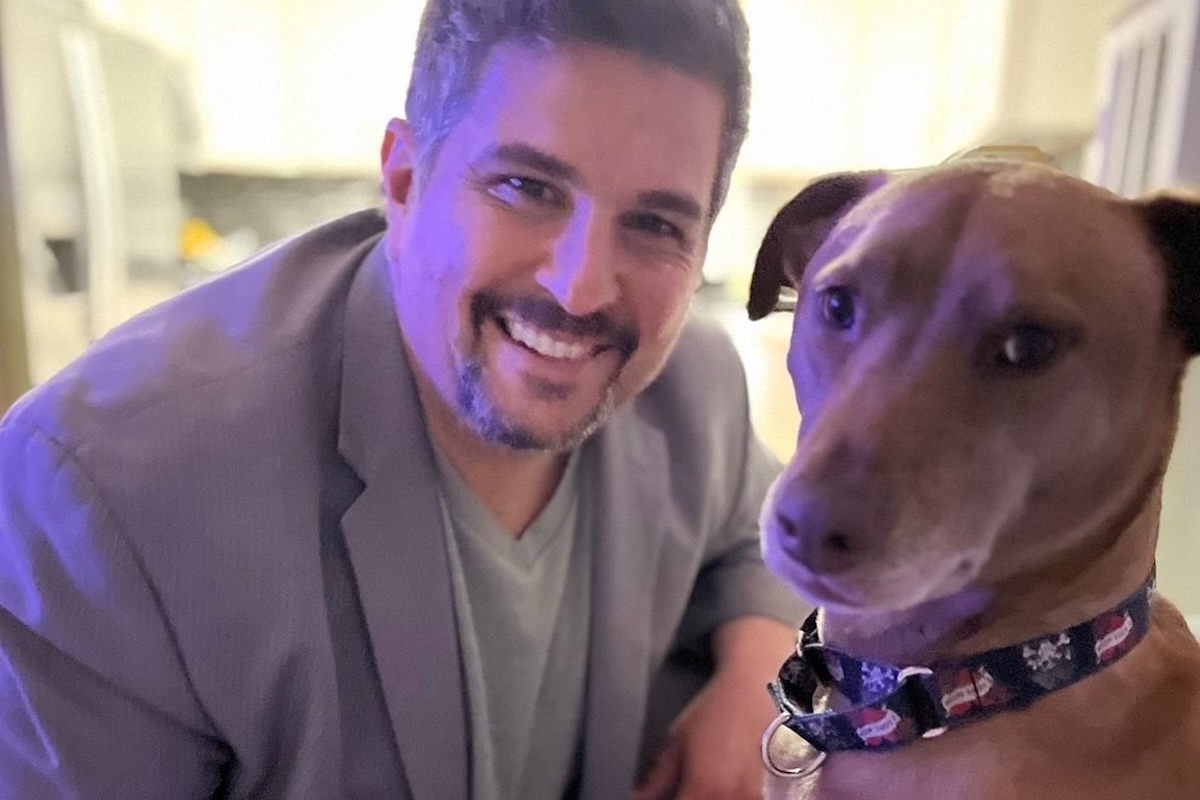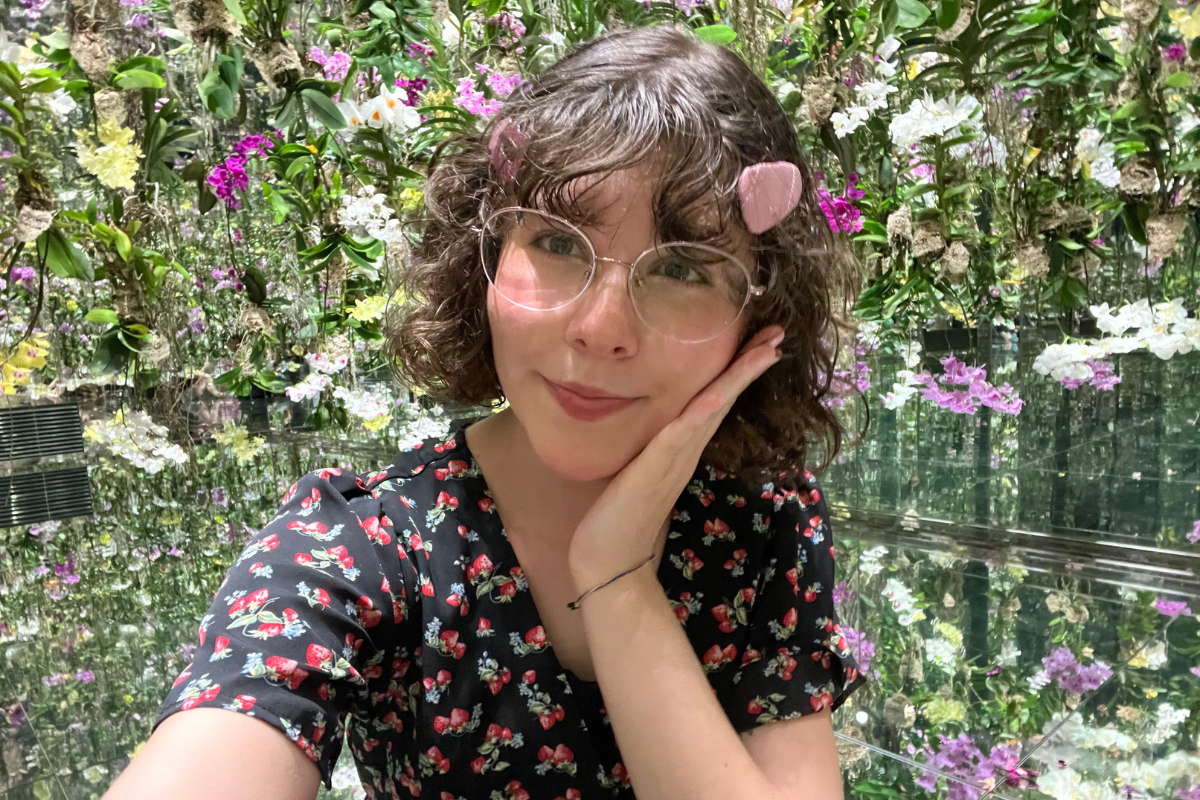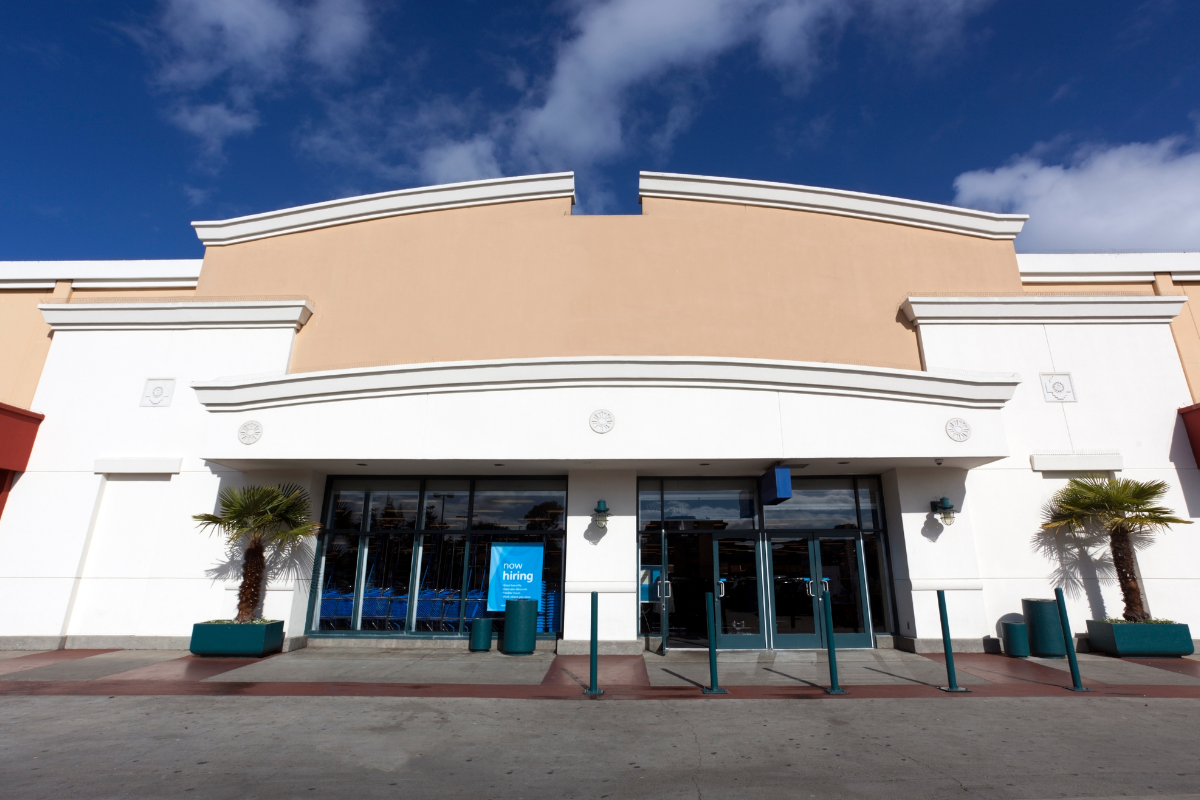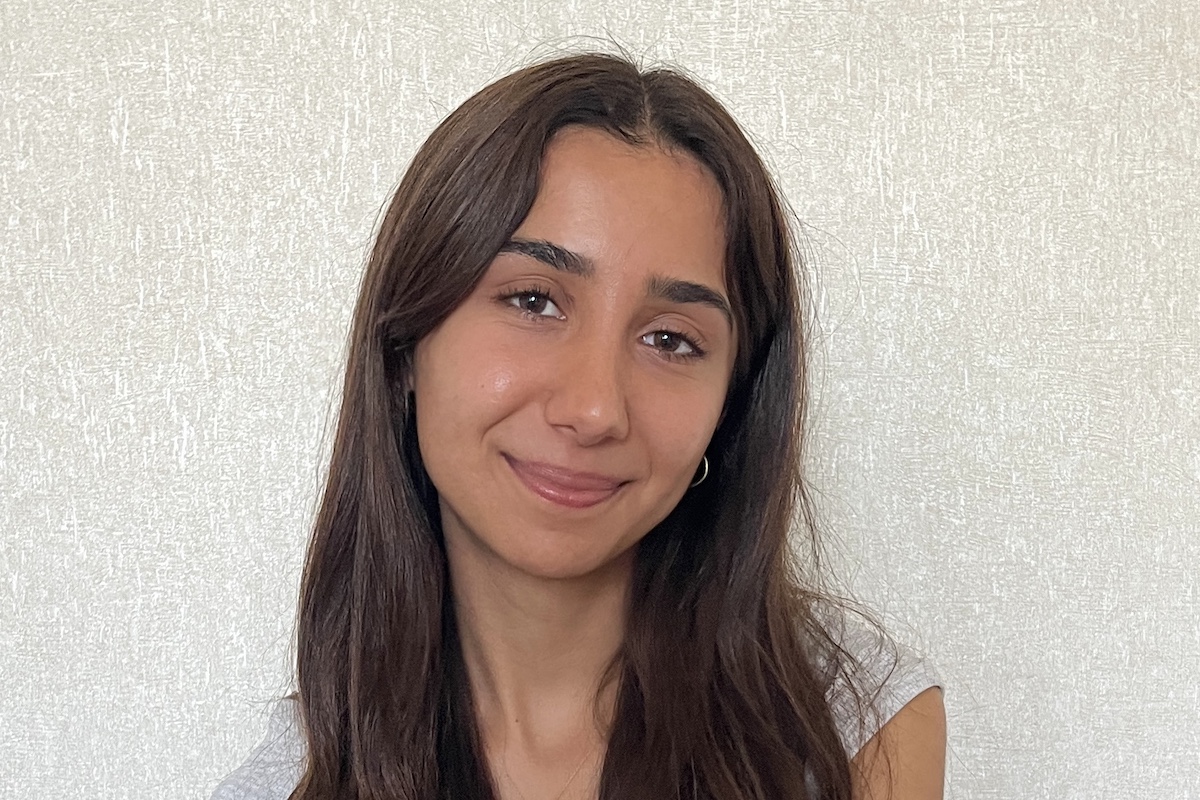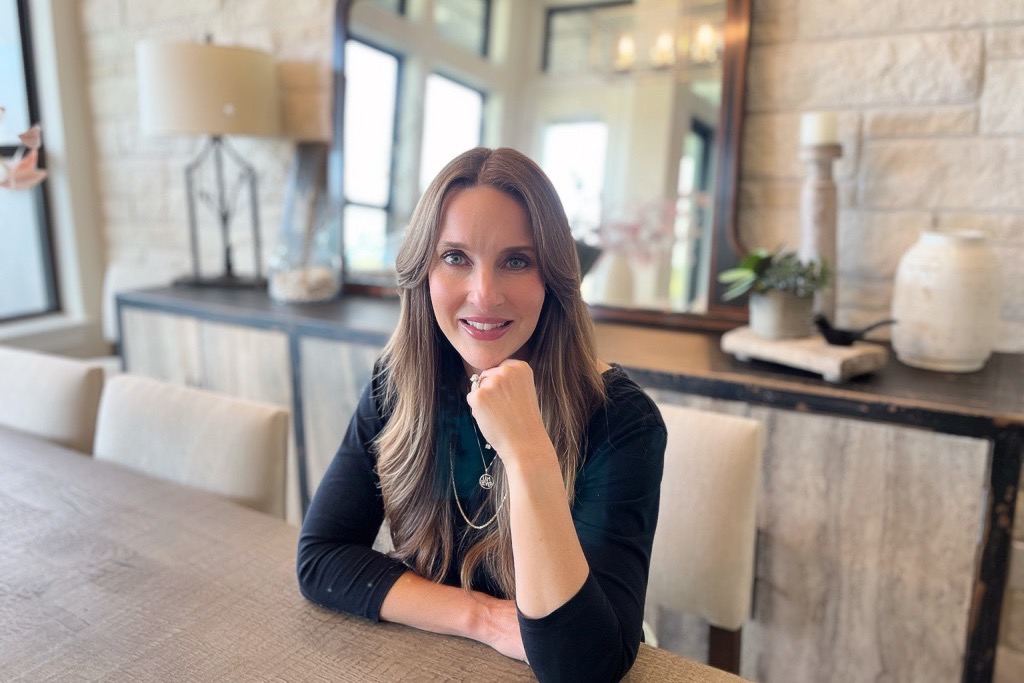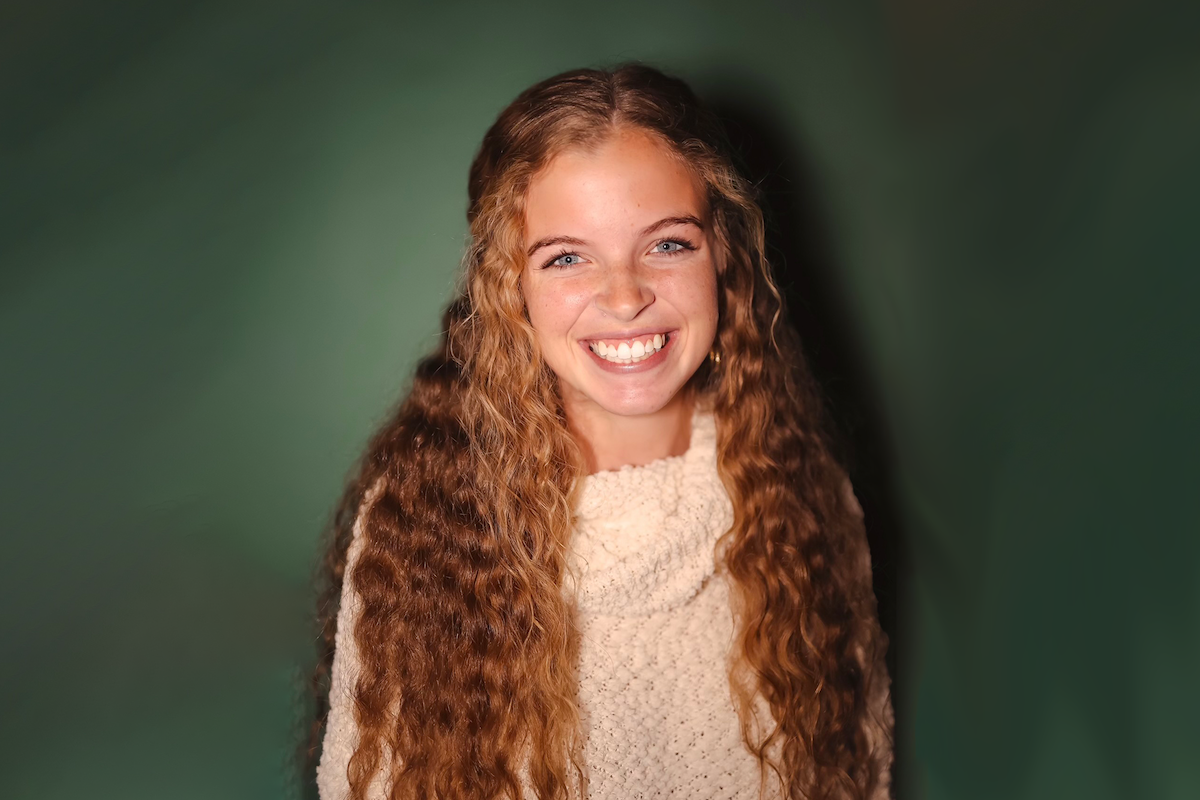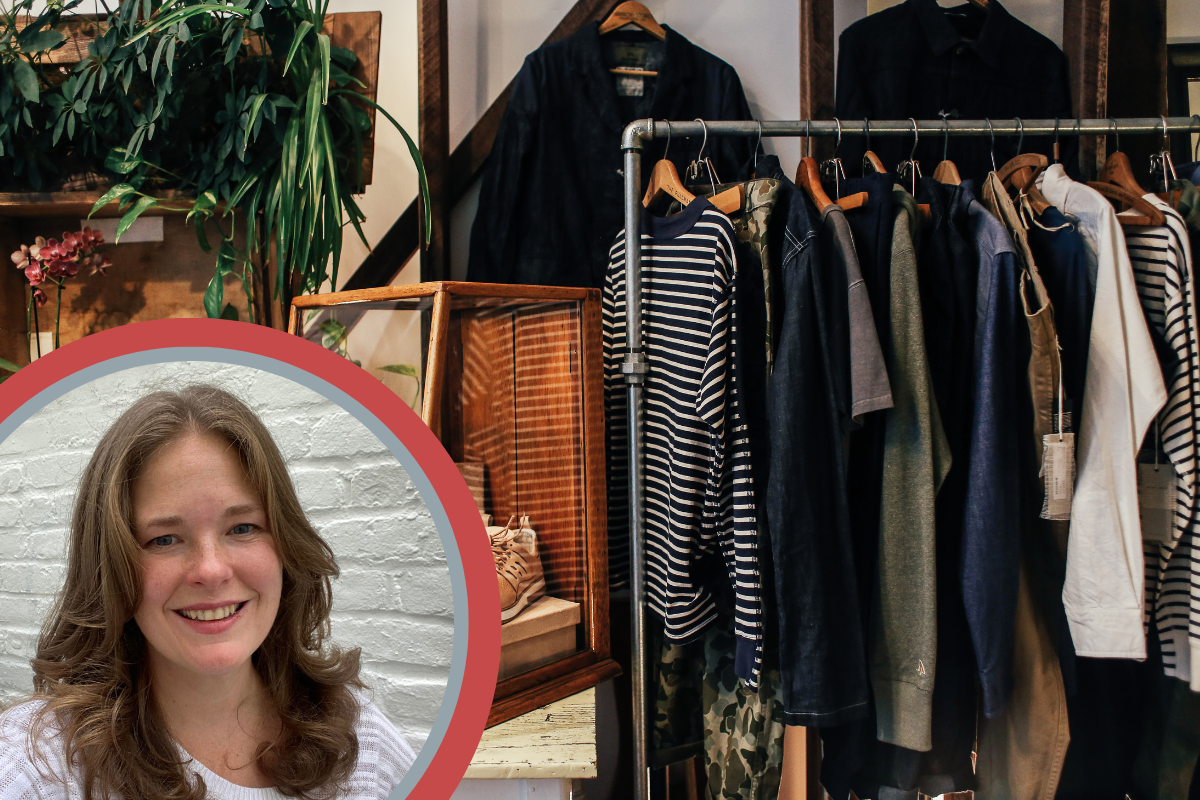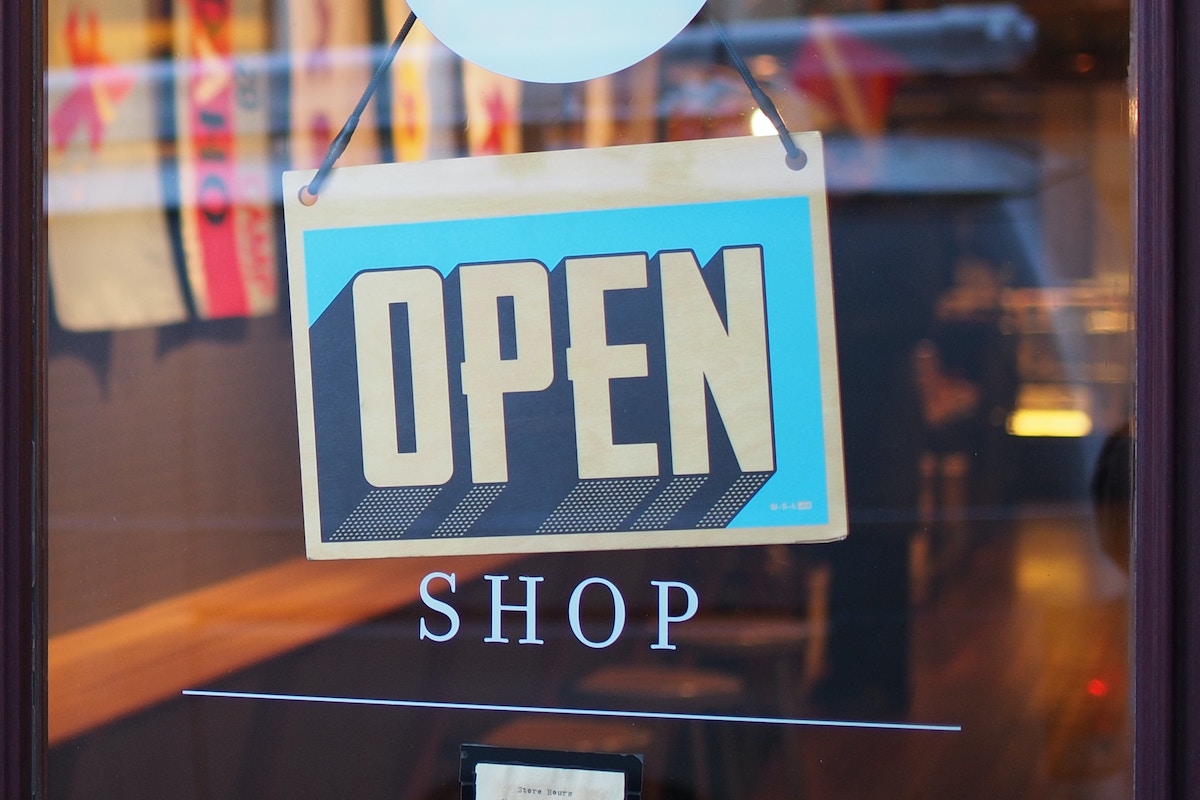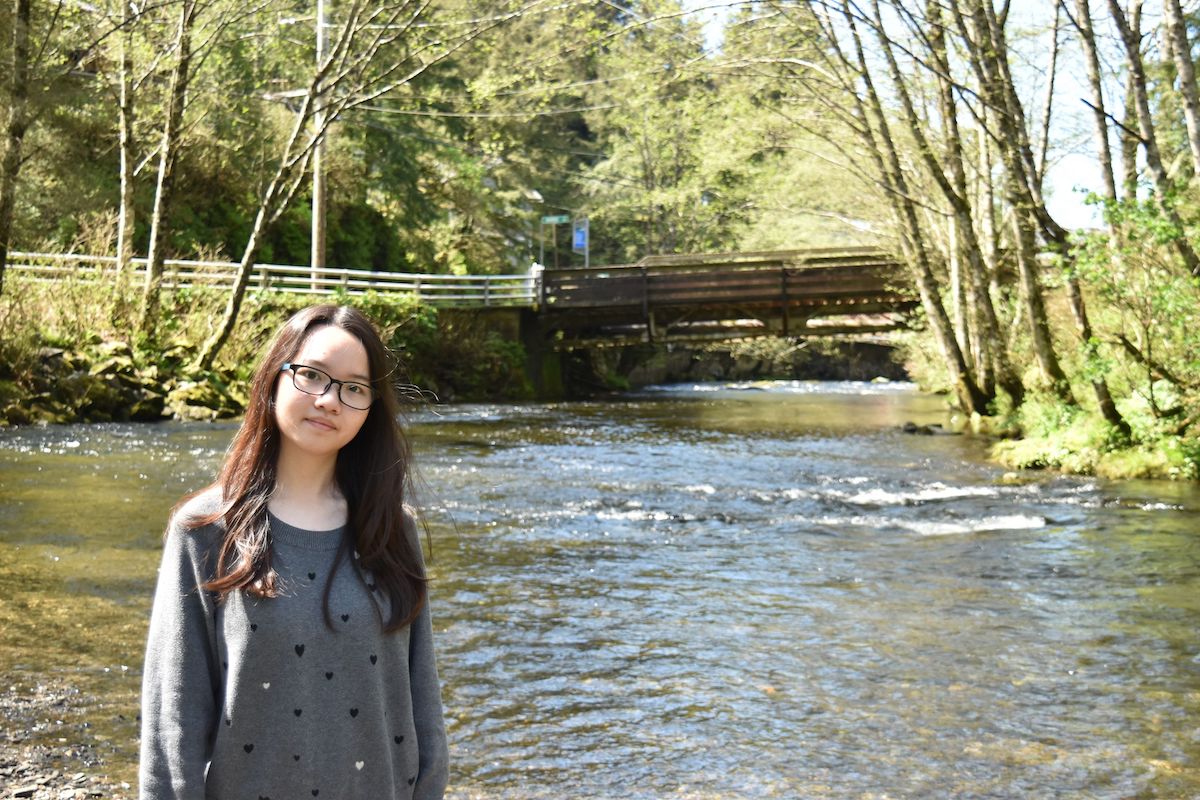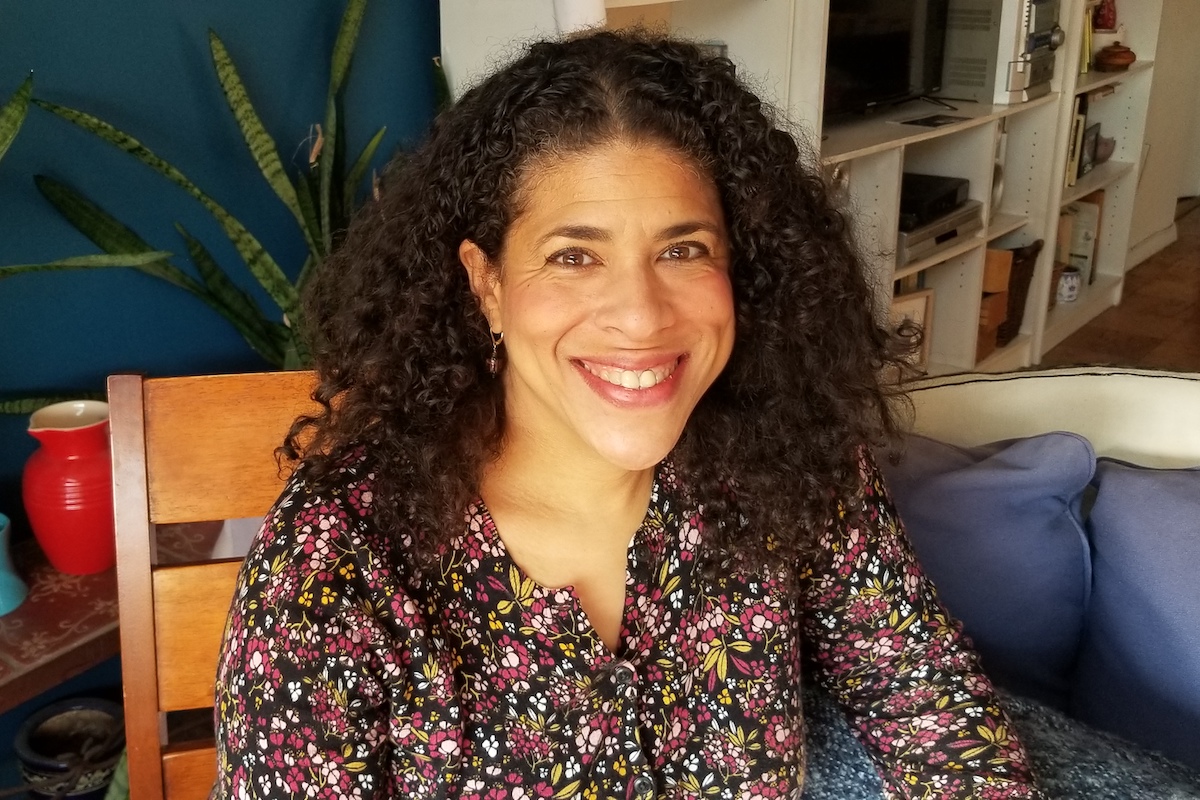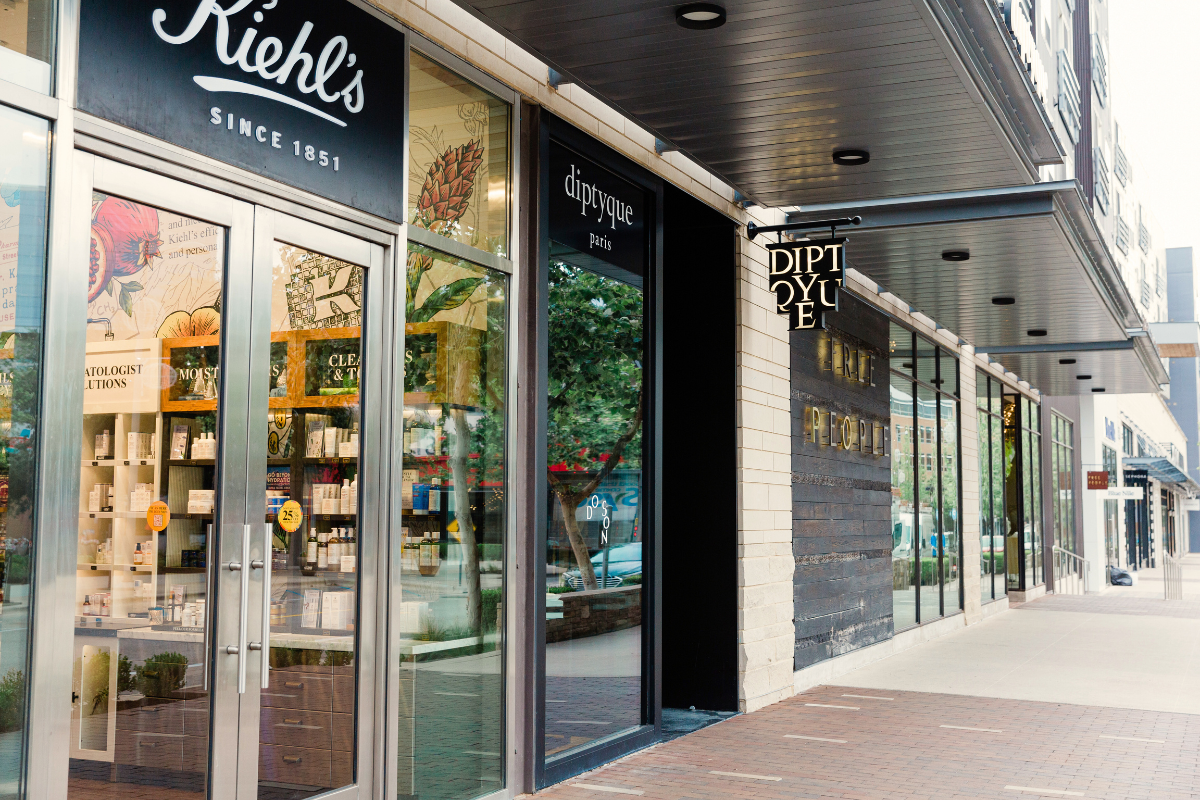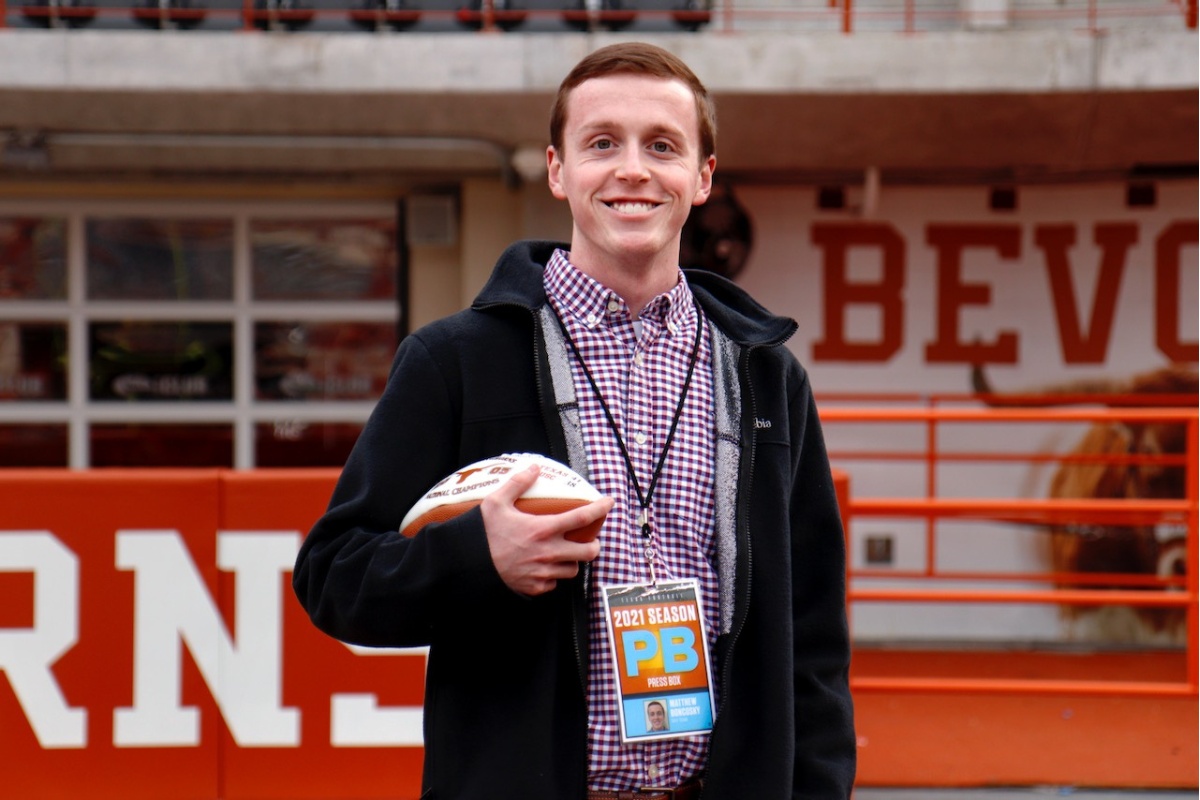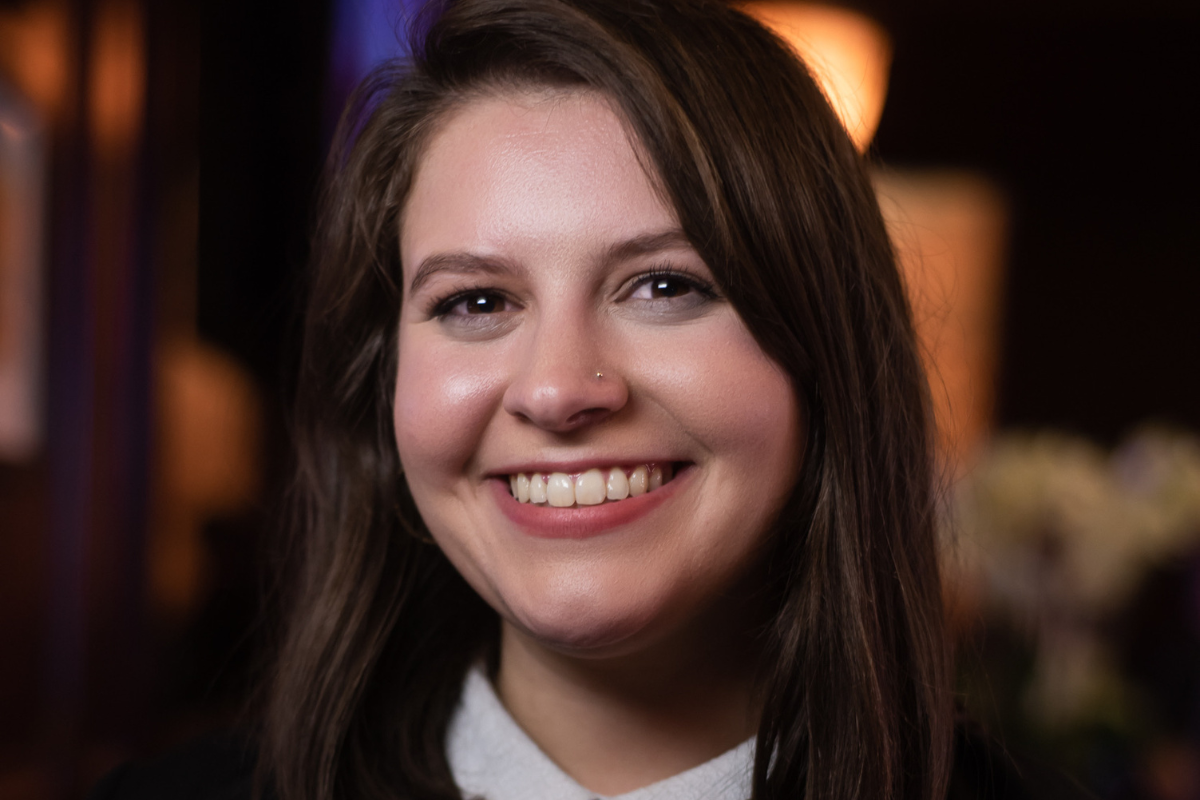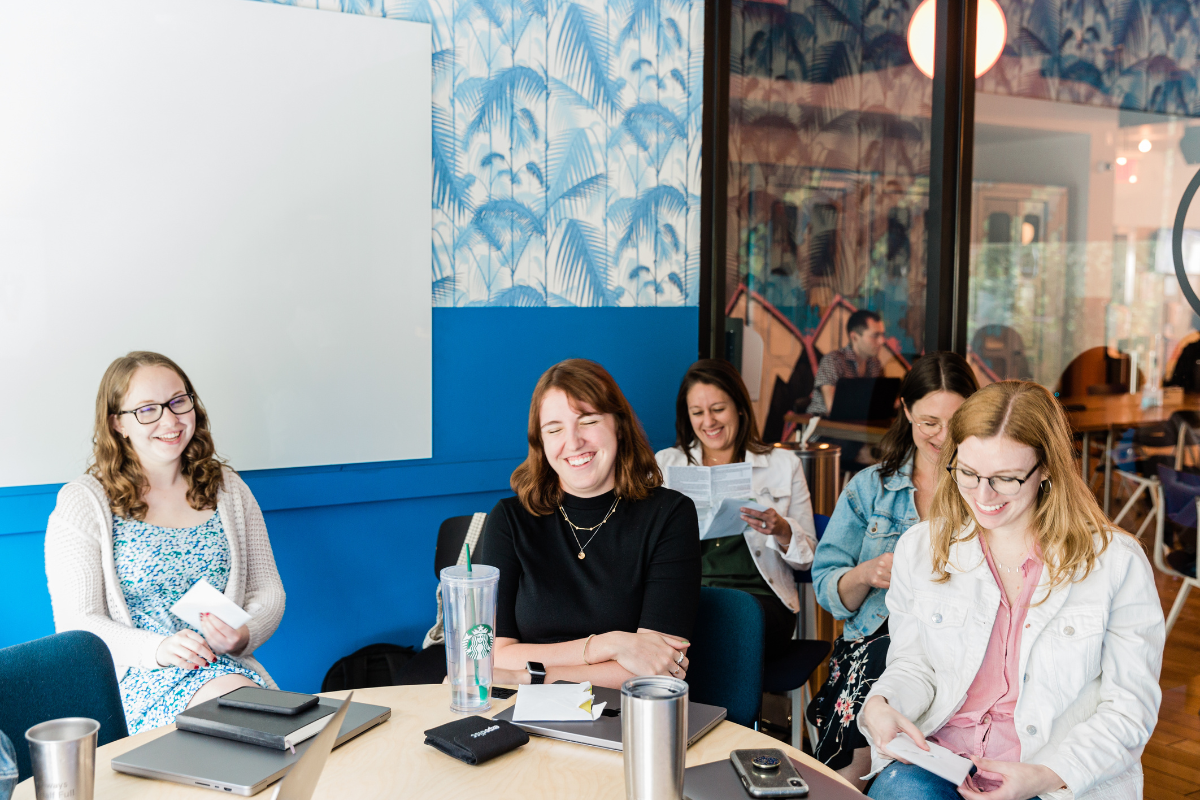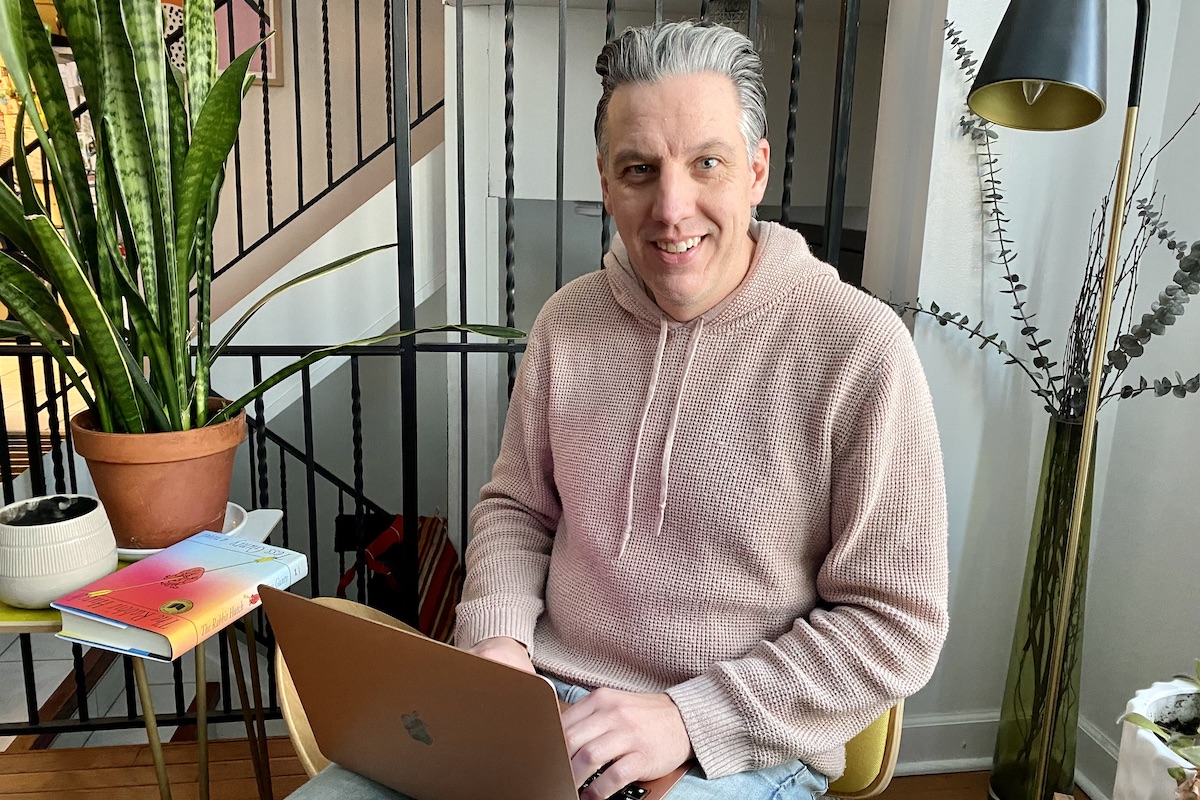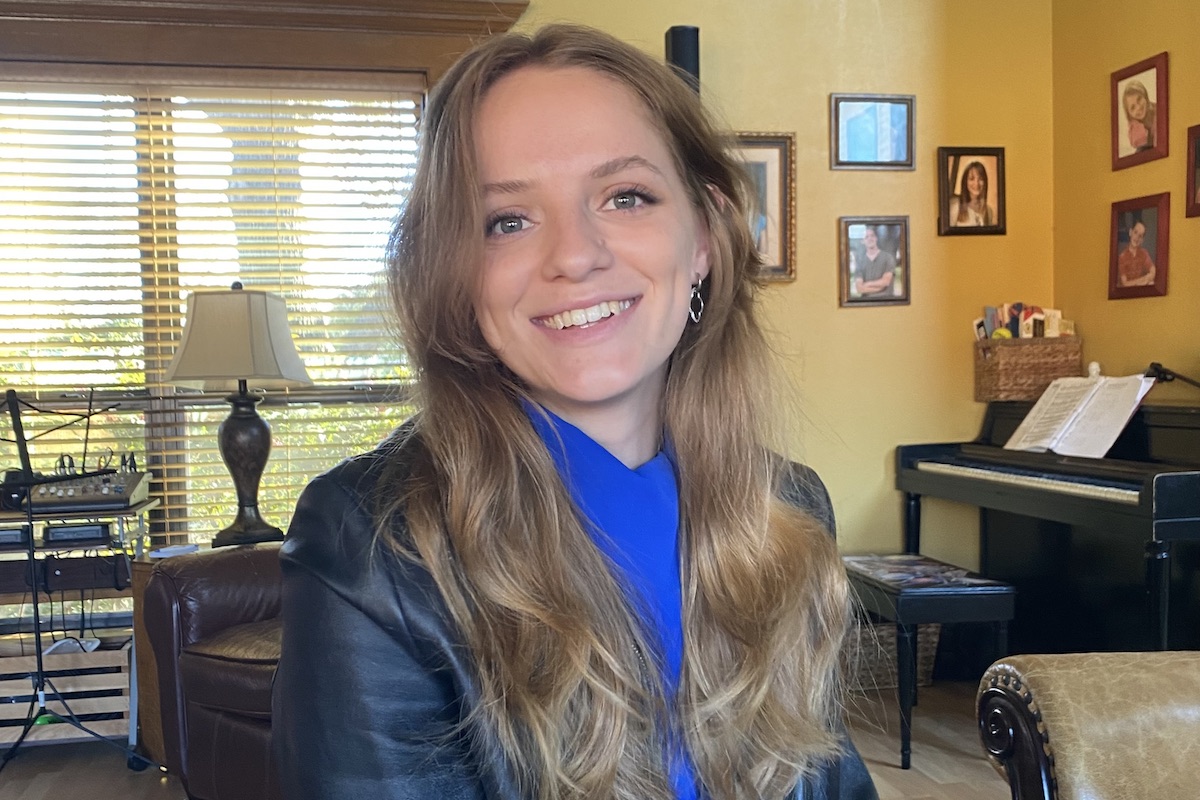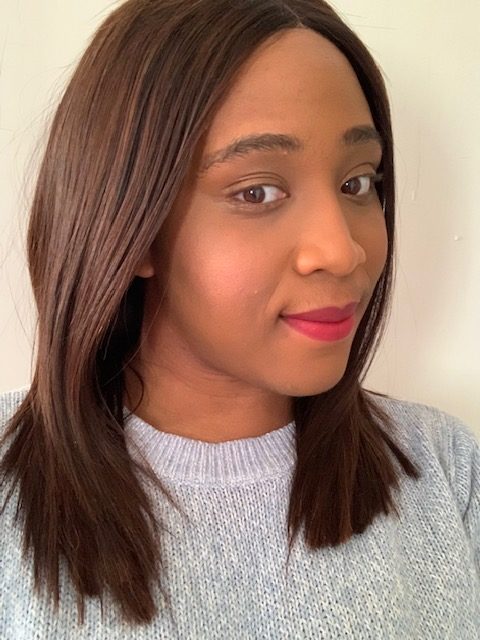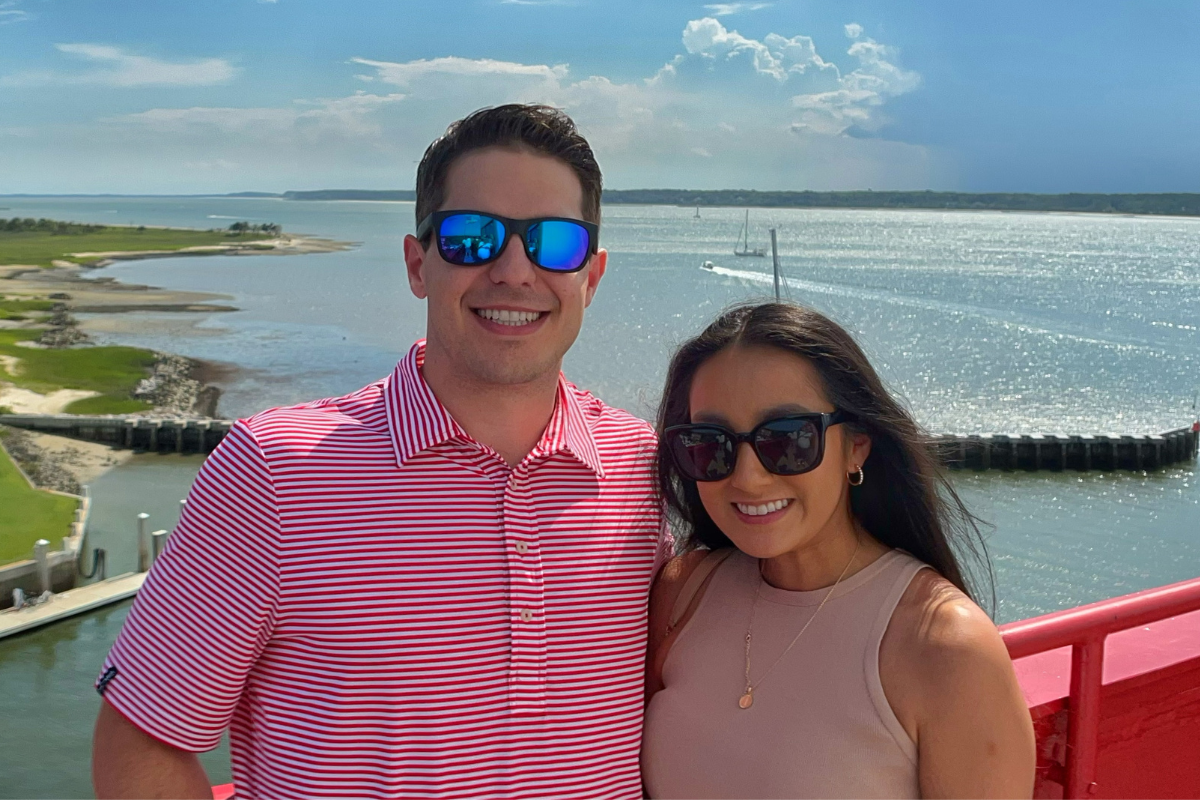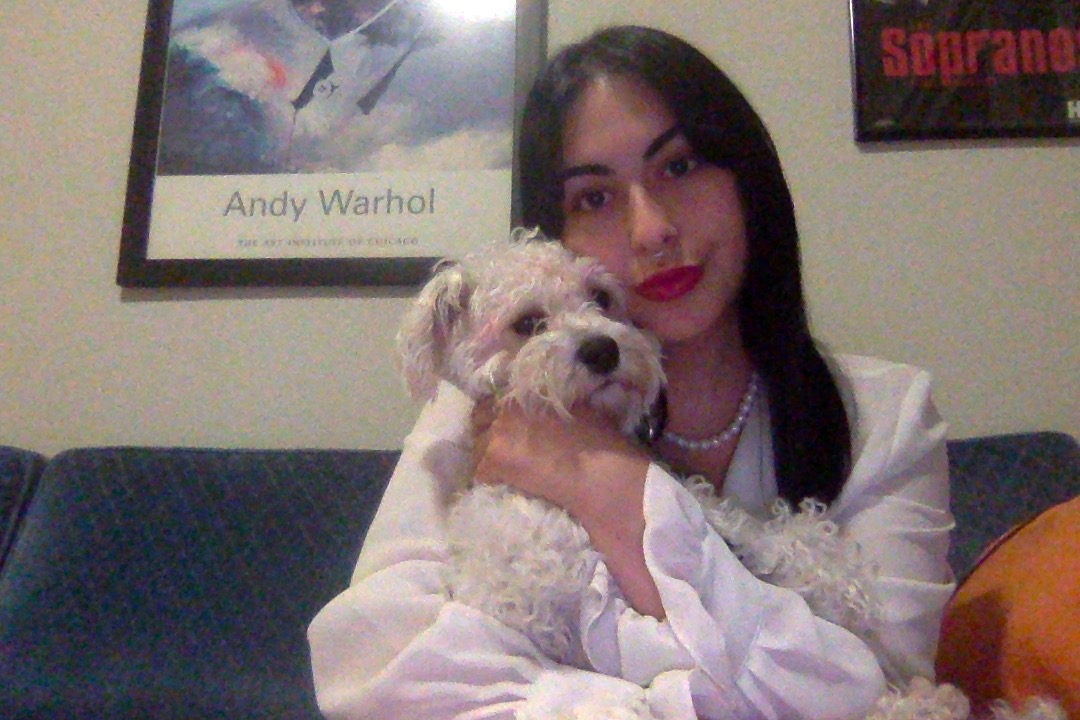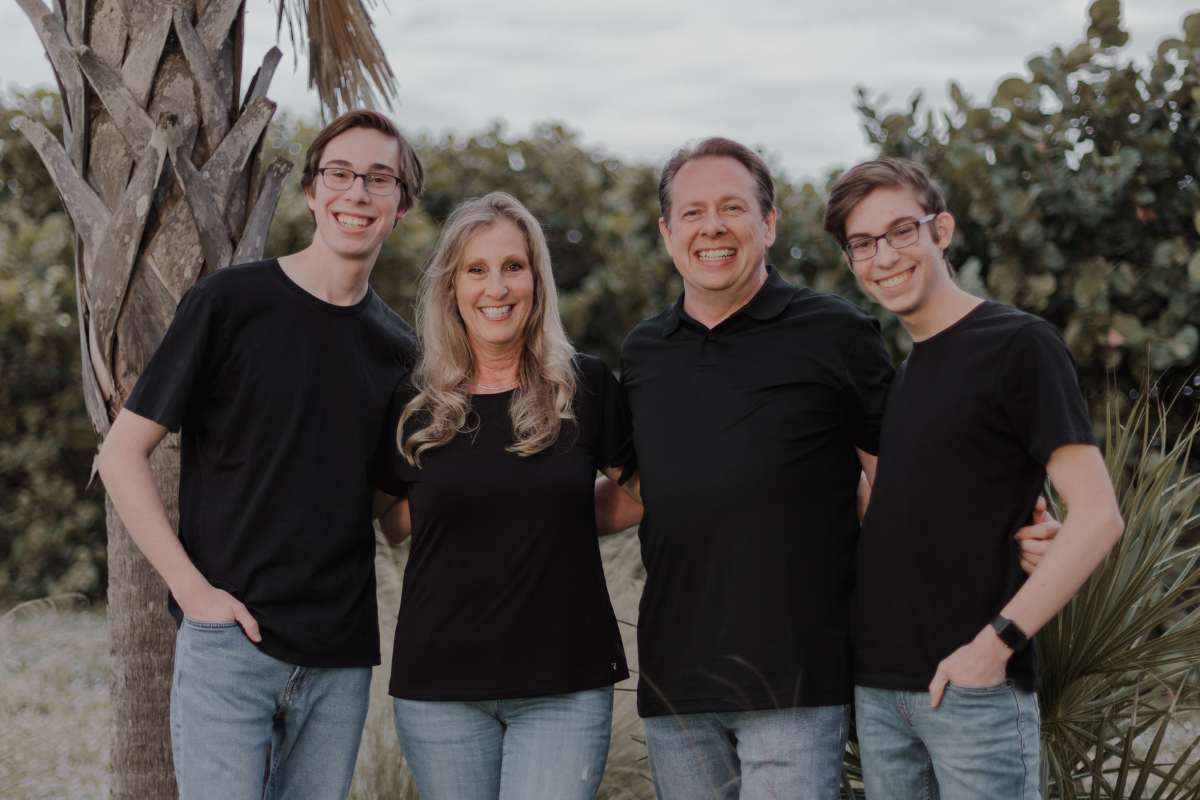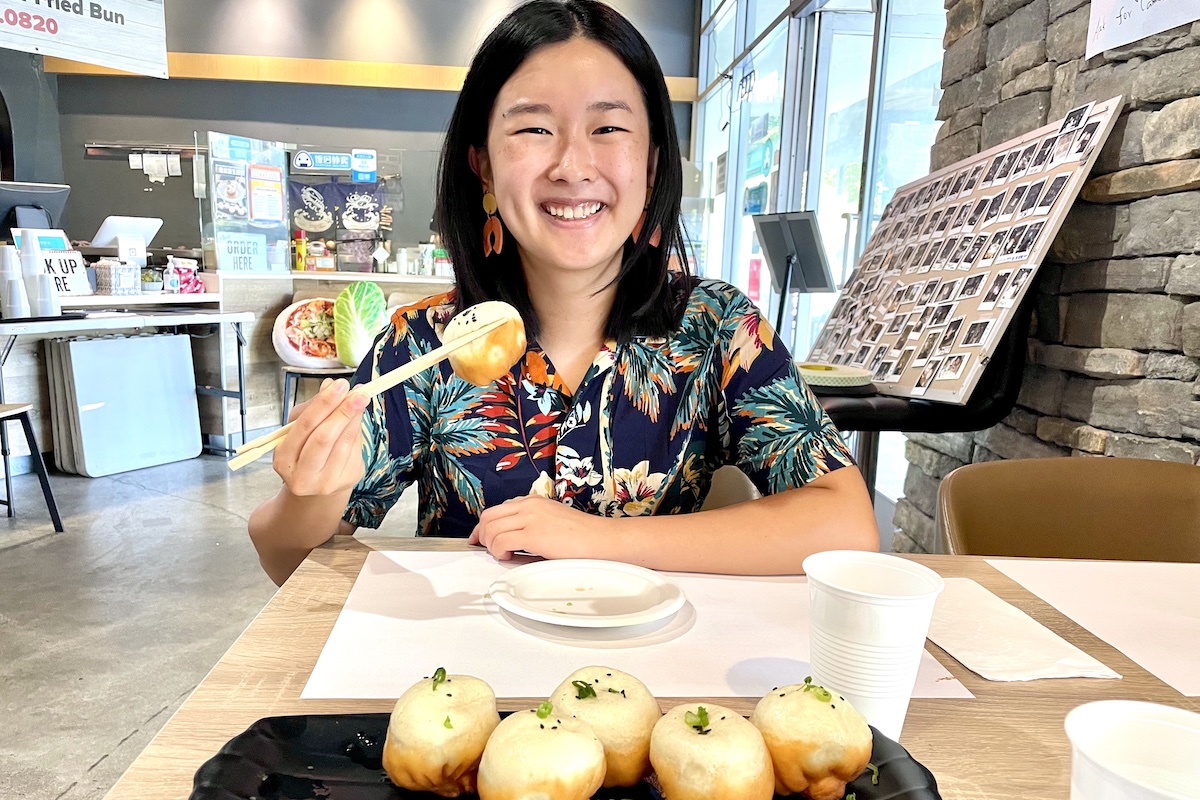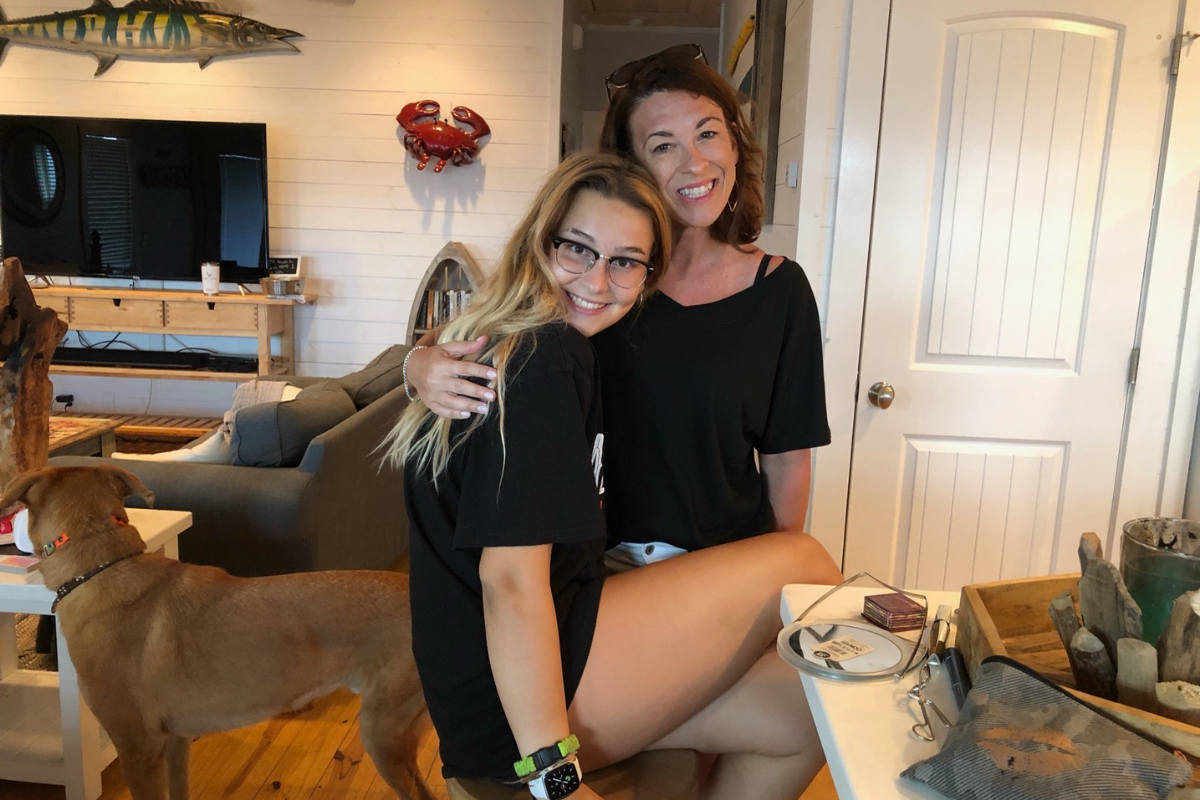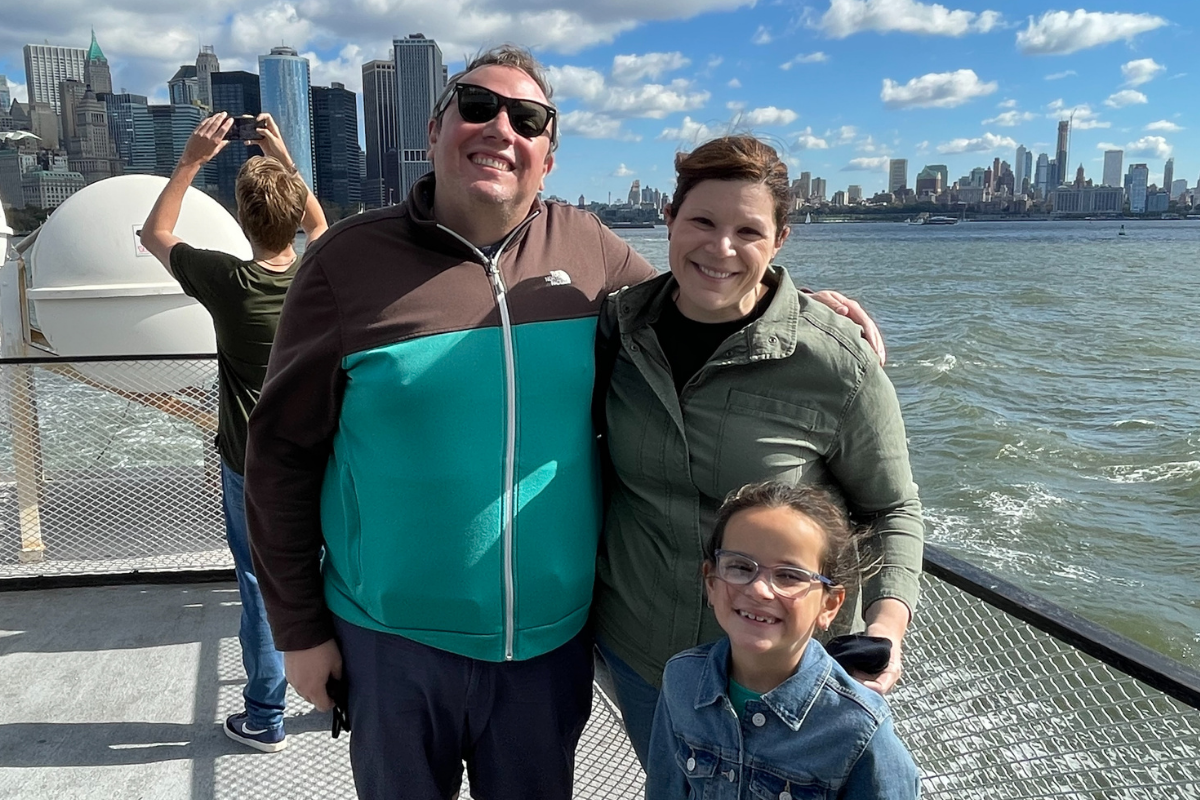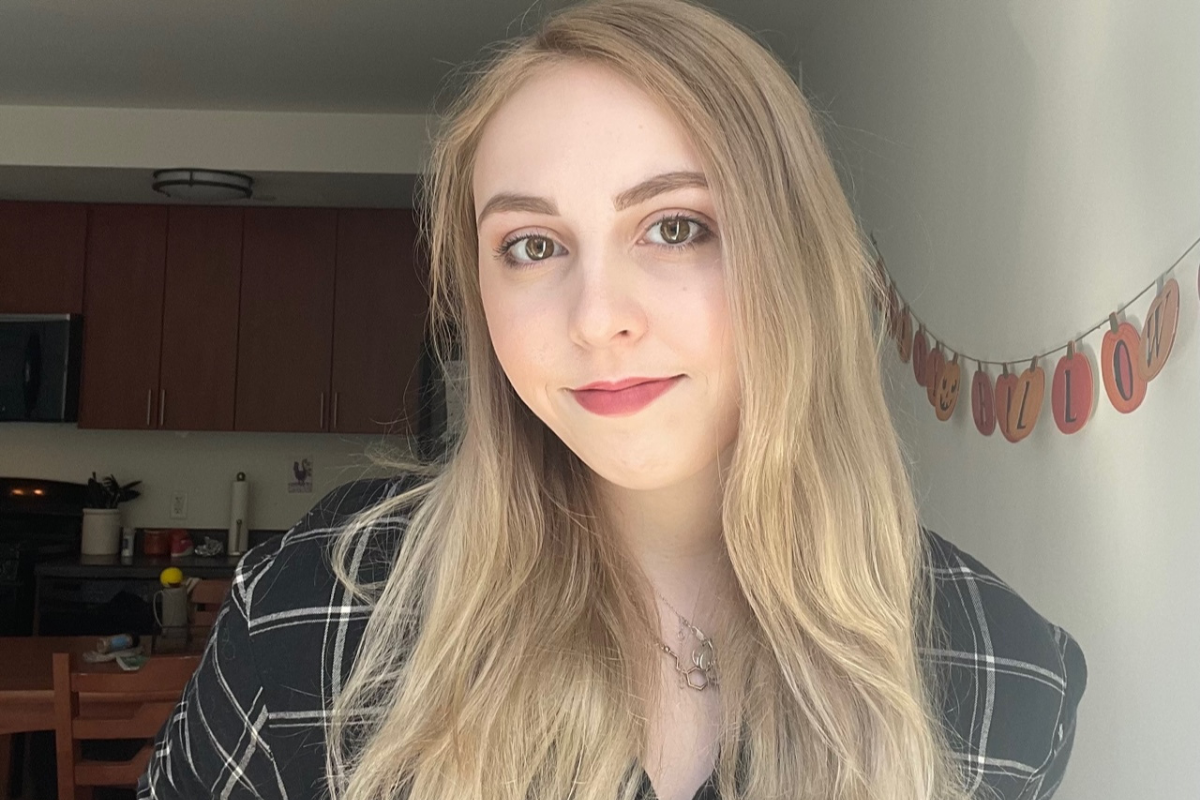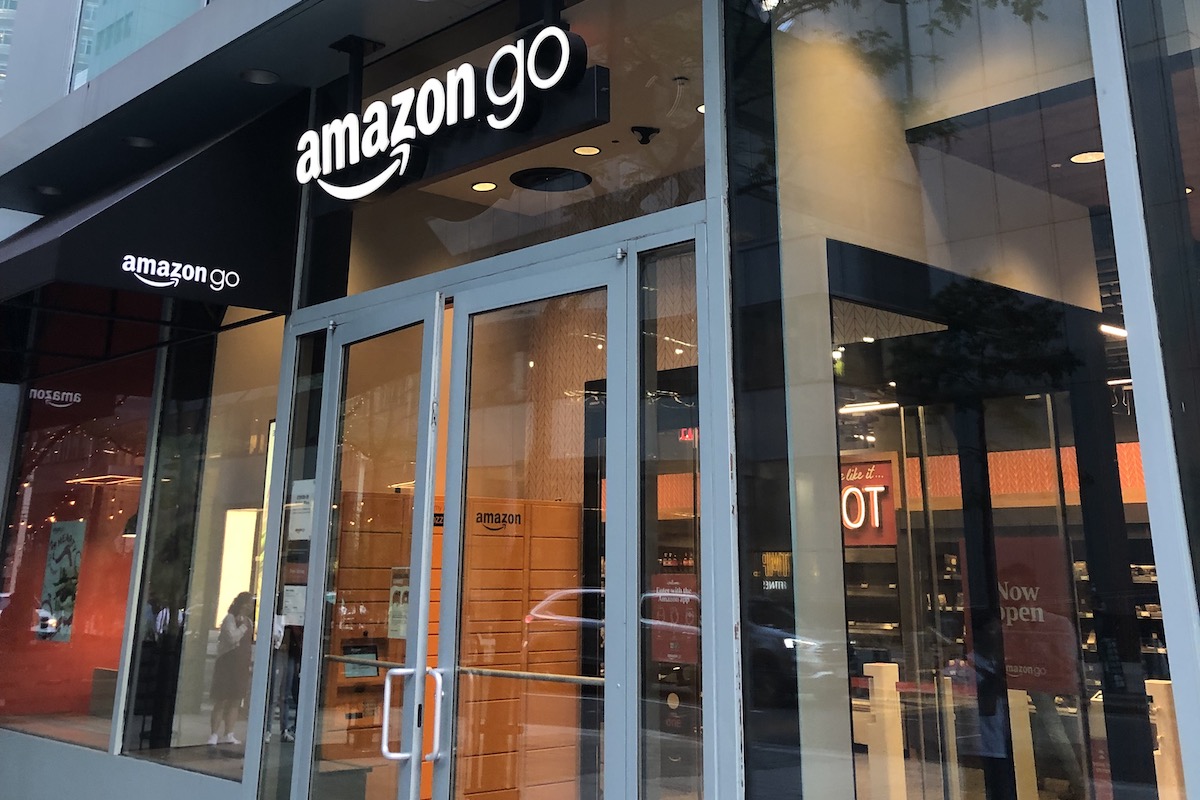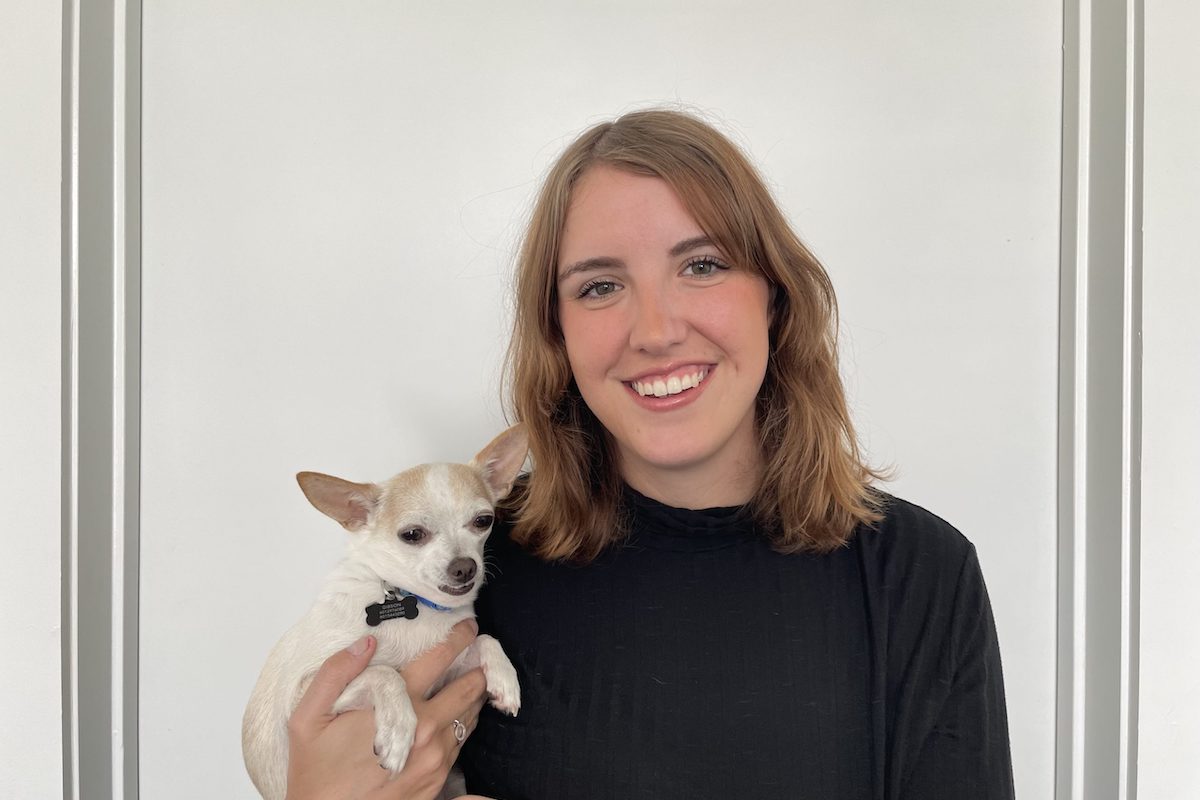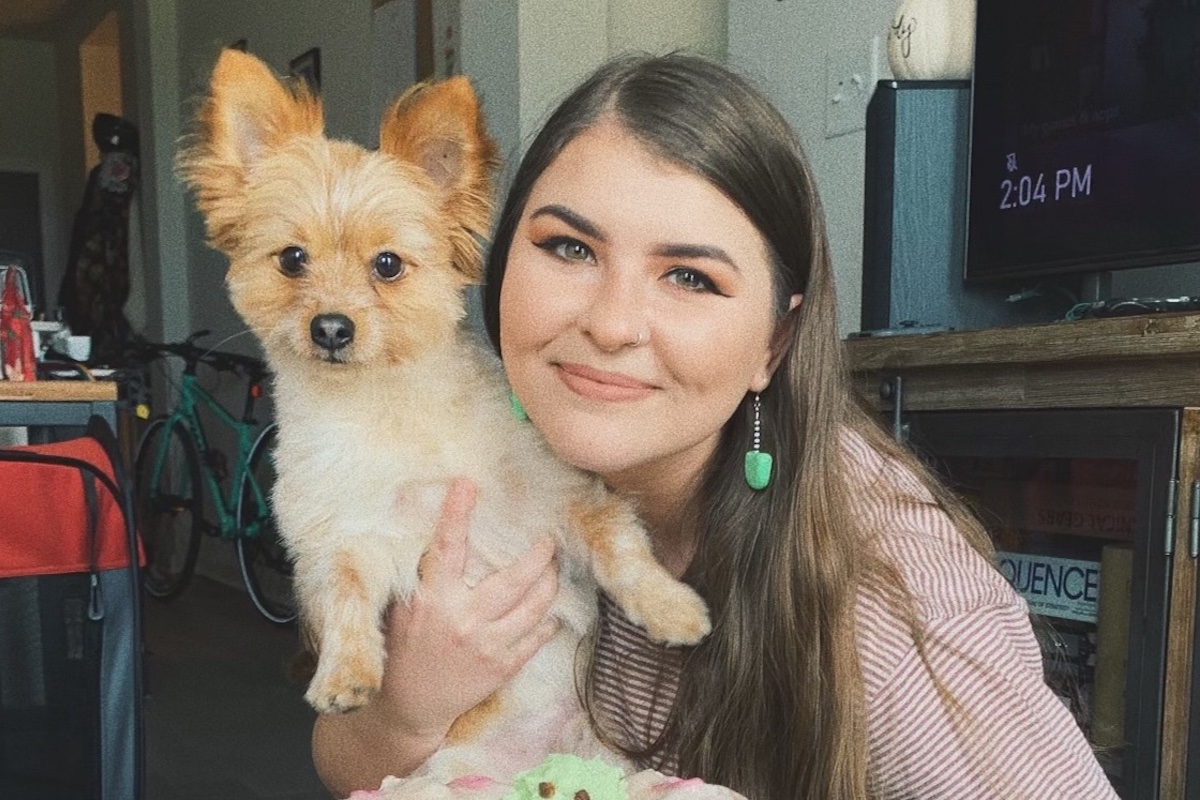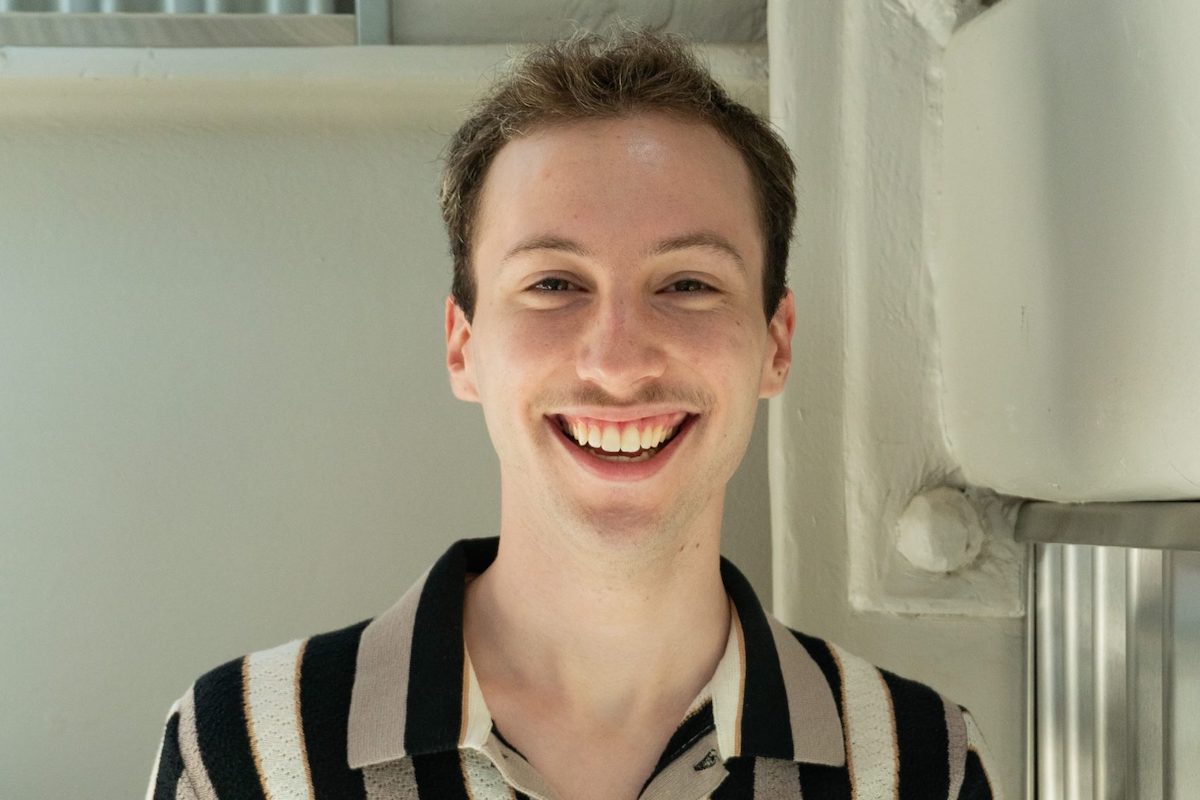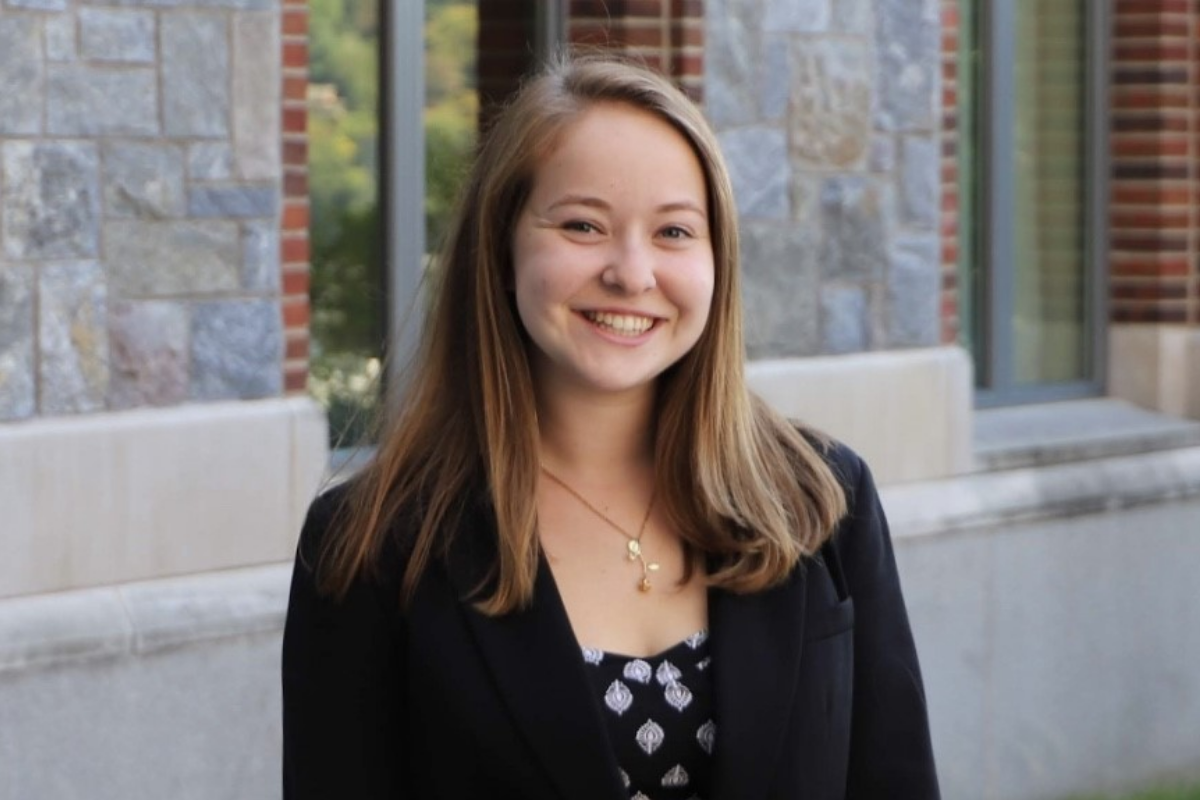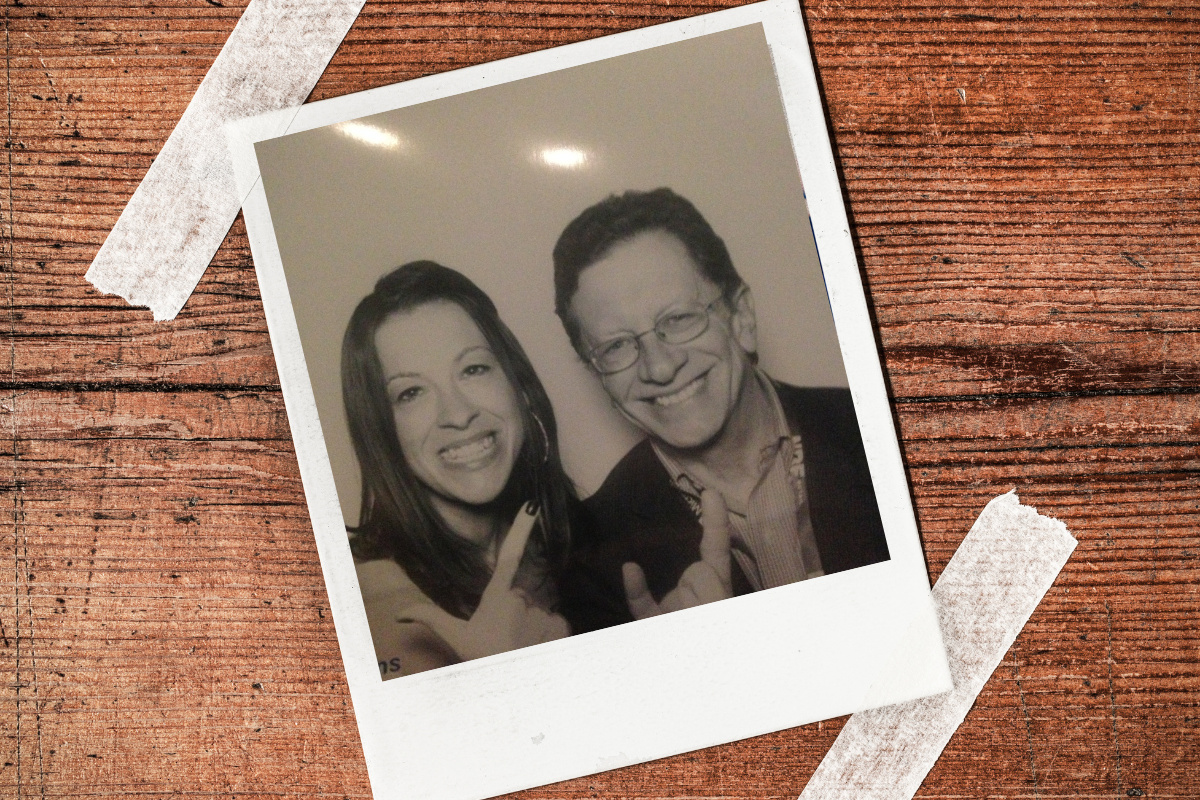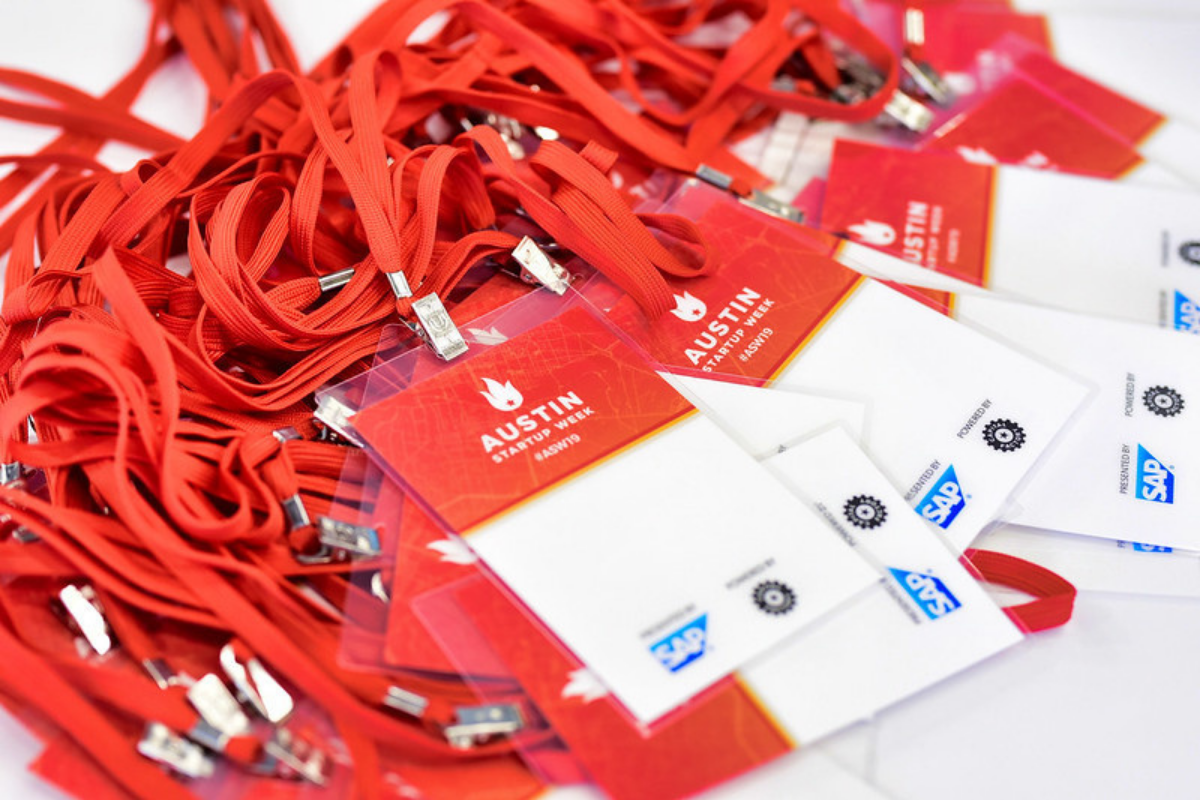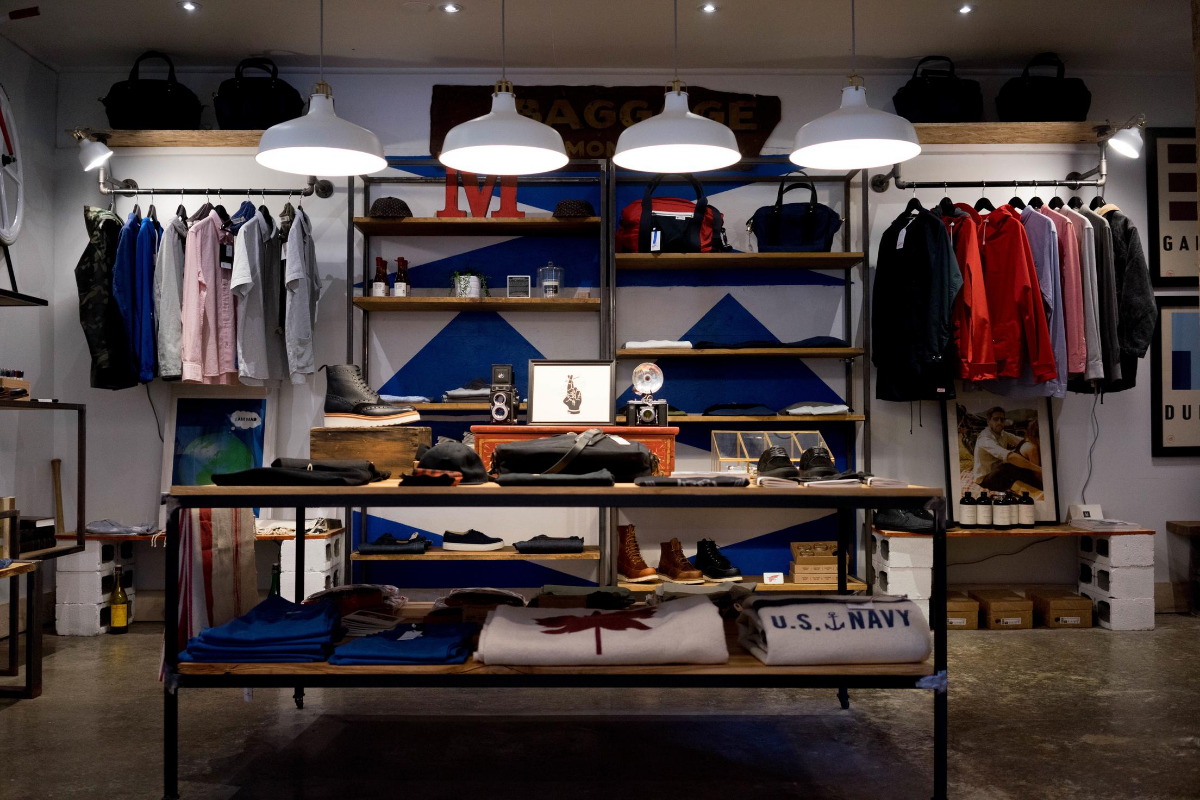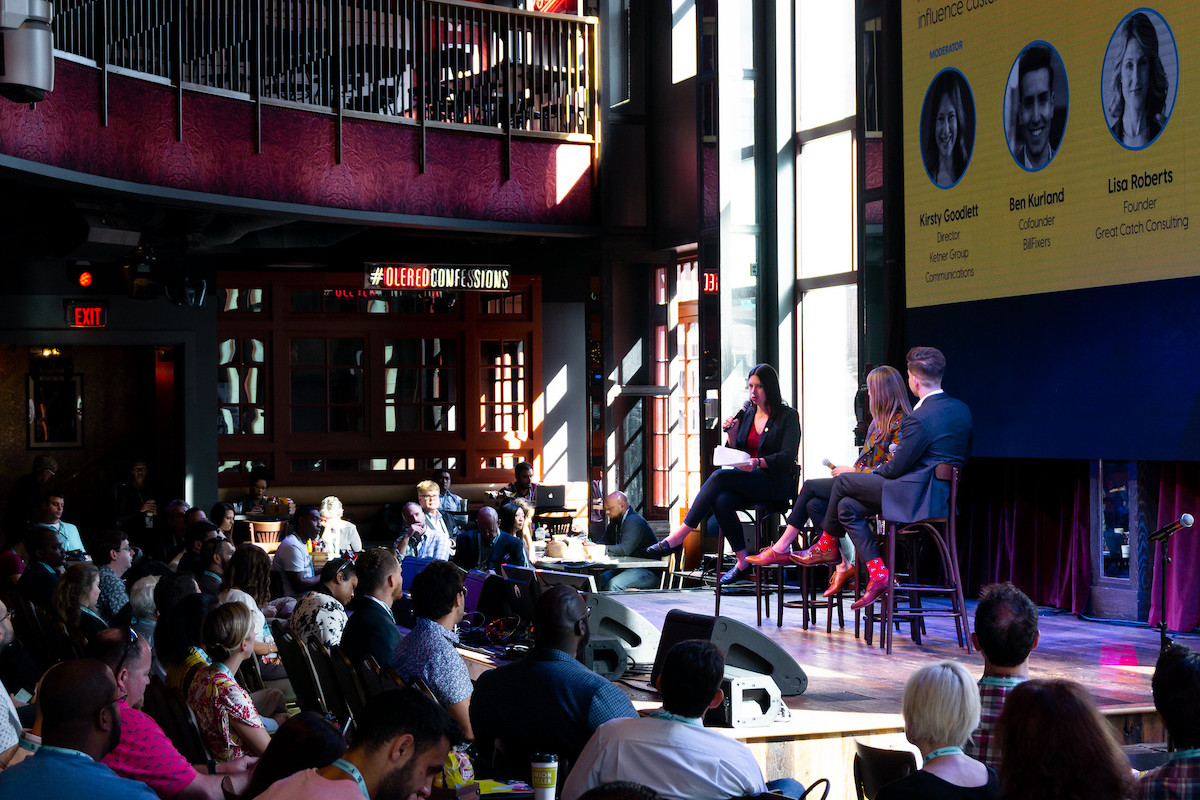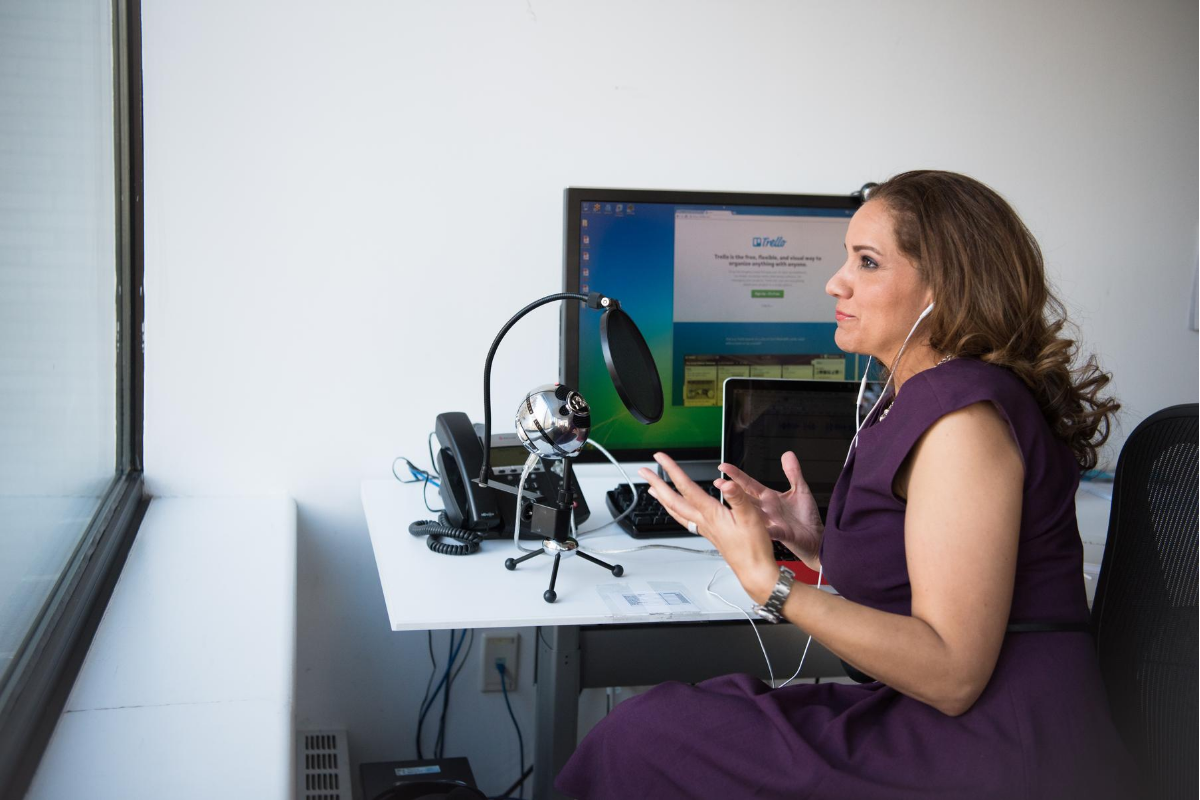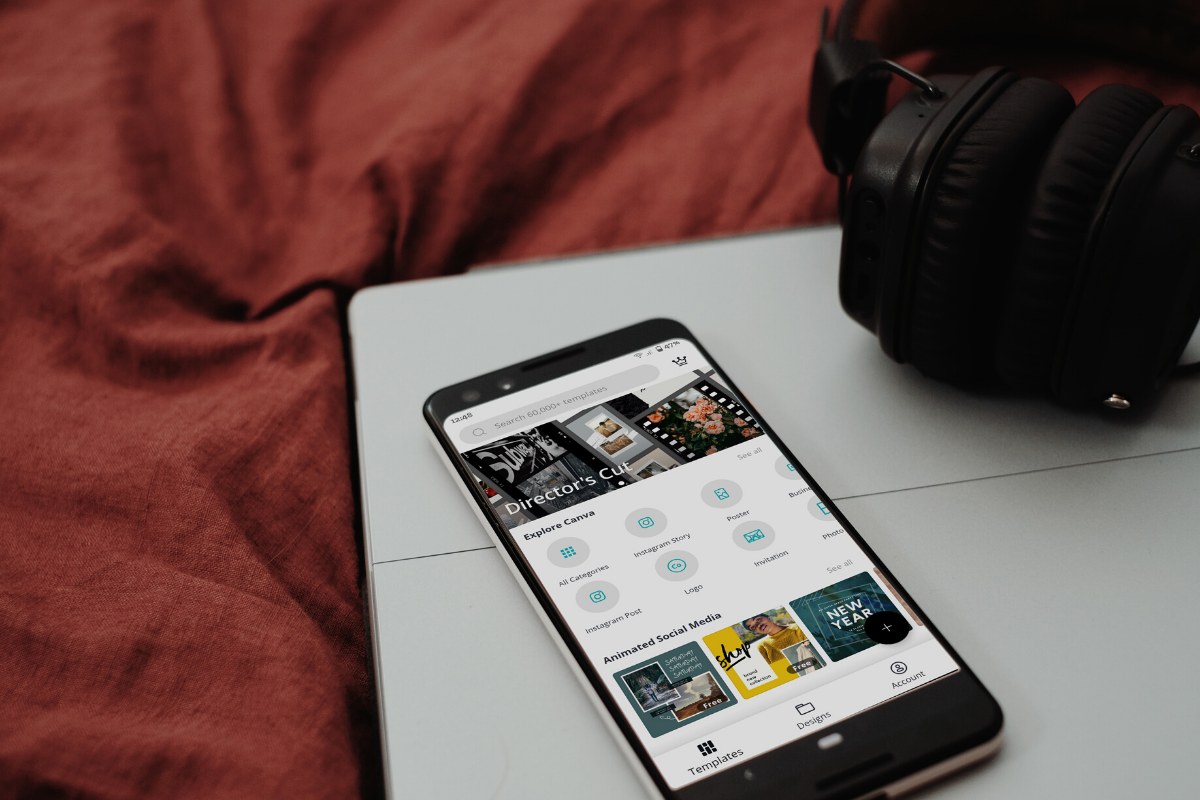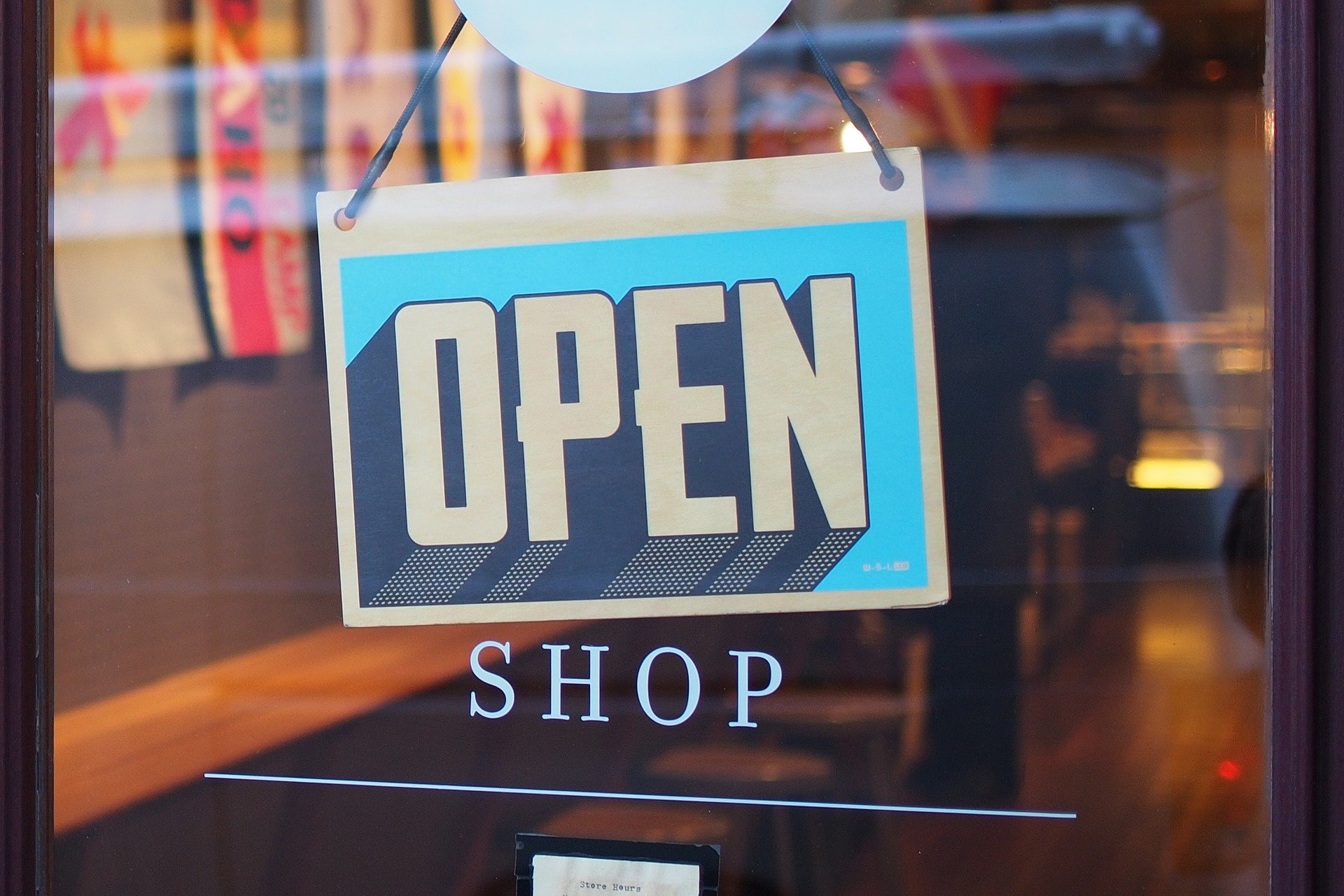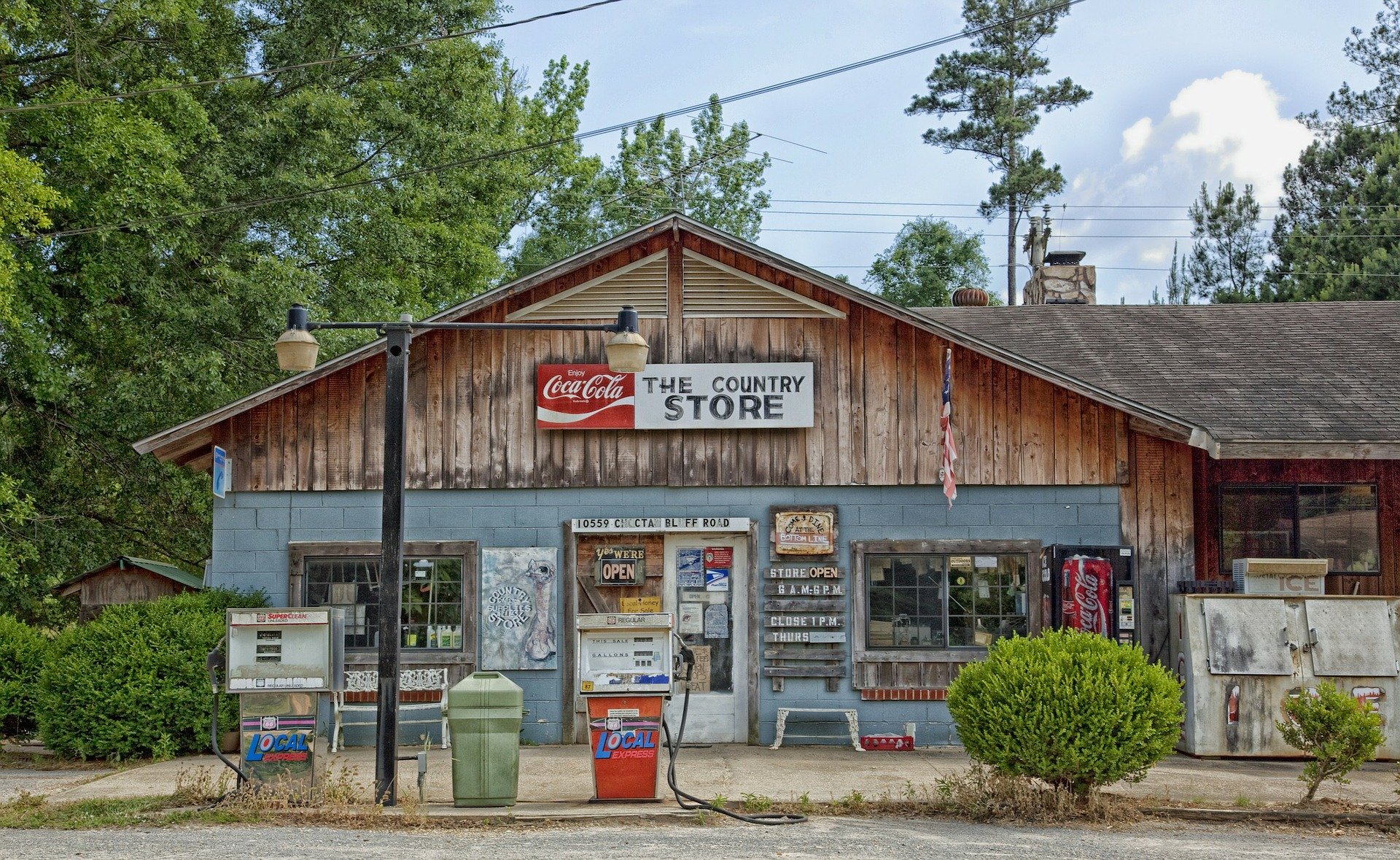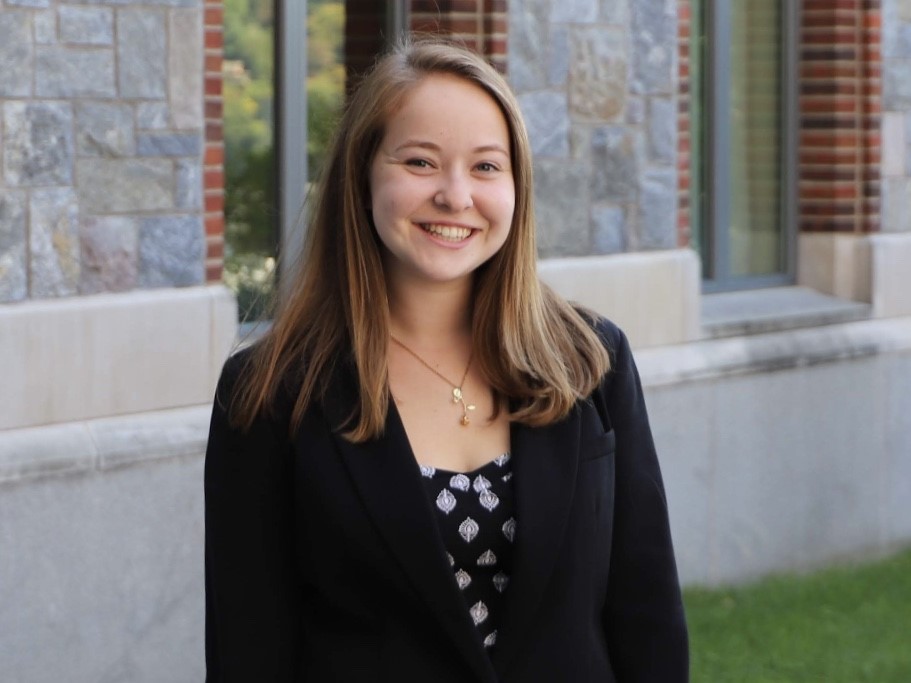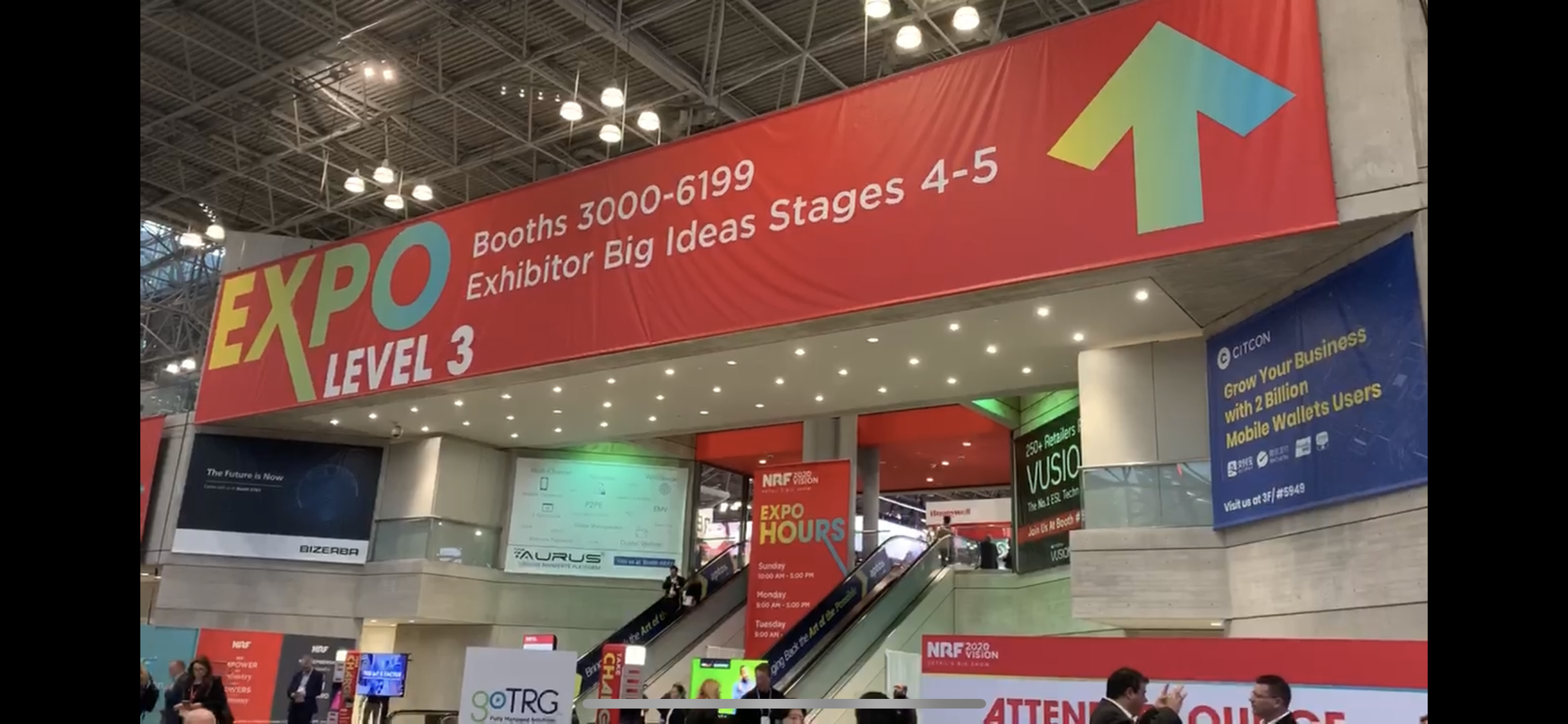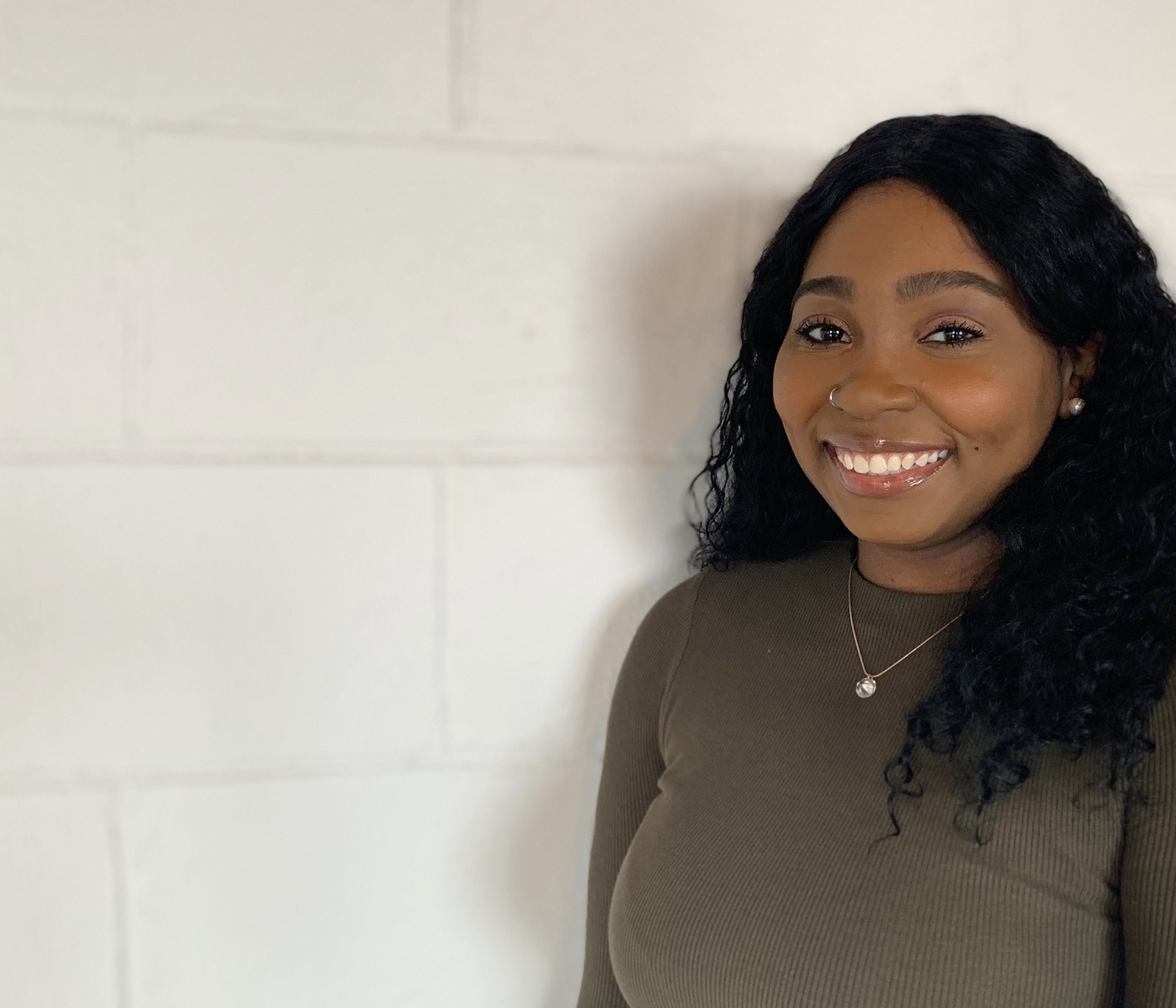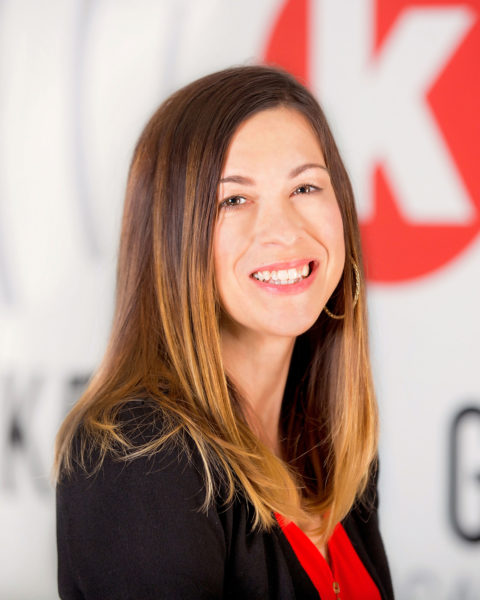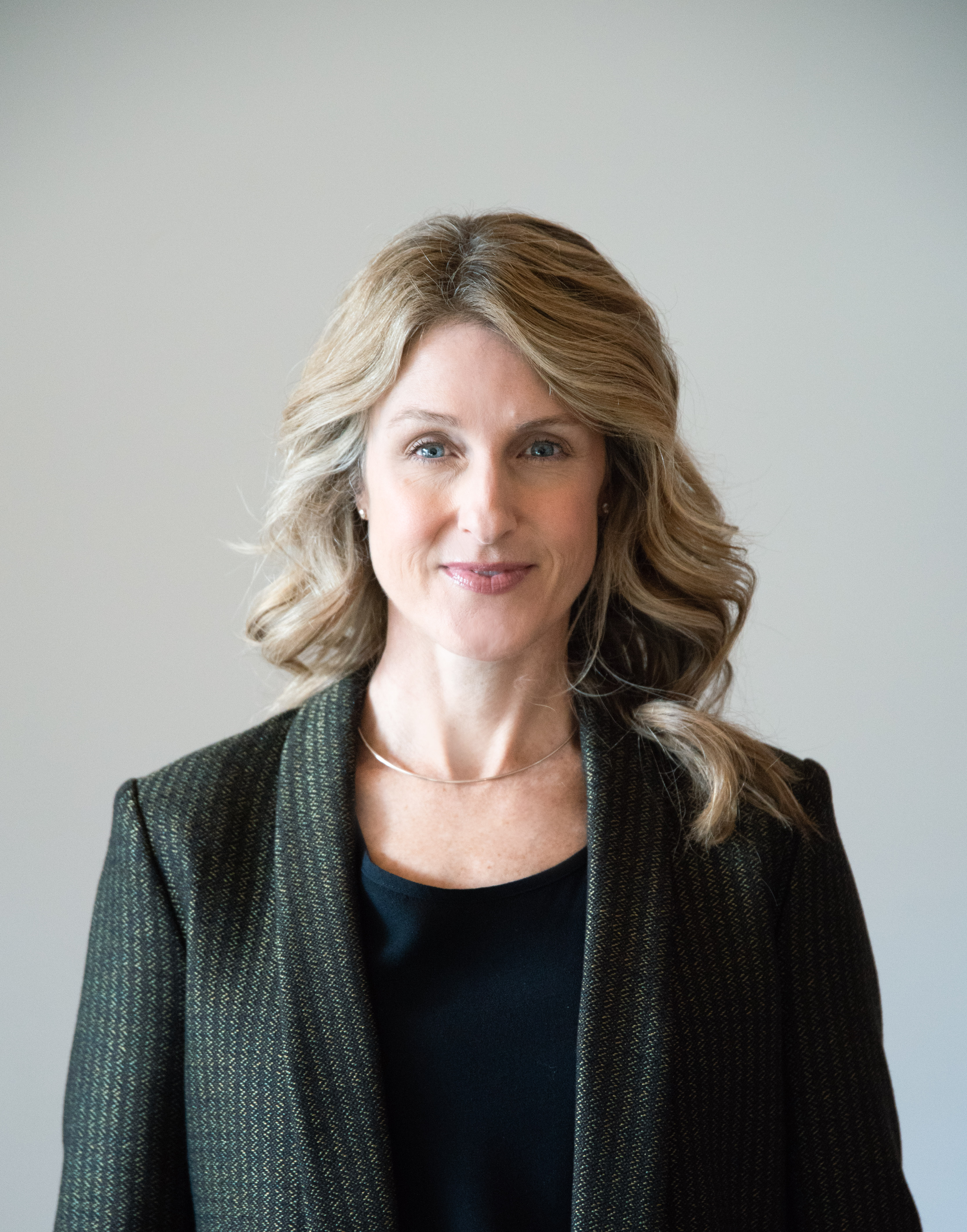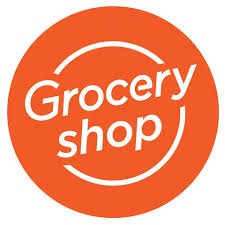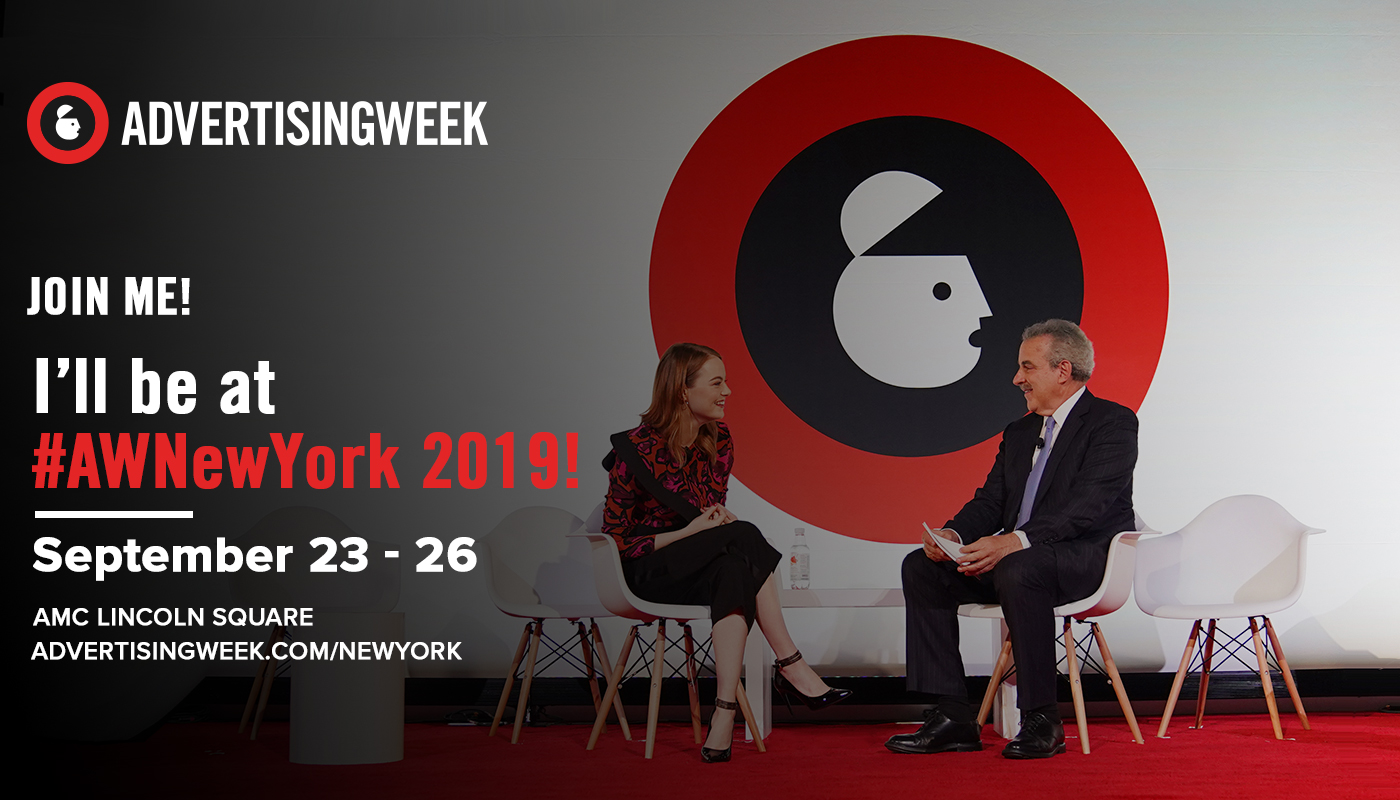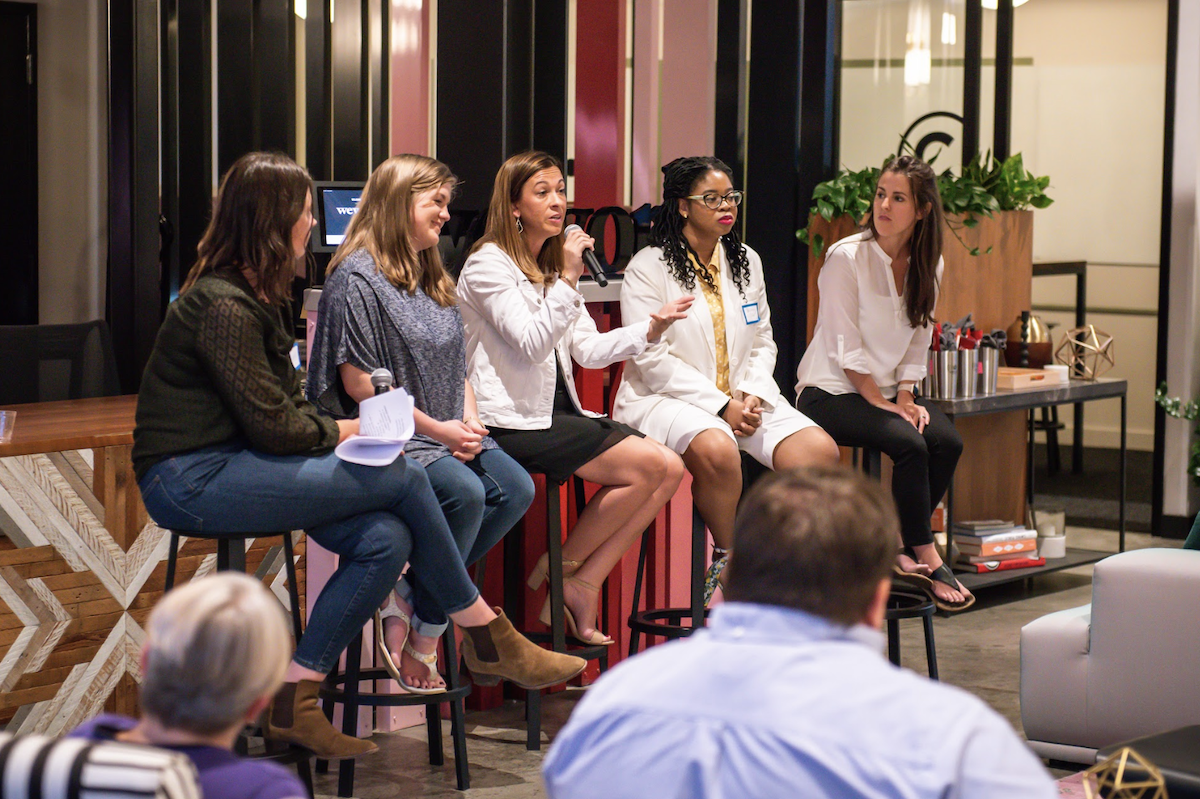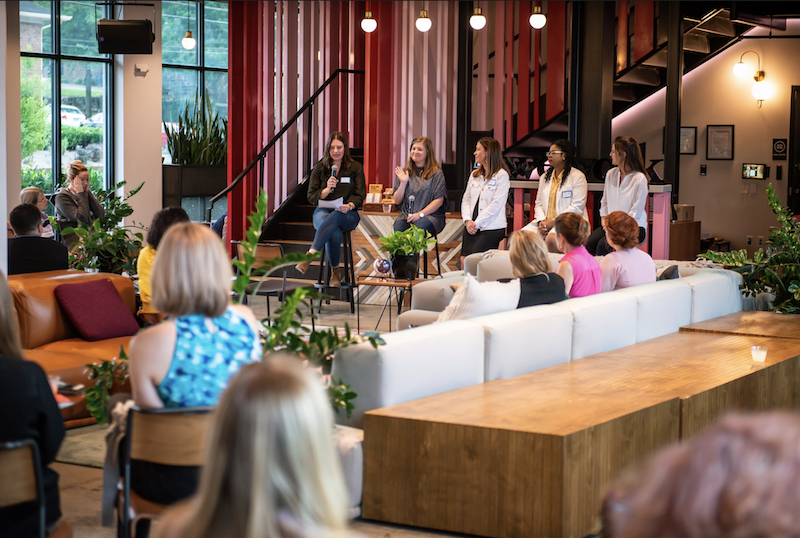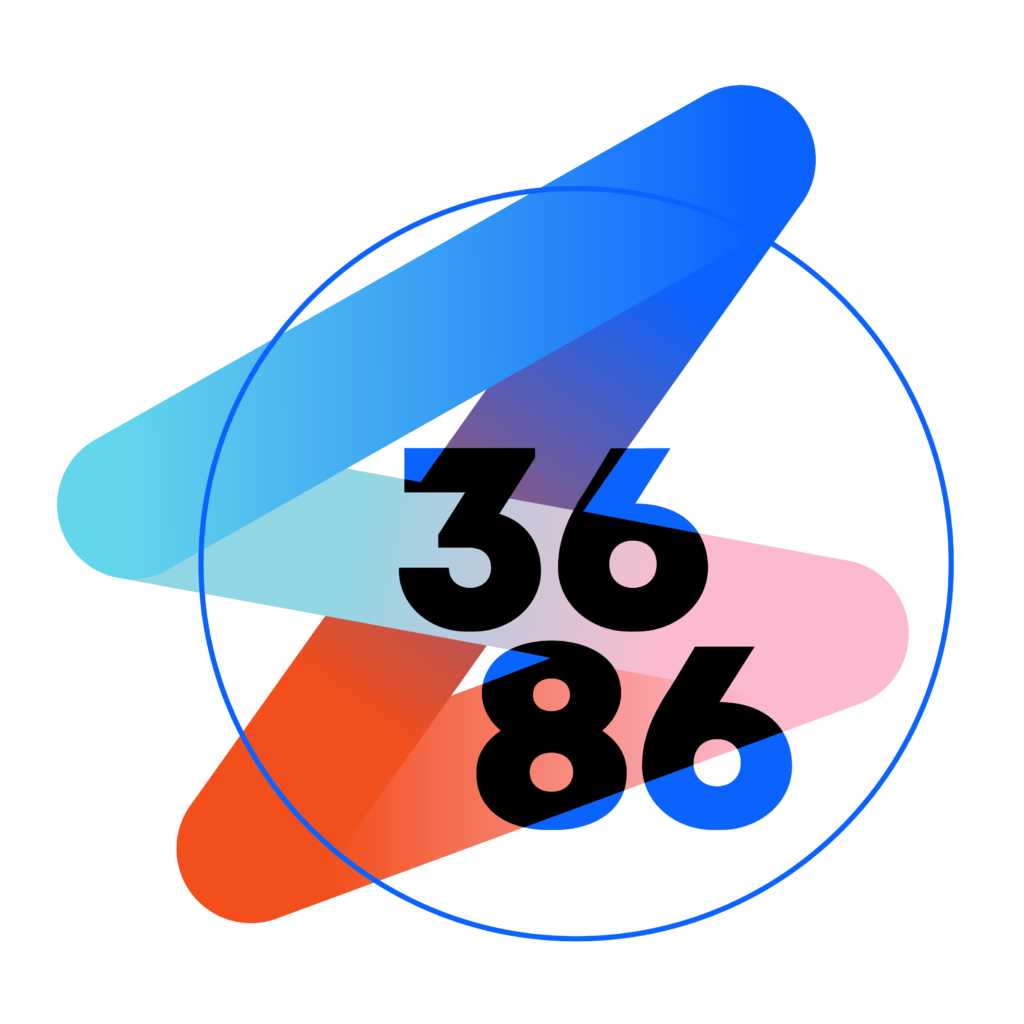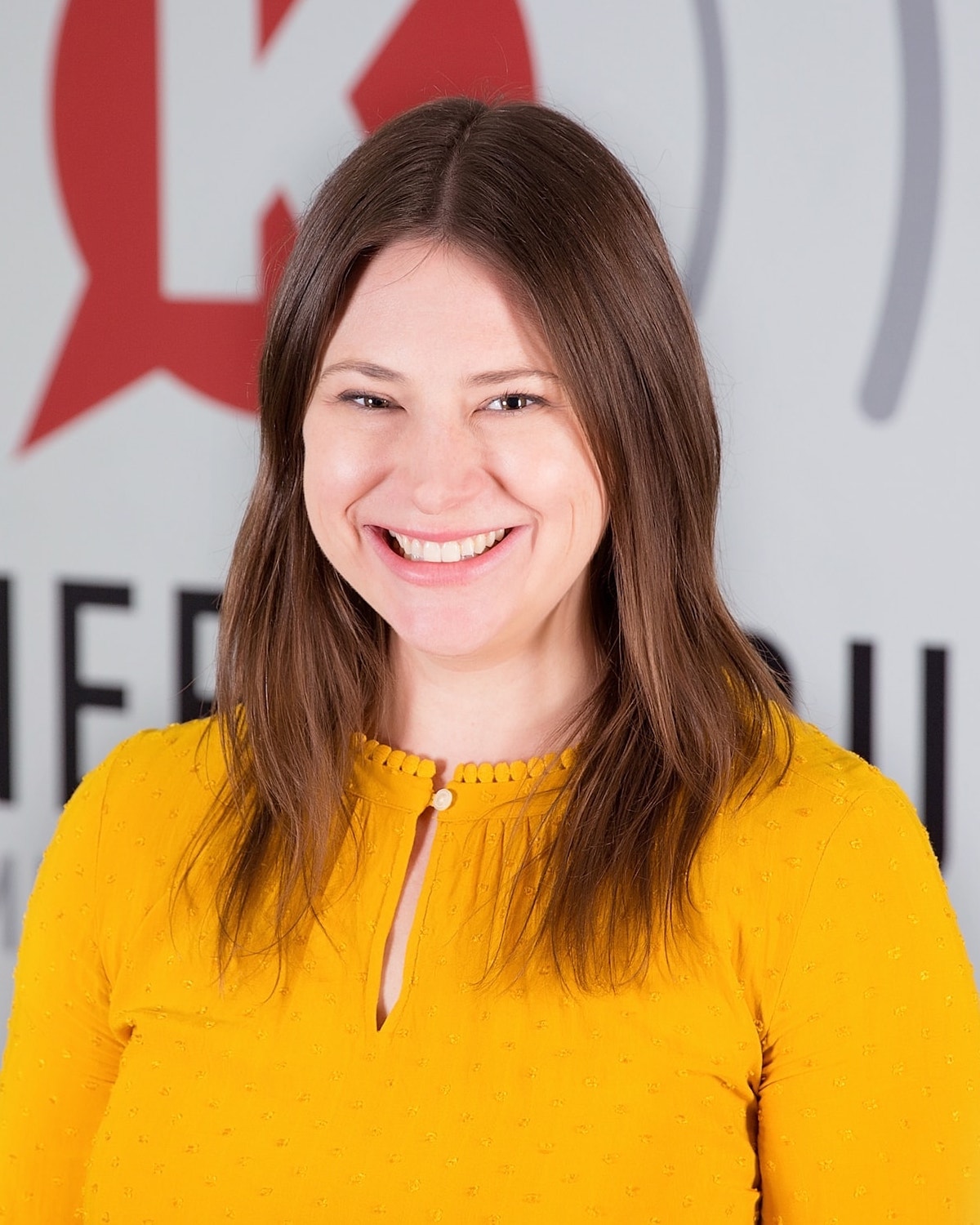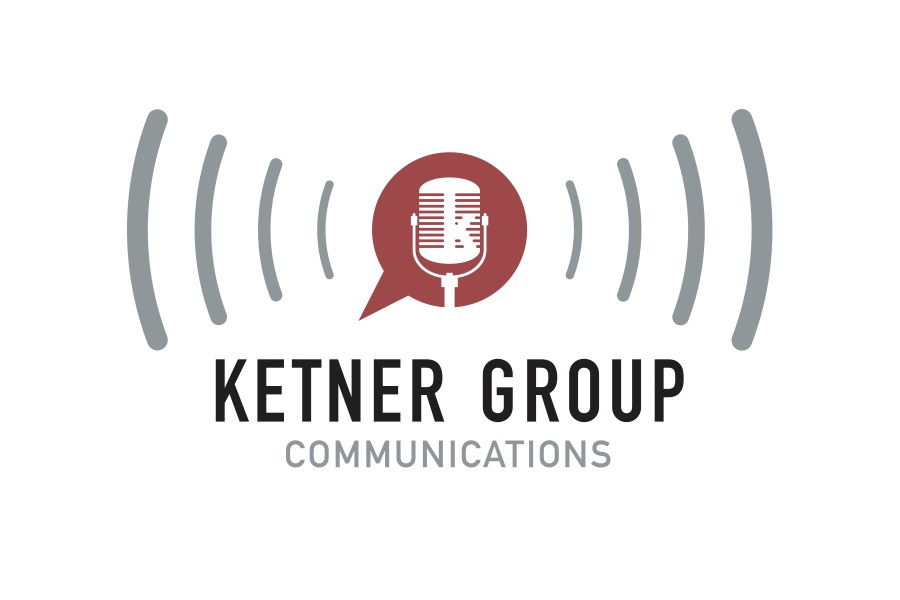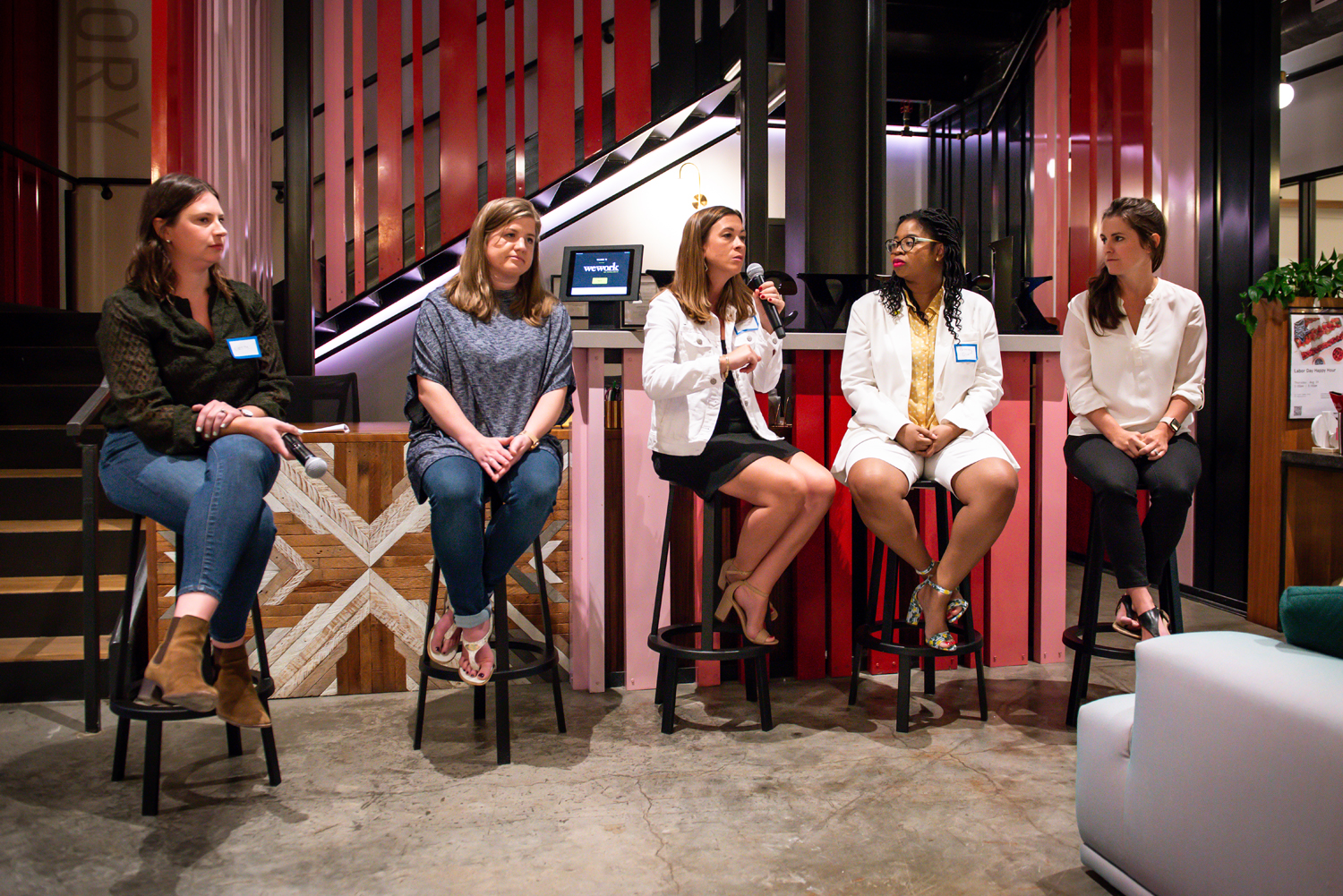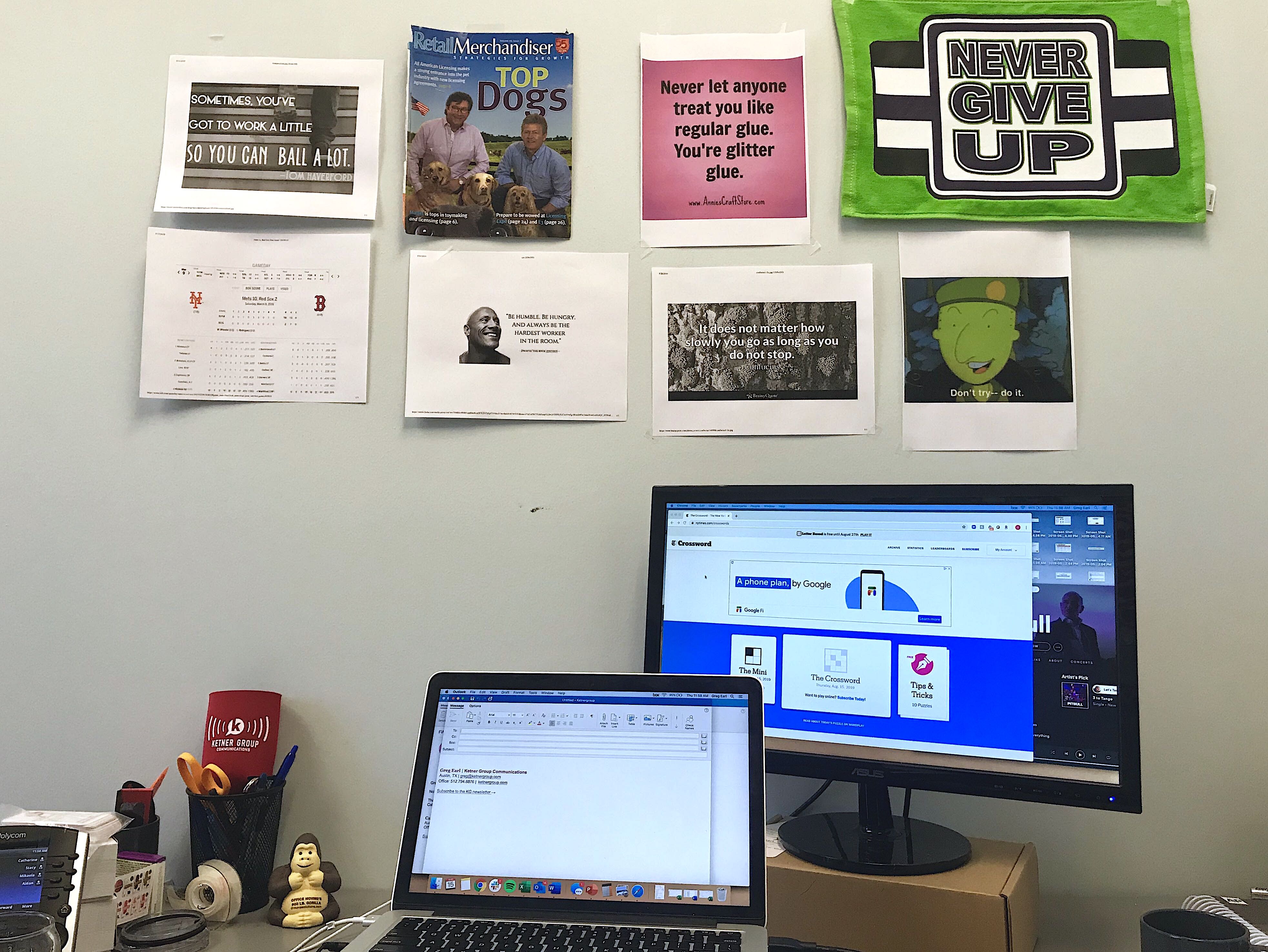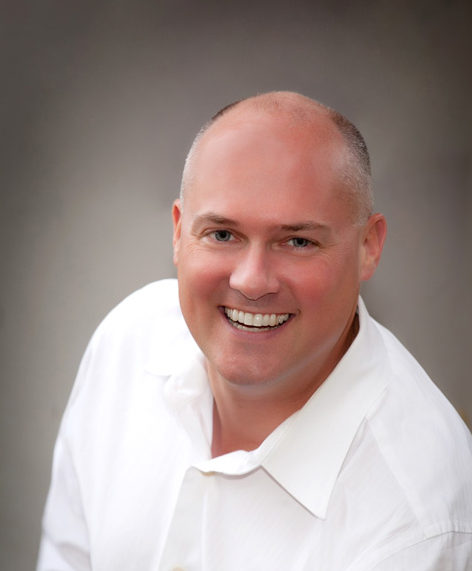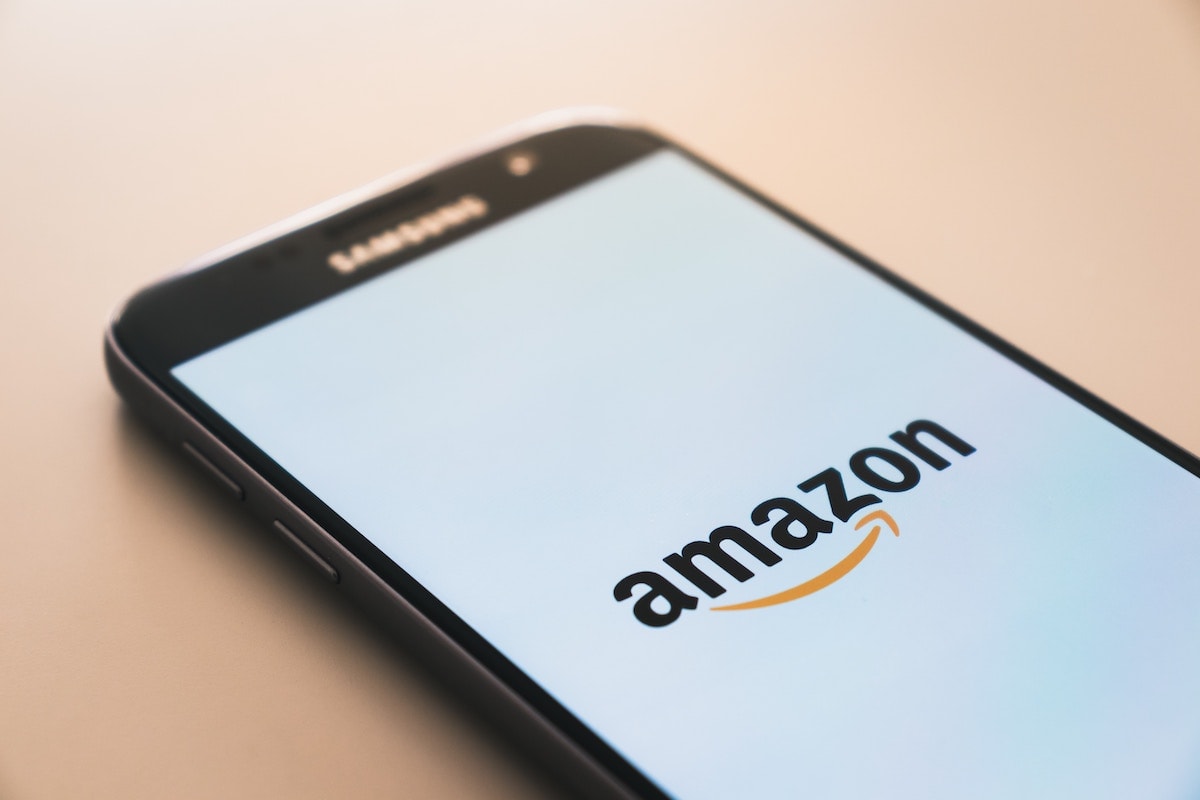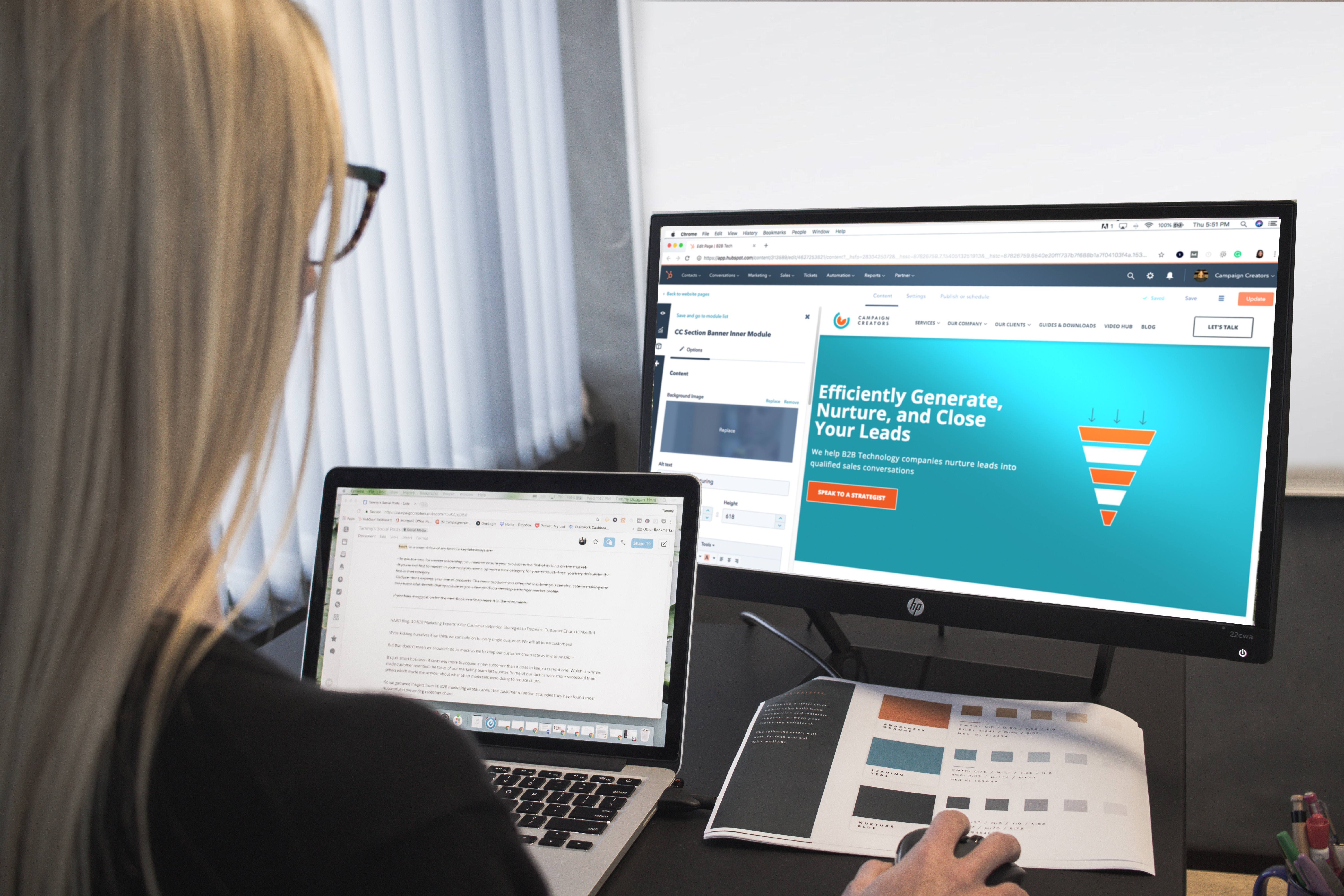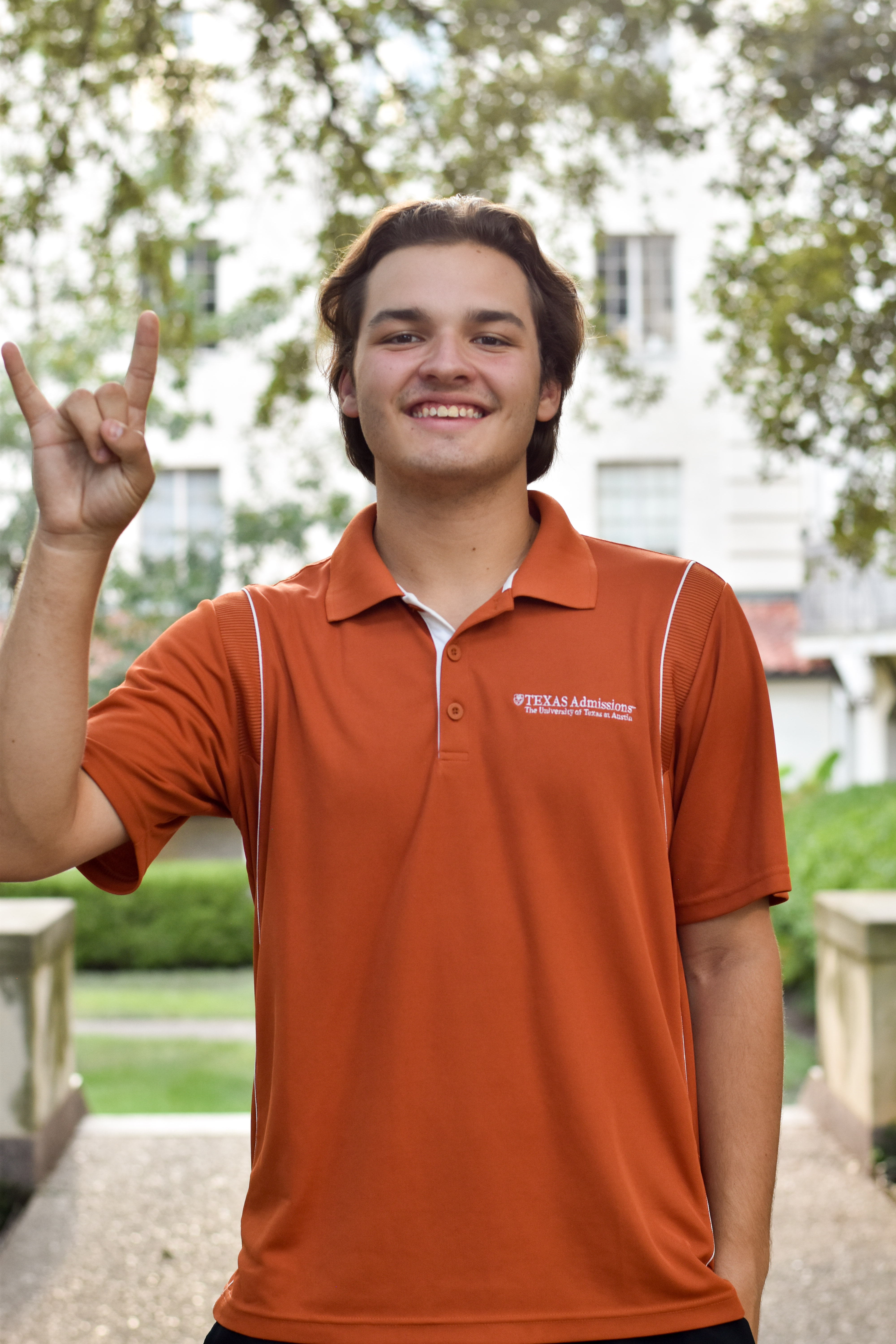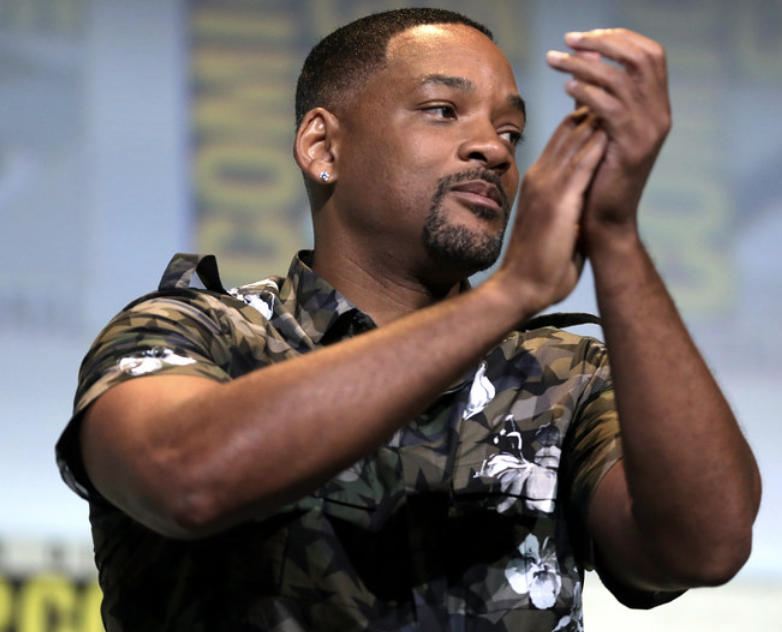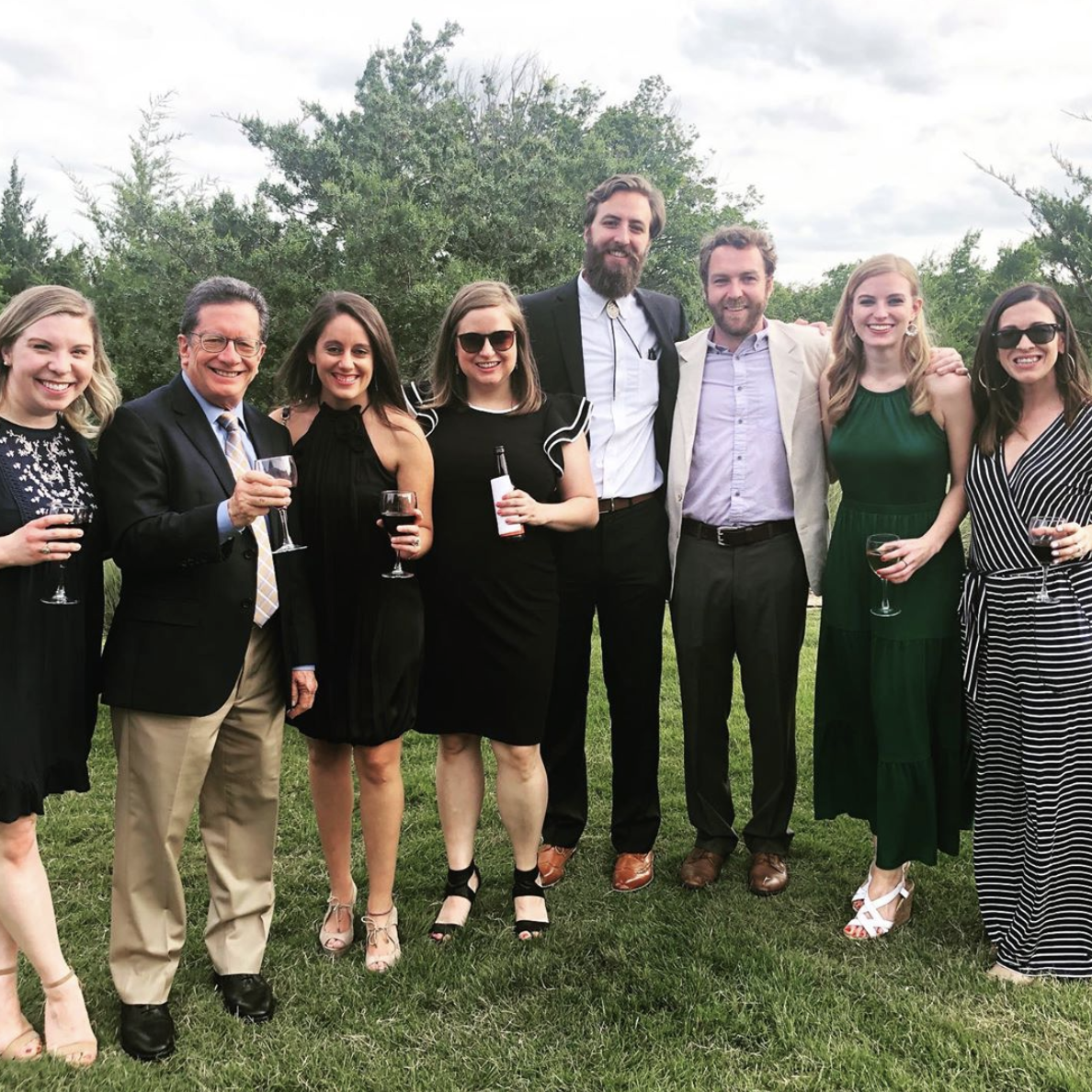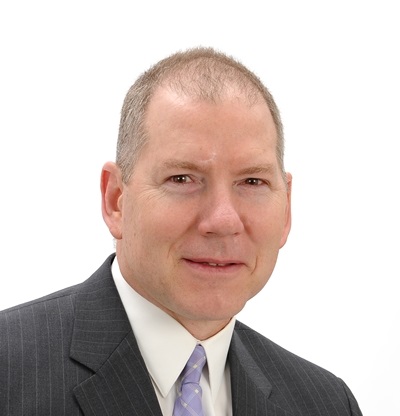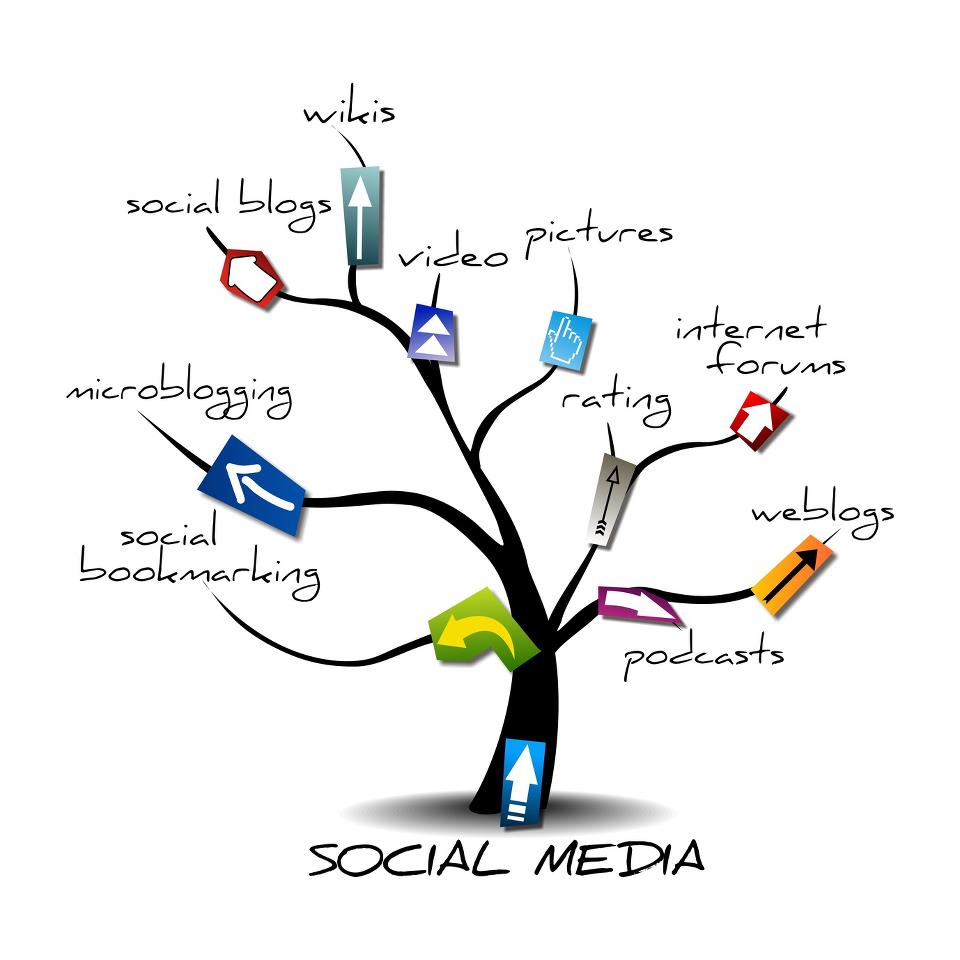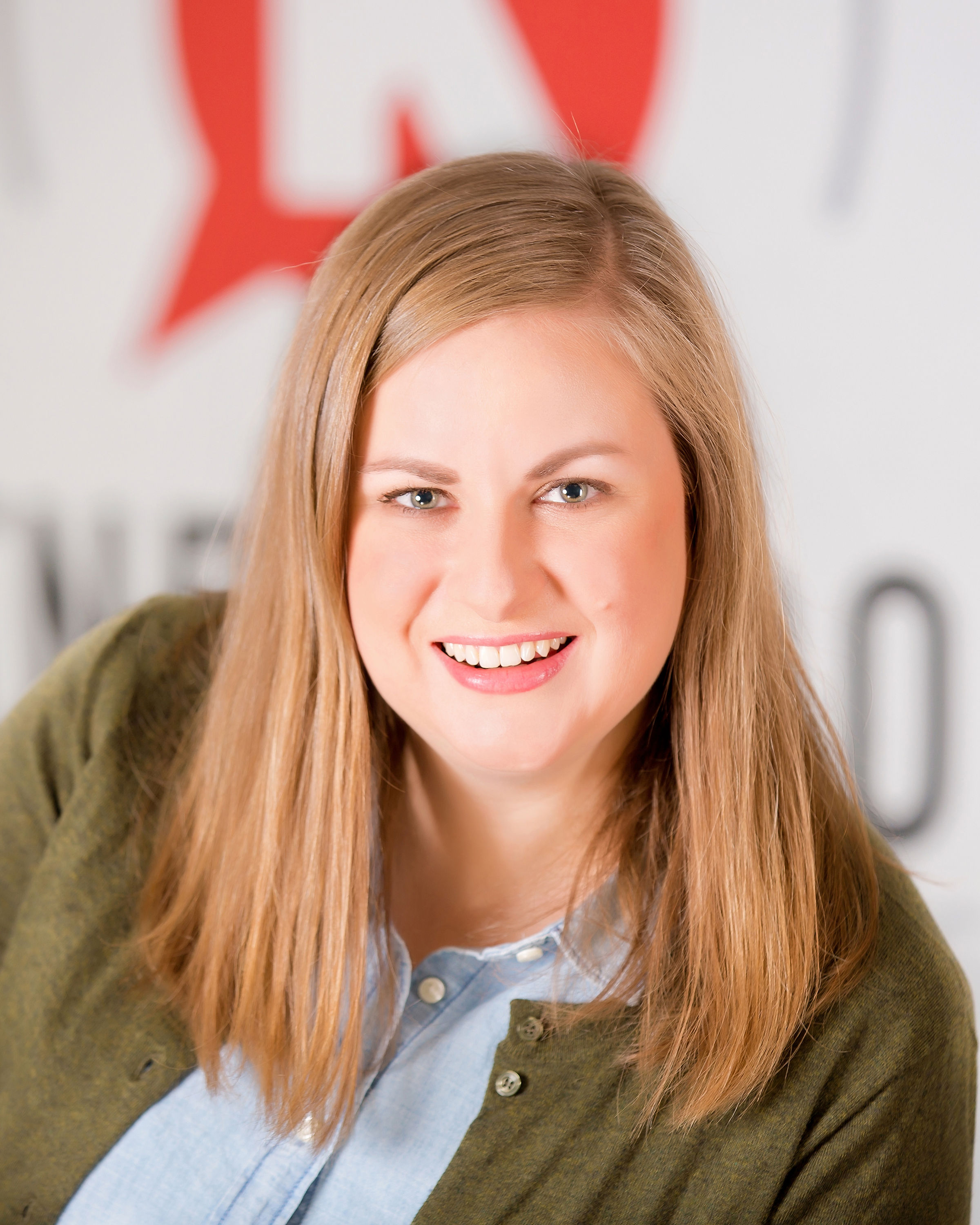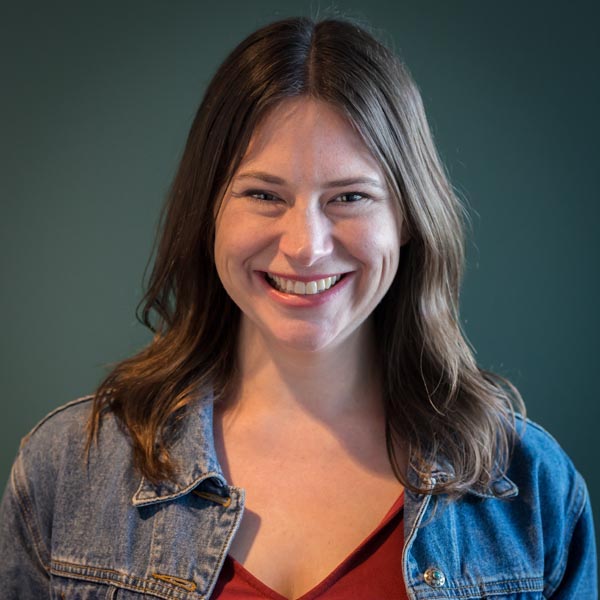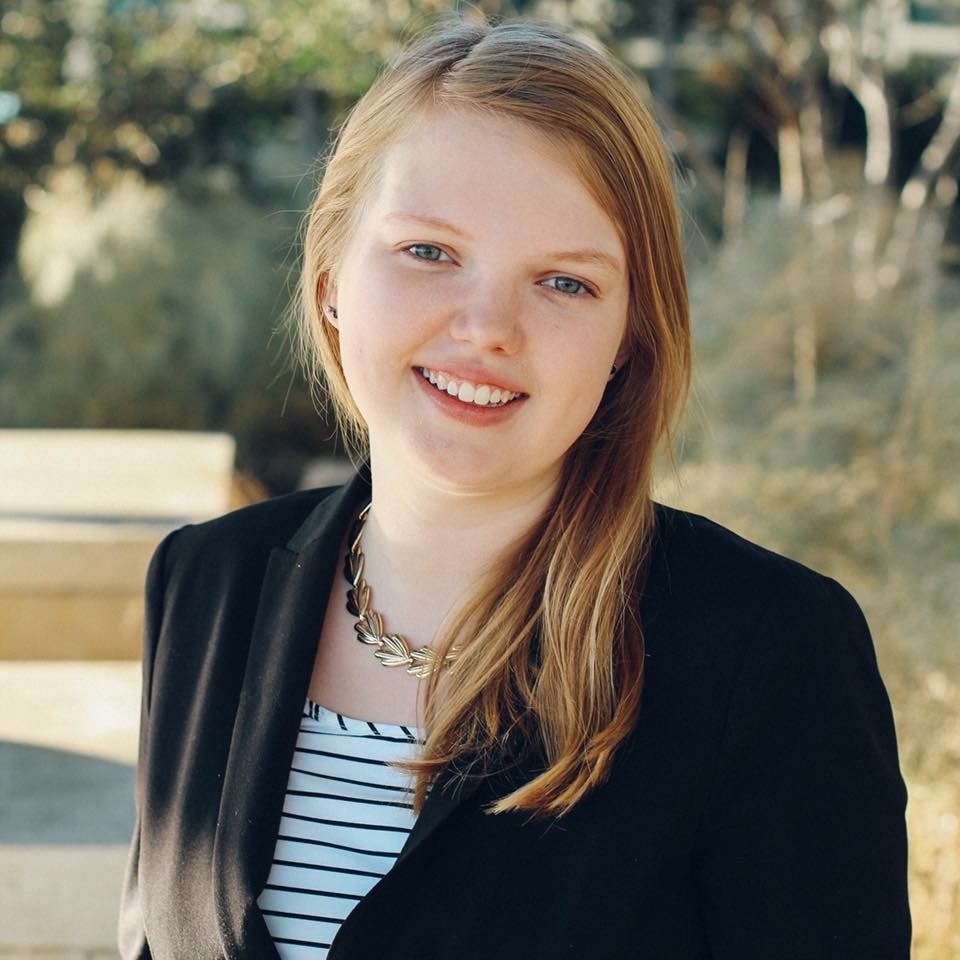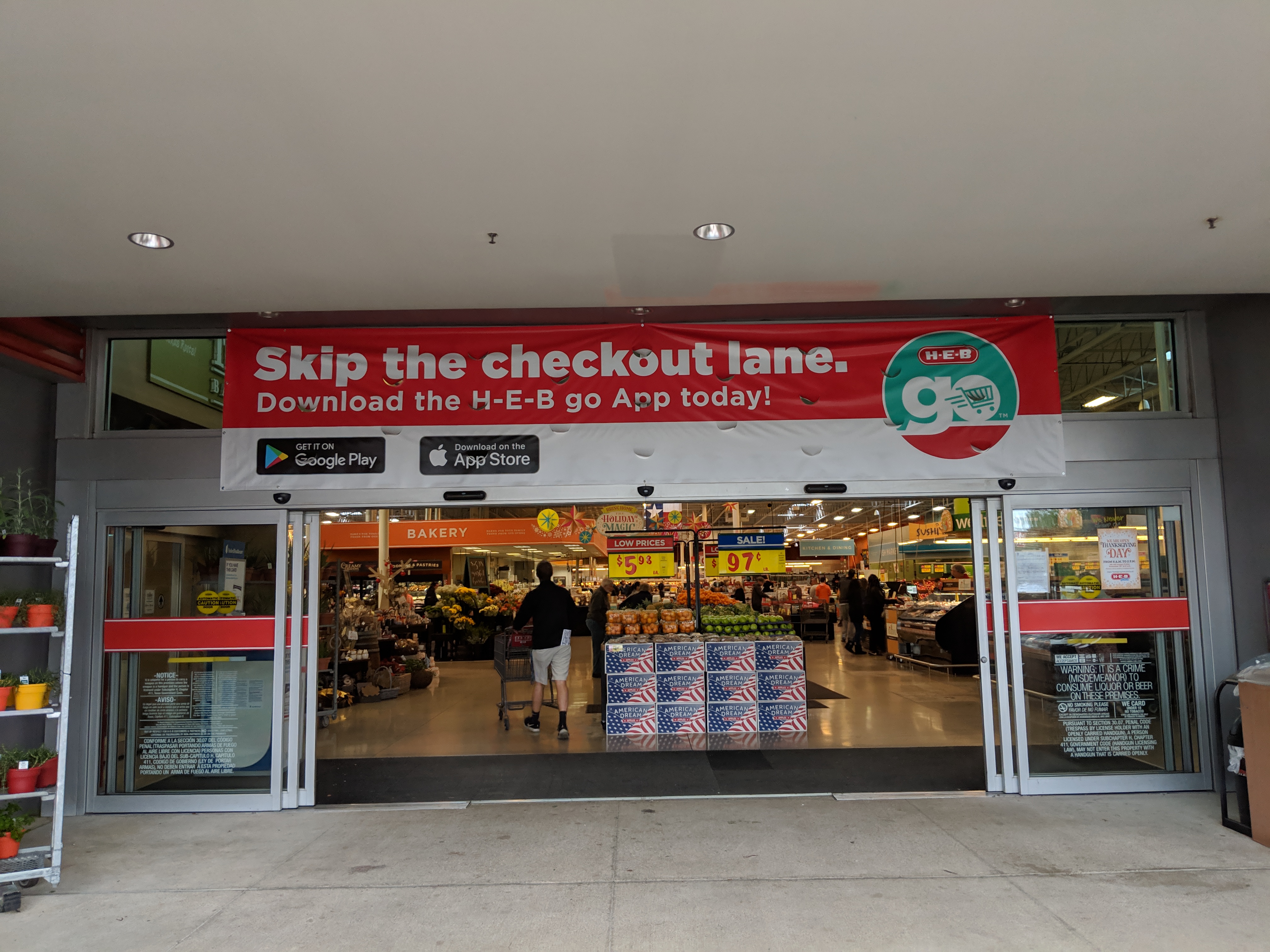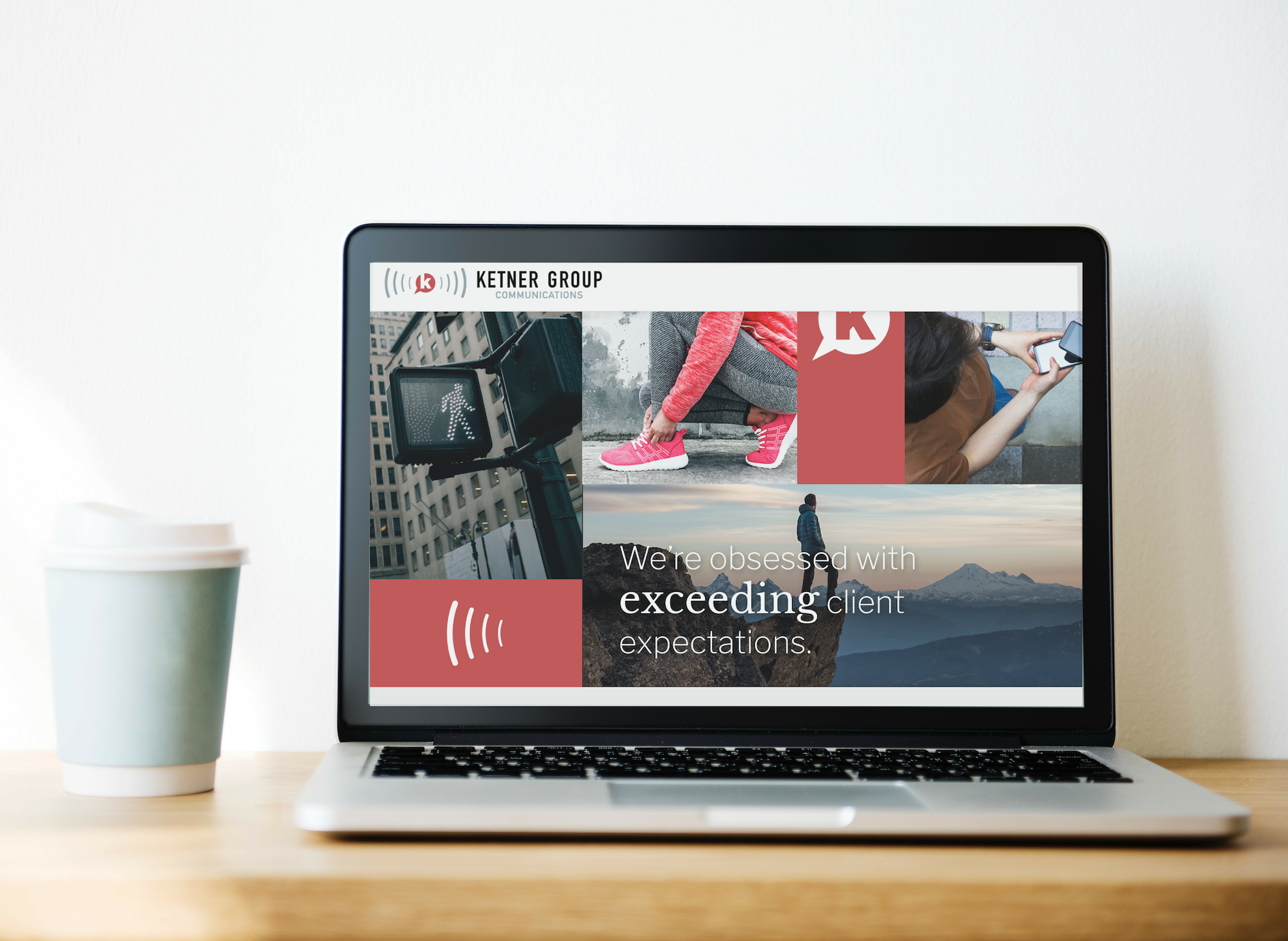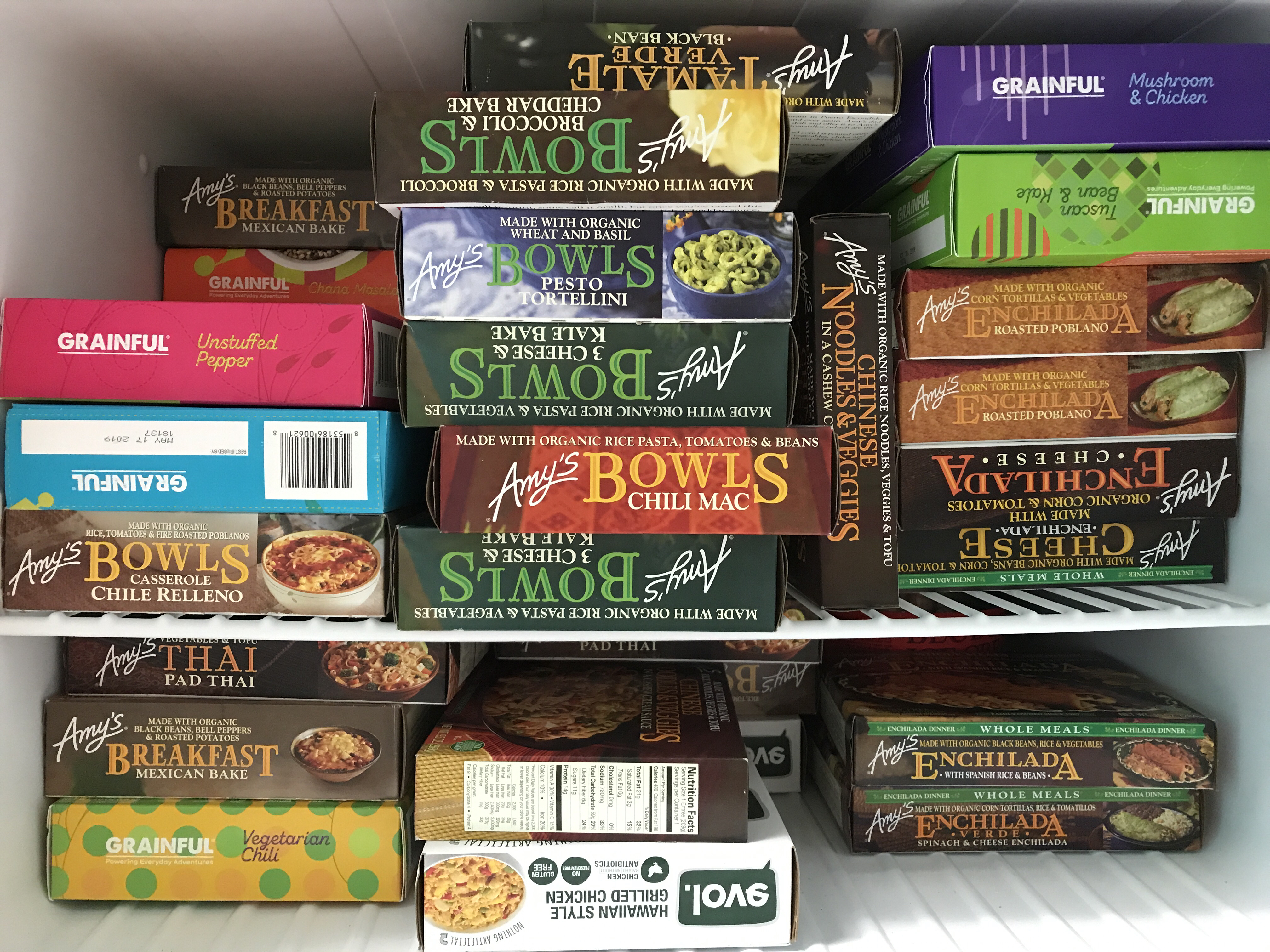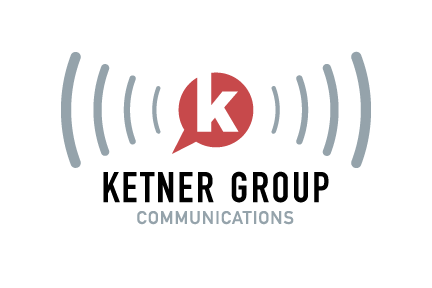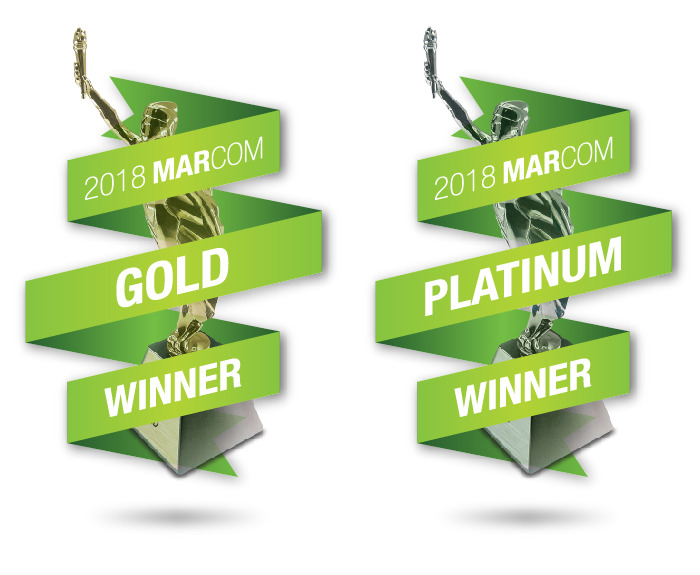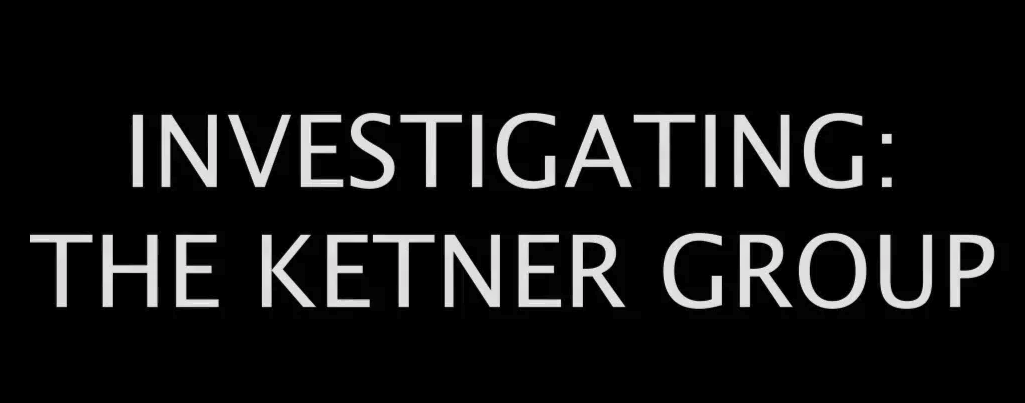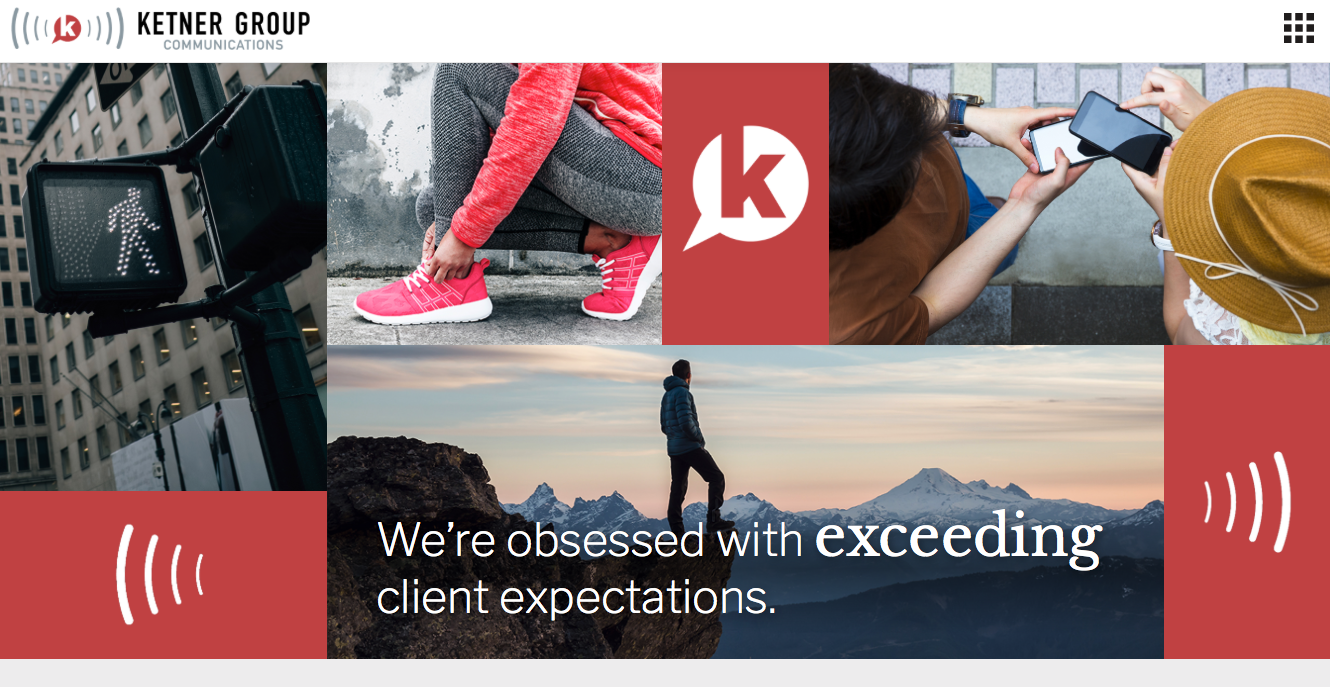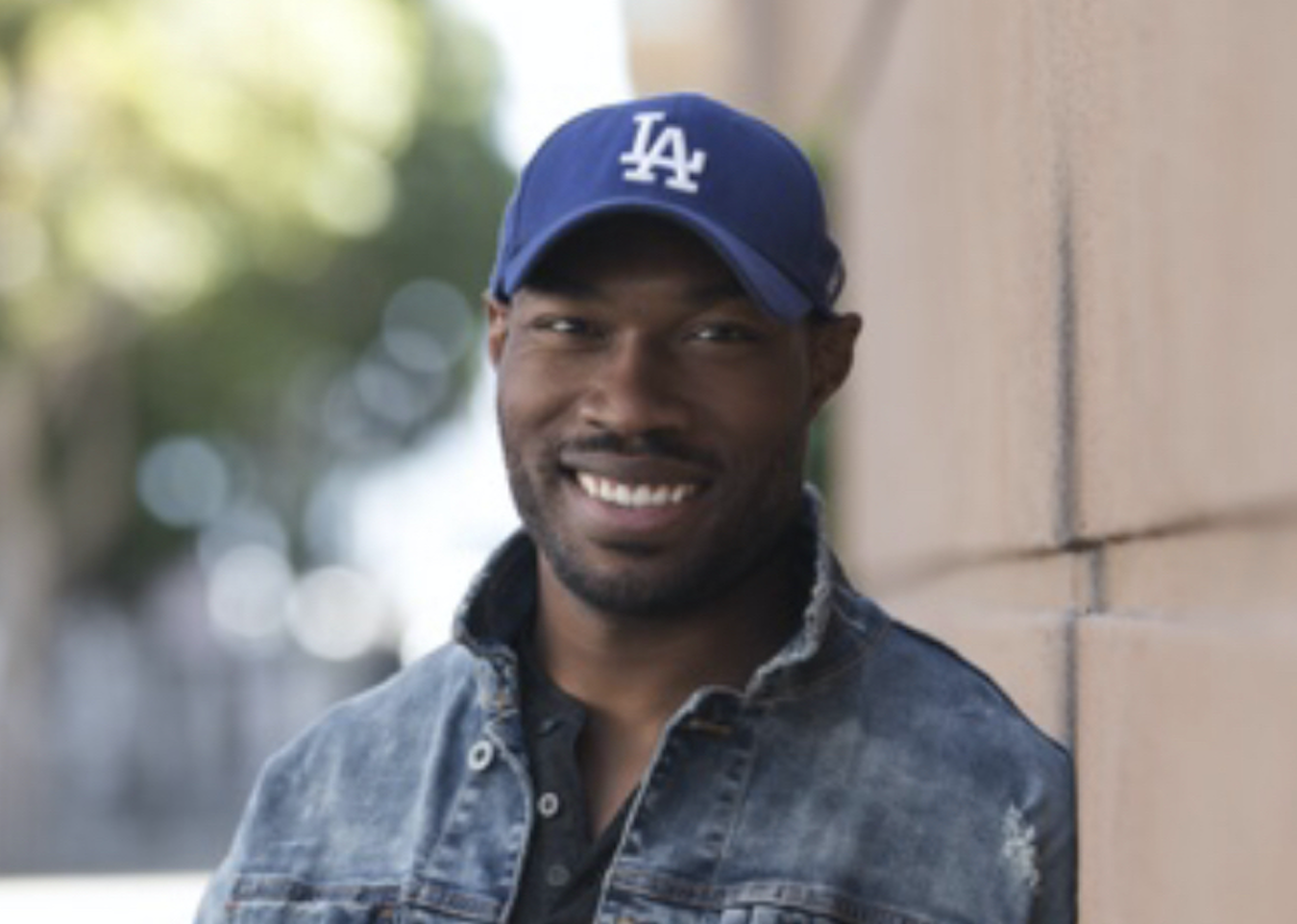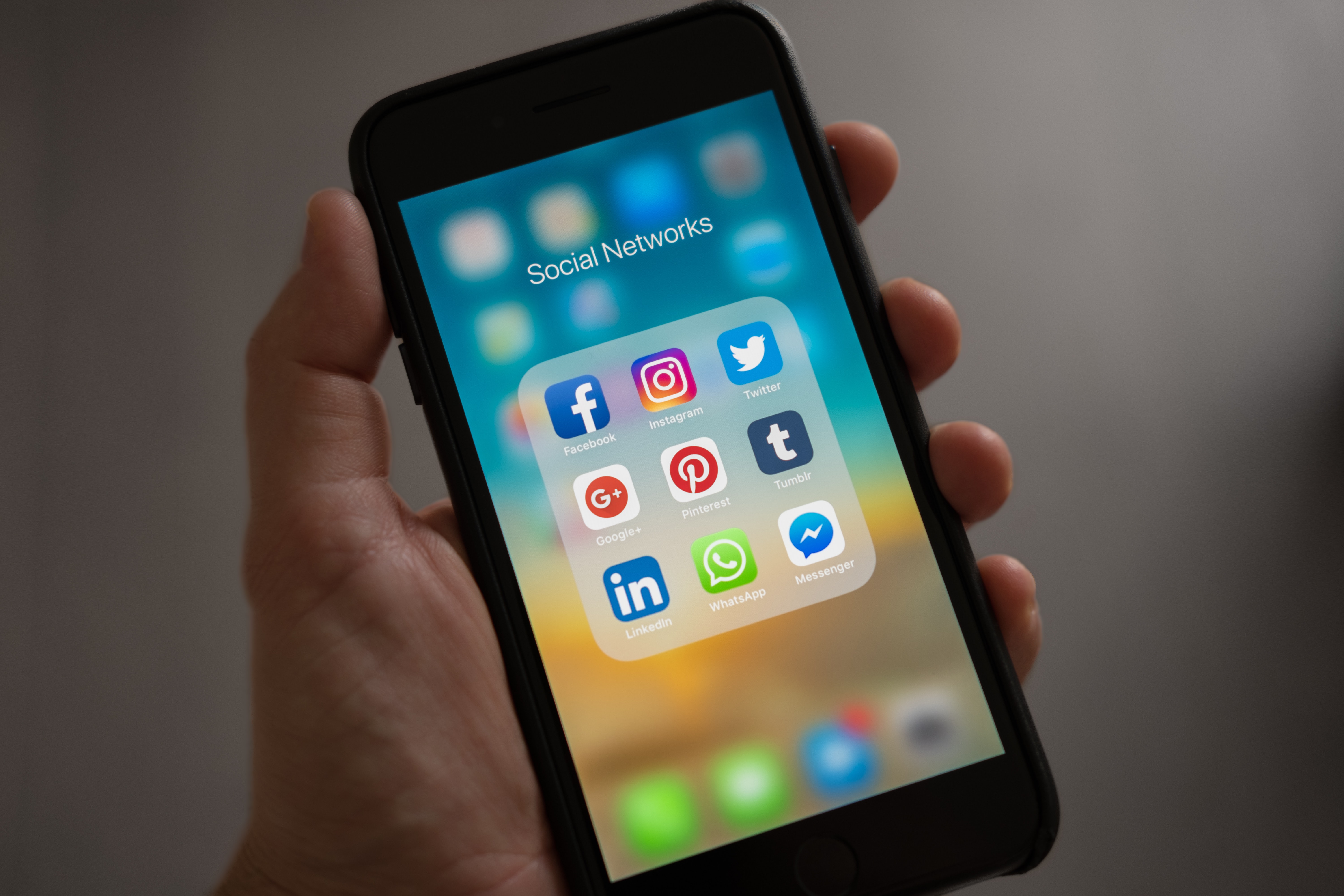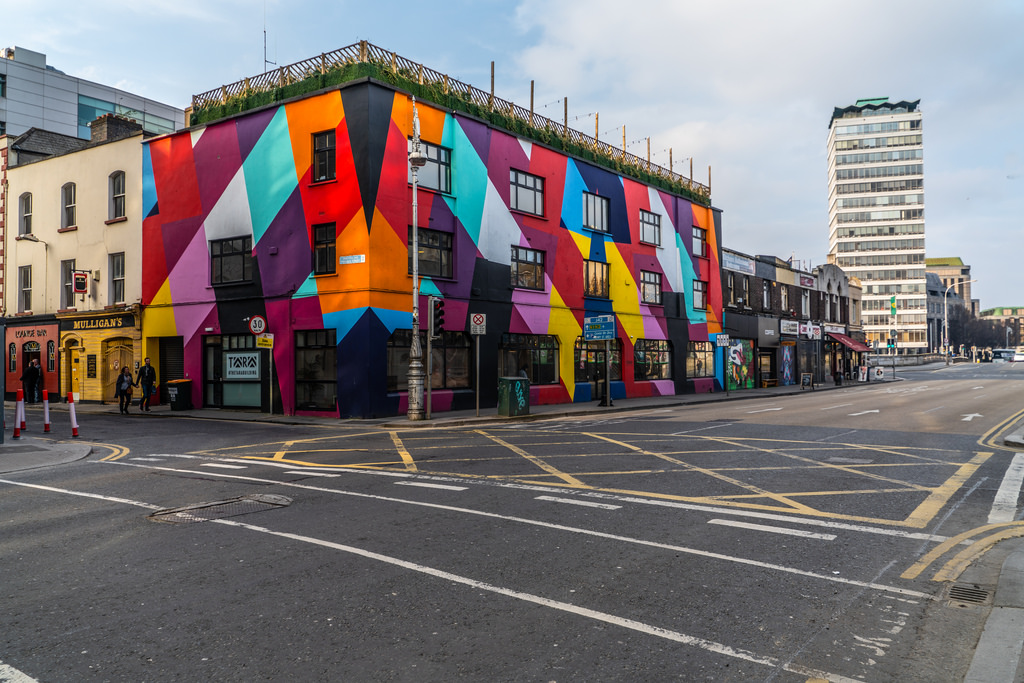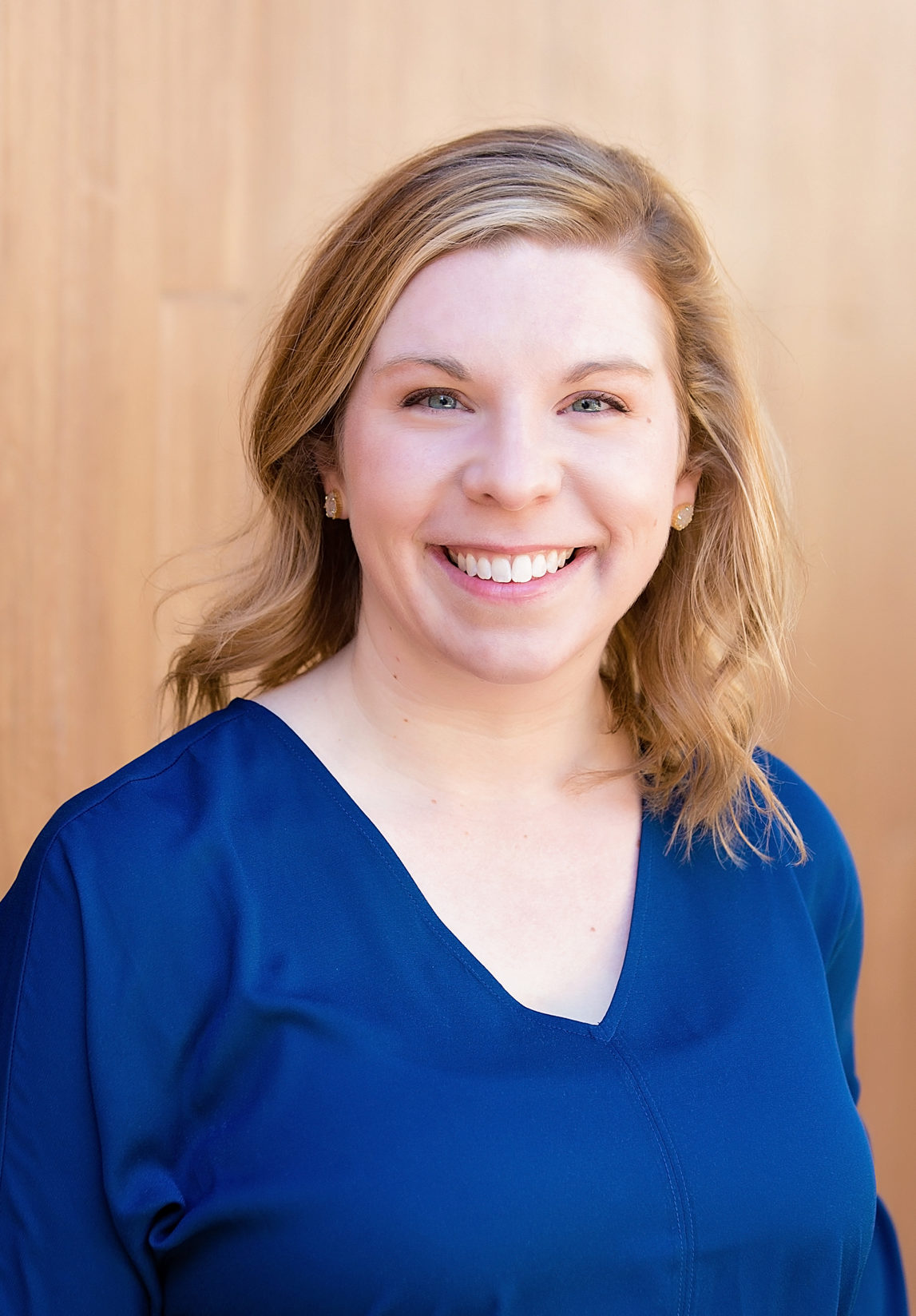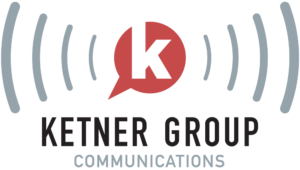
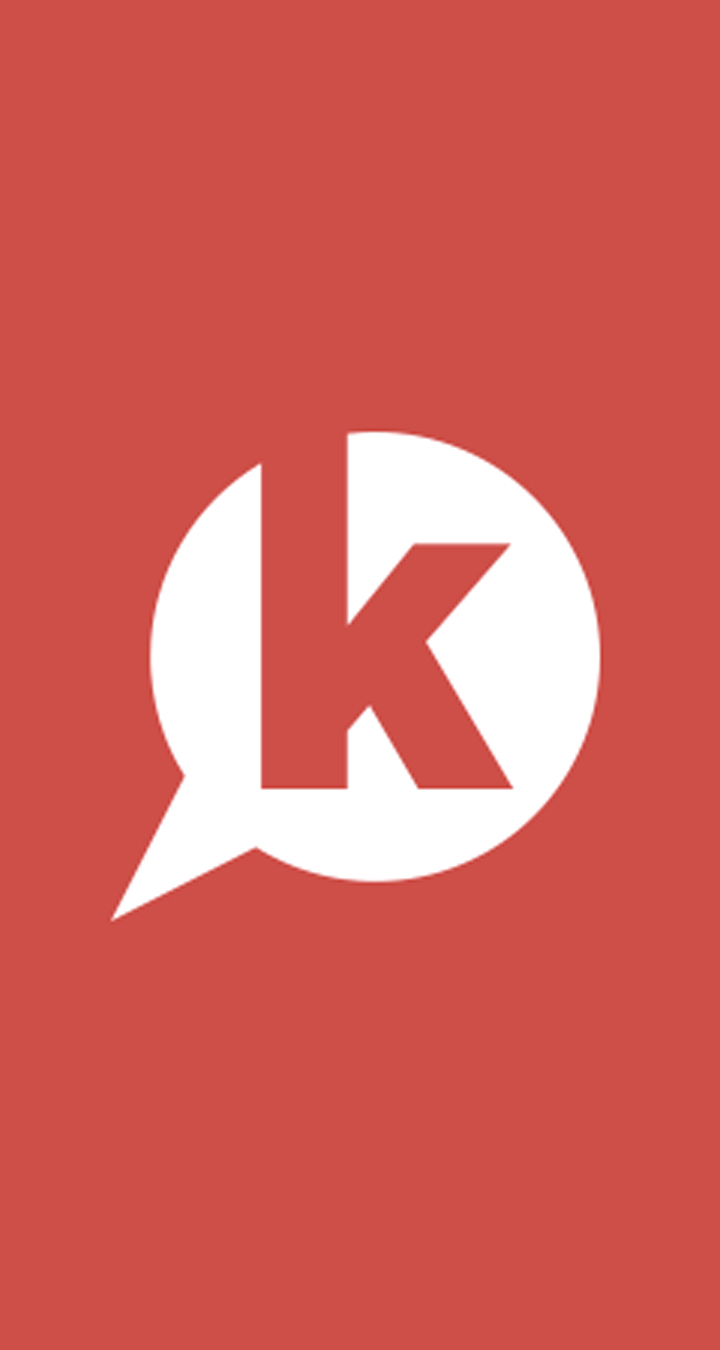

KG Blog
Media professionals are often behind the scenes and telling the stories of others, so it’s a joy to flip the script and highlight the work that they’re doing from time to time. This also helps us learn directly from the source how we as PR professionals can be better resources. One media professional I have…
Hi everyone! My name is Isabella, I’m Ketner Group’s newest public relations intern, and I’m thrilled to be joining the team! I’m currently studying Journalism and International Relations at UT Austin, and naturally, as a journalism major, I love to tell stories. So let me go ahead and tell you mine. An Avid Reader to…
As PR professionals, it is critical to not only stay informed on what is happening in the news, but to always think about how our clients can be a part of larger conversations. Their insights and data can help the media round out news stories with unique third-party commentary, while, at the same time, helping…
When we receive good news, our first inclination is naturally to share it with others. And the same thing applies when your company receives great media coverage, whether it’s pickup in The Wall Street Journal or an influential trade journal, a broadcast mention or a podcast appearance. You’ve worked hard with your PR agency to…
When I sat down to write this blog, you can imagine that there were probably 100 different angles I could have focused on. After all, influencer marketing has deep roots! The earliest example of influencer marketing dates back to 1760 when a British potter used the royal family to promote his pottery business. The royal family – led by…
How can a PR agency and client work together to build thought leadership and drive market awareness in the world’s most crowded technology sector? And furthermore, how can a company differentiate itself and stand out in a sea of noisy competitors? Those are the challenges that we at Ketner Group and our client Digital Wave…
For this month’s audio blog, Ketner Group CEO and president Catherine Seeds explores department stores, including their glory days, challenging years and innovative futures. Watch the video or read the transcript below! Hello, and welcome to another installment of our KG audio blog series! I’m Catherine Seeds, president and CEO of Ketner Group. Thanks for…
At a time when everyone is looking for the next big trend to latch on to, it can be hard to differentiate what makes a good news story vs. what is the next “flash in a pan” trend. The reality is, trends are not on their own, stories. Good PR professionals know that the media…
Hi, everyone! I’m Emilia, and I’m excited to introduce myself as Ketner Group’s Retail Tech Marketing Intern! I’m also currently a third-year Economics Major with a minor in Journalism and Media here at UT Austin. Originally from Southern California, I didn’t think I’d find myself being a Longhorn, but now I can’t imagine it being…
Growing up, I was fascinated with the investigative journalists I saw on TV and read about in books. I pictured myself chasing stories that would reveal injustices, uncover corruption and expose wrongdoing. A champion for the truth, I would don a well-tailored blazer, microphone in one hand, notebook filled with insights and hard-earned facts in…
Labor Day unofficially marks the end of vacation season and a return to normal schedules, after slowing down just a bit for the summer. For those of us in retail and technology, though, September is also a time to shift into a higher gear for some of the industry’s most important events. Groceryshop, NACS, P2PI…
In her latest audio blog, our president and CEO shares the latest trend in retail tech. Transcript of “Spatial Computing” audio blog: Hello! It’s been a minute since we’ve recorded one of our KG audio blogs, but I am glad to be back and excited you have joined me today! I’m Catherine Seeds, president and…
It’s hard to believe that today’s AI revolution started only 18+ months ago. That’s when OpenAI publicly released ChatGPT, forever changing the technology landscape by fueling an exponential wave of technology innovation. We’ve seen firsthand the impact of AI in retail technology. NRF 2024 could easily have been rebranded “NRFAI,” as AI was everywhere and…
Hello, everyone! My name is Lucy Benish, and I am so excited to join the Ketner Group team as a summer intern! I am originally from the Chicago suburbs, but I go to school at Belmont University in Nashville, Tennessee. I am majoring in Creative and Entertainment Industries. My major choice was inspired by my…
As a PR agency that specializes in helping retail technology companies gain exposure in their areas of expertise and expand their share of market, we know what it takes to set our clients up for long-term success. The reality is that, when done right, a solid PR program can provide major value to tech companies.…
Content, like blogs and whitepapers, is a valuable asset for you as a marketer for a B2B retail tech business. It can be used for sales meetings, prospect outreach, discoverability on search or social media, and more. Yet content can often fall to the back burner when other marketing deliverables take priority. That’s why many…
Trade shows are one of the best opportunities for retail tech vendors to meet with clients and prospects face to face. Whether it’s an initial meeting or a chance to move a prospective client further along the sales pipeline, in-person meetings are invaluable. And since key events such as NRF, Shoptalk, FMI Midwinter and others…
Well, this was a fun one, folks! I recently had the chance to visit with the talented Jamie Grill-Goodman, editor in chief of RIS News. As editor in chief, Jamie is among the ranks of amazing journalists and retail tech thought-leaders who previously held this post, such as Joe Skorupa and the late Dennis Eskow. She has…
When a tech company has an exciting announcement to share, many turn to press releases without a second thought. After all, press releases are an effective way to share news, reach a wide variety of audiences and increase SEO. But the reality is, the impact of a press release can vary widely based on how…
Hello, everyone! I’m Shay Edblom and I am currently in my last semester of college at The University of Texas at Austin. Hook ’em Horns! When deciding what to study in college, I followed my talent for writing into a public relations degree. Throughout my time at UT, I picked up a business minor and…
AI’s breakthrough year in 2023 was the retail technology equivalent of Taylor Swift’s Eras tour – a once-in-a-generation event that changes everything. If Swiftmania is the biggest musical sensation since The Beatles, then Generative AI is easily the most revolutionary technology since the iPhone. AI is quickly becoming a pervasive technology, dividing the timeline for…
Hello everyone! My name is Matthew Boncosky, and I’m the latest and greatest member to join the Ketner Group team full-time! It feels great being able to put that into words. If you already recognize my name, that’s because you might have read my first introduction on the KG blog when I began as an…
I think we can all agree that the retail tech industry is extremely lucky to have so many wonderful experts and content creators! You may recall that I recently sat down with our friend Barbara Thau to get her take on industry trends and tips for PR folks. For my next chat, I sat down…
As a PR professional with almost 25 years of experience creating and executing successful communications strategies for my clients, I do feel it is my duty to address a big elephant in the room. Some of you may just not be ready for PR. And that is ok! As with anything in life, just because…
I’m writing this blog during the hottest summer on record, and like you, I’m dreaming of cooler weather, football season, the holidays and…. ….NRF! The first email for NRF ’24 hit my inbox Aug. 8, and my first reaction was “whaaaat!?” But after 30+ years in retail tech PR, the timing makes sense. After all,…
Hello, world! My name is Bernice Chen, and I’m a senior public relations student at The University of Texas at Austin. I’m excited to be starting my internship with Ketner Group! How it all began: landing on public relations I was born in Taiwan, one of the best places on the planet, but I’ve lived…
In a fast-paced news world, journalists continue to rely on reputable and interesting story resources from PR professionals. That is why it is important to know and understand as much about the media we are working with as we can. Over the years, the Ketner Group team has been lucky to work with so many…
Texans love their H-E-B. The beloved grocer was recently named the Ultimate Texas Brand by Texas Monthly readers, who overwhelmingly crowned H-E-B the winner over 49 other iconic Texas brands including Dairy Queen, Whataburger, Buc-ee’s, Southwest Airlines (that holiday scheduling fiasco didn’t help) and many others. Why H-E-B? It all boils down to an incredible…
Hello readers! My name is Abby Nelson, and I am a brand new full-time member of Team Awesome. Once upon a time, i.e. five months ago, I started my first ever, agency-side internship with Ketner Group. I remember feeling intimidated by the retail technology niche. I was trekking into an unknown world of artificial intelligence…
In her latest audio blog, our president and CEO recaps some of the cool in-store technologies at the Domain shopping center in Austin, TX. Transcript of “Domain Diaries” audio blog: It’s times like this that I really love my job. In preparation for this audio blog, I recently spent some time cruising around the Domain, the…
It’s been a little while since I’ve published a piece of writing under my name. By a little while I mean about six months, but those six months have been a welcome reprieve. That’s because for three and a half of the last four years, I was immersed in the hectic but rewarding world of…
A proven leader with more than 24 years of experience in B2B PR, Seeds will expand on the success Ketner built and continue the agency’s dedication to creating a rock-solid culture AUSTIN, Texas – May 2, 2023 – Ketner Group Communications, the leading public relations agency for retail technology companies, today announced it named Catherine…
The death of legendary broadcast journalist Barbara Walters in December marked the passing of one of the most influential newscasters in television history. Walters shattered the glass ceiling of a male-dominated world and inspired other high-profile women broadcasters who followed in her footsteps. She became famous for her in-depth, prime-time interviews with seemingly all the…
Hi everyone, it’s Katherine. I’m ecstatic to be joining the team as a Senior Account Executive! My love of words (and how it got me here) I’ve always had an affinity for words. As a baby, I spoke in whole sentences before I could even stand on two feet. In elementary and middle school, I…
This year, the theme of Women’s History Month is “Celebrating Women Who Tell Our Stories.” As storytellers working for a PR agency and spending a lot of time telling stories, we find the theme particularly relevant and inspiring. Each year, Ketner Group’s DEI Committee selects a few, team-voted monthly observances to recognize. This year, Women’s…
As I type this, the weather is a beautiful 83 degrees in Austin, TX. This means that I’m wearing one of my favorite Spring dresses from last year. It’s yellow with blue flowers, has the perfect size and cut of spaghetti straps, with an empire waist that “slims” me in all the right places. In…
In my 30+ year career in public relations, I’ve spent a lot of time thinking about relationships. After all, “relations” is one of the two words we use to describe what we do every day. Trusted, long-term relationships between editors and PR professionals are at the heart of public relations excellence. It’s getting harder to…
The agency promotes Kirsty Goodlett to VP of marketing and announces key 2022 successes AUSTIN, Texas – Feb. 2, 2023 – Ketner Group Communications, the leading public relations agency for innovative retail technology companies, today announced key 2022 successes that solidify its leadership in retail technology PR. Last year, Ketner Group launched the industry’s first-ever…
Dear readers, just as a note, while “senior” is in my title (and a bit in my knees and ankles), I’m far from the “get off my lawn” stage of my career; although, there has been so much change in retail over the years that I feel a bit senior, too. My name is Dan…
Well, hello there! My name is Abby, and I am happy to report that I am Ketner Group’s Spring 2023 PR intern. I believe an introduction is in order. Here goes! What makes Abby, Abby? Here are the basics: I am a senior public relations major and business foundations minor at UT Austin, and I…
I don’t know about y’all, but after spending months at home during COVID, I was thrilled to be back in “real clothes” and out of lounge wear. Fashion retailers were ready to have us back, too, and technology played a significant role in driving consumers back to their favorite brands. In fact, according to McKinsey…
I’m usually not nervous about interviewing someone, but this blog post is a bit different. After all, it’s about my business partner and our agency president, Catherine Seeds, who celebrated her 20th anniversary at Ketner Group earlier this month. This agency absolutely wouldn’t be the same without her. Catherine dares to dream big, she’s fiercely…
I joined Ketner Group as an intern in early 2020. And as you can imagine with that start date, I haven’t had many opportunities to attend in-person retail conferences. So, when my team mentioned the possibility of having me attend the 2022 SKU Retail Brew Summit, I jumped at the opportunity! I couldn’t wait to…
Many of us can remember the social unrest that occurred in May and June 2020. George Floyd’s murder not only initiated immense public response, but many businesses made statements against racism and injustice. Another result of this societal awakening was companies began looking inward to support diversity, equity and inclusion – including yours truly. With…
AUSTIN, Texas – Oct. 12, 2022 – Ketner Group Communications, the leading public relations agency for innovative retail technology companies, today announced that PRNEWS has included the agency in its 2023 Agency Elite Top 100. Each year, the editorial roster serves as a comprehensive guide highlighting the most innovative public relations and communications firms in…
We’re excited to share that our eBook, the Retail Tech PR Handbook, is out now! The handbook dives into several aspects of what makes a PR campaign successful, and a key component is measurement. Since measuring the success of your communications plans is as important as the plan itself, we’ve included highlights from the chapter…
Retail technology is evolving at at an increasingly rapid pace, and that’s good news for retail tech companies. According to IHL Research, this acceleration creates a once-in-a-lifetime opportunity for technology companies, as retailers embrace new solutions. Now is the time for retail tech executives to seize the day and capture attention through strategic PR and…
Hi everyone! My name is Naomi Osuji and I’m so glad to join the Ketner Group team as an intern. I graduated with a bachelor’s degree in media studies with a specialization in radio and television production from Mercy College in 2016. I am currently obtaining my master’s degree at Pace University in arts and…
It’s been a long, hot summer—and an uncertain one for marketers who are grappling with the impact of an inflationary economy and fears of a possible recession. Companies are scrutinizing marketing budgets more closely, and CMOs are increasingly being asked to justify their spend. Faced with conflicting data, disappointing earnings report and negative economic news,…
Hi Everyone! My name is Isabel Vargas Jaros and I am excited to join Ketner Group as an account supervisor! Why I went into public relations Having always enjoyed reading and writing, I knew I wanted to work in an industry that would allow me to story tell daily. That led me to majoring in…
Sustainability has been a huge topic in retail for more than five years now. But the trend keeps on evolving, a reality Catherine Seeds explores in her latest video. Listen to her thoughts in our latest video, or read the transcript below to learn more! Catherine Seeds presents: retail sustainability Hi y’all! I’m Catherine Seeds,…
Hi there! I’m Maya Halabi and I’m super excited to join Ketner Group as the newest assistant account executive. Storytelling and writing had always been at the core of my college experiences and one of my greatest passions. Through a myriad of writing internships and positions, I learned about my love for connecting with others…
Electric cars have the potential to impact nearly every retail vertical.
Hi! My name is Susan Nam and I have the privilege of being Ketner Group’s newest intern for the summer, based in Austin. I’ll graduate from the University of Texas at Austin this summer with a degree in public relations as well as communication and leadership. Sounds like three majors, but thankfully it’s only two. …
According to our president Catherine Seeds, one of the best parts of her job is learning “the next big thing” happening within the retail industry. Her latest video discusses the latest trend: Direct-to-Avatar. Prefer to read a transcript of her video? We’ve included one below! Catherine Seeds presents: Direct-to-Avatar The best part of my job…
It’s hard to believe that it’s almost been five years since I joined Ketner Group! I’ve grown a lot during my time here — from a new graduate entering the world of PR to a senior account executive embracing the fun and exciting challenges the industry brings. A lot has changed in my personal life…
Moving into a new home is a lot of work—boxes to pack, movers to coordinate, juggling a seemingly endless array of details. However, it’s also a cause for celebration, full of excitement and new possibilities. That’s certainly the case at Ketner Group these days. We moved to a new office in Austin last month, and…
A day in the life of a PR professional is, by nature, unpredictable. And that’s what I love most about being an account executive (AE) at Ketner Group. Every day is a new day. The news cycle is fluid and every client need is different. So while it’s tough to pinpoint a concrete 9-5 experience,…
Today we are digging into a topic that I find incredibly interesting – Generation Z and their shopping habits. Gen Z, the group of 72 million youngsters born between 1997 and 2012, can’t remember a time before the internet and widespread digital technology. According to McKinsey, Gen Z has a greater interest in human rights, race and ethnicity…
Hello! I’m Andre Lenartowicz and I’m thrilled to join Ketner Group (i.e.: Team Awesome) as a content specialist. One thing I get asked a lot is why I chose to write for a living. It’s a bit of a long story so I think the best way to introduce myself is to explain that journey.…
When you ask a PR professional about what they do on a daily basis you almost always get the same frustrating answer, “no two days are ever the same in PR!” At least, that’s what I always heard when I was in college and trying to get a sense of my future in the industry.…
In some ways, the core of the pitch has remained the same, in other ways, the nature of the media pitch has drastically changed. To continue to succeed in today’s media landscape, we’ve put together key tips for media pitching in 2022.
Hello everyone! My name is Elizabeth Wiltshire and I’m a senior media studies student at Fordham University in New York City. I was born in New Jersey but spent most of my time growing up in a suburb about 30 minutes south of Boston. When I’m not on my campus in the Bronx, I split…
AUSTIN and NEW YORK CITY – Feb. 3, 2022 – Ketner Group Communications, the leading public relations agency for innovative retail technology companies, today announced significant growth in 2021, culminating in 20% year-over-year revenue growth for the agency, the creation of a net-new leadership role and multiple industry recognitions throughout 2021. Ketner Group’s momentum this…
Our CEO and founder Jeff Ketner started going to NRF about twenty years ago. It’s always been the event for building relationships in the retail tech industry. But this year, like last year, was different. His latest video discusses the shift in the landscape and how tech companies can respond. Prefer to read than watch…
When speaking with prospects and new clients in the retail technology industry who have previously worked with a PR agency, we regularly hear that the agency didn’t understand what they did. Often the agency either specialized in B2B technology or in retail, but not both. This is why it’s important to specifically find a retail…
As I write this, the retail industry is in the home stretch of the holiday shopping season, and the news is enough to make even the Grinch smile. Retail sales are on track to rise between 8.5 and 10.5 percent this holiday—the largest growth rate on record. Shoppers returned to stores in droves this season,…
Our president Catherine Seeds has worked in public relations for many years and one of her favorite parts of the job is building long-term relationships with reporters. Those looking to build their own long-term relationships should check out her latest audio clip, which shares top tips for media relations. Can’t catch the video or prefer…
As someone who never considered herself a “tech nerd” before joining Ketner Group, I would not have predicted that I’d be be jumping at the chance to try out new store technology. But after nearly two years of talking about all things e-commerce, personalization, omnichannel retail, etc. and hearing our clients describe their impressive innovations…
Without a doubt, byline articles are one of the best tools for establishing thought leadership in your industry. You get the benefit of having an external source, usually a trade publication, validate your expertise by providing you a platform in the first place. And you get roughly 500 words to establish your prowess on a…
Hi! My name is Jenna Gibson, and I’m so excited to be joining the Ketner Group team as an assistant account executive. Growing up, I knew that no matter what job I would have, I wanted to do at least one thing: write. When I was little, I wanted to be an author or a…
Howdy, I’m Stacee Collins! I’m thrilled to be joining the Ketner Group team as the newest account executive. I come from an agency background, and am so excited to dive deeper into the world of retail tech. But when I was a freshman in college, I had no idea PR would become my career path. …
I’m just going to say it, being a working parent is not always easy. No matter what age our kids are, the juggling act that we as full-time working moms and dads perform is not for the faint of heart. We must figure out how to coordinate and balance countless doctor appointments, dance practices, baseball…
Grocery continues to be the healthiest, most rapidly changing segment in retail today. Grocery and essential retailing were the bright spots in retail during COVID-19, and that trend is continuing. The most dramatic shift, of course, has been the surge in online shopping. Research from our client Mercatus and Incisiv found that online grocery sales will reach…
Hi Everyone! My name is Rob Fallen, and I am the new NYC Intern… coming at you remote from my childhood bedroom. I’m a Senior at Marist College in Poughkeepsie, NY, but I grew up just outside of NYC! I’m an honors communication major with a double concentration in advertising and public relations with double…
Hello! My name is Jenny Bradford, and I am the newest full-time team member at Ketner Group! So much has changed in our world since I wrote my intern intro blog at the beginning of 2020, but I am thrilled to still be with KG and taking on my new role as an assistant account…
For some B2B organizations, the risk of becoming an echo chamber when it comes to company strategy is real. This month, during our webinar on analyst relations, we discussed how analysts can provide third-party feedback to help companies create a solid communications plan. Our host Catherine Seeds was joined by Patty McDonald, global solution marketing…
We’re more than a year into the pandemic and the media relations landscape has evolved with the changing times. When COVID-19 outbreaks spiked in the U.S. in March 2020, most newsrooms went into full crisis mode. The stories that the media were interested in covering prior to the pandemic shifted almost overnight. Journalists immediately pivoted…
We’ve been lucky to work with our client Birdzi on and off for more than five years. Most recently, in the fall of last year, we kicked off a monthly PR engagement to help them increase brand awareness and build on our previous media relations successes. So far, one of our most successful campaigns was…
AUSTIN, Texas, – April 14, 2021 – Ketner Group Communications, a public relations, marketing and communications firm for innovative technology companies, today announced it has been recognized as one of Ragan’s Top Places to Work: Class of 2021. Ragan Communications, publisher of the influential Ragan Report, is the leading publisher and resource for PR and…
Earlier this year, Kirsty laid out the basics of analyst relations for B2B tech companies. Today, we’re going to pick up where she left off and look at Analyst Relations 201. Analyst briefing basics The first part of Analyst Relations 201 is the briefing itself. In her blog, Kirsty walked readers through when and why…
In our latest KG Connects webinar, we were lucky to have our friend Alicia Esposito join us to discuss how to create great B2B content marketing campaigns. B2B content has always been a key part of building thought leadership, engagement and even leads. Over the past few years, it has become even more important, but…
AUSTIN, Texas, – Mar. 17, 2021 – Ketner Group Communications, a public relations, marketing and communications firm for innovative technology companies, today announced it has been named to the 2021 Inc. 5000 Regionals Texas list. The Inc. 5000 Regionals: Texas recognizes the fastest-growing companies in the state of Texas and is an extension of the…
Ketner Group has worked with dozens of B2B technology startups, and we often see familiar patterns in how they approach PR and media relations. Startups naturally spend their first few years building their technology and team and ensuring the success of early customers. However, as a company wins significant customers, receives additional funding or begins…
When we ask b2b technology companies about their approach to analyst relations, their replies are all over the map. Some companies have a deep well of opinions alongside an advanced strategy, long history and serious investment. Others haven’t even dipped their toe in the water. No matter the existing approach, the good news is that…
A Ketner Group Communications client case study “How does earned media coverage correlate to sales and help drive leads?” It’s the age-old question in the PR world and one that will undoubtedly come up during the lifetime of any agency-to-client relationship. This question has not been an easy one to answer since the inception of…
For the first KG Connects of the year, we were delighted to have Tameka Vasquez — strategist, educator and futurist — join Catherine Seeds to discuss the importance of being what Tameka calls, “stewards to the future.” In her day job, Tameka serves as a global marketing leader at Genpact. She also just recently jumped…
When we began planning our 30-year anniversary campaign we knew early on that we wanted to do something really special to celebrate digitally since we would not able to host a big, in-person soirée. Of course, we wanted to incorporate all the elements of a good PR and marketing campaign, but it was equally important…
Ketner Group celebrates an honest-to-goodness milestone this month: our 30th anniversary. Has it really been that long? As one of my favorite clients said, “how is that possible when Jeff is only 29 years old?” (Hint: if you tell me something like this, you, too, can be one of my favorite clients.) Weathering it all:…
AUSTIN, Texas, – Jan. 26, 2021 – Ketner Group Communications, a public relations, marketing and communications firm for innovative technology companies, today announced the firm’s 30th anniversary. Serving clients throughout the U.S., Canada and the U.K., Ketner Group has established itself as a trusted partner to clients ranging from publicly traded companies to high-growth startups.…
It’s been 30 years since Jeff Ketner founded Ketner Group Communications, and it’s been an absolutely incredible – and sometimes wild – journey. To help us celebrate, Jeff and I kicked back for a stroll down memory lane. Check out the full video below or read our summary to learn more about some of the…
Last week, we were excited to host our first-ever panel discussion on KG Connects! Moderated by Ketner Group president, Catherine Seeds, our panel chatted about the future of work and included: Daniel Oppong, founder of OhanaHealth; Carolyn Birsky, founder of Compass Maven; and Sterling Hawkins, internationally recognized thought leader who focuses on the #NoMatterWhat approach.…
In November, we had the pleasure of being joined by Gary Hawkins, founder and CEO of the Center for Advancing Retail Technology (CART), on KG Connects. Hosted by Ketner Group CEO, Jeff Ketner, Gary walked listeners through what the digital evolution of grocery means for retailers and shoppers alike. CART connects retail to new innovative…
As I write this, the U.S. is on edge. But we’ve come to know this feeling well in 2020. Fortunately, Americans are resilient and New Yorkers have always set an example for the rest of the nation when it comes to endurance. Given I’ve lived in NYC for less than two years, I wouldn’t say…
I can’t imagine a single person who would say they thought 2020 turned out like they expected. I certainly can’t. After launching our Nashville office last August, we had big plans for this year. While it hasn’t turned out like we expected, I am grateful to say that the year has provided joy nonetheless. I’m…
When it came to the topic of remote work and how Ketner Group has addressed it over the years – I immediately thought of the 1981 hit country song, “I Was Country, When Country Wasn’t Cool,” sung by Barbara Mandrell. In it, Mrs. Mandrell talks about how she listened to music from the Grand Ole…
In our latest KG Connects webinar series, we heard from Jackie Trebilcock firsthand about the work that the New York Fashion Tech Lab (NYFTLab) is doing to empower women-led fashion-tech and retail-tech companies. Jackie is the managing director of NYFTLab and boasts over 15 years of experience in fashion, technology and business development. She has…
When you rest your heavy October eyes, what do you see? Smiling jack o’ lanterns? Casper the Friendly Ghost? Bowls of delicious candy? If so, consider yourself lucky…. Those of us at the Ketner Group have been disturbed by an image of pure terror as we’ve slipped into our slumbers… skeletons filled with spiderwebs, ghouls,…
This month for our KG Connects webinar series, we dove headfirst into the power that communication holds in helping businesses become more diverse and inclusive with Kia Jarmon. Kia is an entrepreneurial solutionist who intersects communication, culture, crisis, and community, most specifically through her leadership with MEPR Agency – a boutique communications and community engagement agency…
This year, Ketner Group Communications is thrilled to participate in two Austin Startup Week panels! For the first year, Austin Startup Week will occur digitally and we couldn’t be more excited to participate after the fun we’ve had in previous years. Just last year Catherine Seeds was part of the panel, Differentiate or Die: How…
NRF, the National Retail Federation’s annual expo, has always lived up to its nickname of “Retail’s Big Show.” For the past 20+ years, Ketner Group has braved New York’s frigid January weather to help our clients make the most of retail’s signature event. That’s ancient history now, of course, for NRF and every other industry…
For the August 2020 edition of our KG Connects webinar series, we hosted internationally known retail experts Manolo Almagro and Ben Gauthier from Q Division. They are experts in commerce and technology, working with startups and brands worldwide to promote and deploy emerging retail tech and take advantage of key trends. They joined us for…
AUSTIN, Texas – Sept. 1, 2020 – Ketner Group Communications, a public relations, marketing and communications firm helping innovators establish market leadership, today announced it has been named to the 2020 PRNEWS PR Agency Top 100 list. The list highlights the top communications, marketing, and digital agencies serving the U.S. as a resource for those in…
Like much of the U.S., non-essential retailers closed their doors in mid-March. The whispers returned and eventually reached a crescendo, “The ‘Retail Apocalypse’ has arrived!” We’ve said it before and I’ll say it again, the ‘Retail Apocalypse’ is not here. One more time for the cheap seats in the back (remember those?), THE ‘RETAIL APOCALYPSE’…
I love anniversaries. It gives one the opportunity to look back at where you’ve been, what you’ve gone through and all the good things that lay ahead. This time last year, Kirsty Goodlett, our director of Nashville, and I, were putting the final touches on our soon to be Nashville launch. Our anniversary “week” in…
90 million Americans regularly consume podcasts. And B2B podcasts are an increasingly key part of that. Listeners tend to be educated, affluent and loyal – the exact audience most B2B brands want to reach. That’s why we were fascinated to talk with Clark Buckner, co-founder and partner of podcast consulting agency Relationary Marketing, for our…
Your time is limited. There’s no need to put extra hours into projects when simple tactics can help you get more done. It’s the dream right? When it comes to content, this dream is easy to turn into reality. By creating one long-form piece of content–whether an eBook, whitepaper or research report–, you give yourself…
The future of B2B media is a topic worthy of a book. It’s a huge industry with a lot of moving parts, but there are a few trends that stand out to me as defining the future of the industry more strongly than any others. In general, beyond just B2B, the most successful media companies…
2020 PR planning was derailed for many companies far too early this year. The global pandemic forced companies to scrap carefully laid business and marketing plans and adjust at lightning speed to constantly changing conditions. We’re now at the mid-point of 2020, and the question is: what comes next for marketers? Despite the ravages of…
Every organization needs to make big decisions about their media relations approach. You must determine who within your organization will own the program and identify the conversations you want to lead. Once you’ve done this, you need to ensure your spokespeople are media trained and ready to take an interview on short notice. Building muscle…
Unless you’re Amazon, a new product or business idea probably doesn’t start with a press release. And it probably shouldn’t. When it comes to a product or business launch or announcing the business itself, a more methodological approach is more likely to ensure that the offering and messaging are solid and ready for market. With…
It’s a no brainer that emotions influence buying behavior. Advertisers use tactics daily to grab our attention and drive brand awareness. Similarly, our five senses can also be used to influence our behavior, whether it’s through the attractive color of a sweater or the smells in a candle store. But there’s one sense that online…
Note: We published this blog post in preparation for Justin Goldstein’s webinar on broadcasting. Since publishing, the webinar is live, and you can catch it on demand! Broadcast media is booming as the Coronavirus pandemic restrictions only begin to loosen and everyone searches for sources that can provide reliable and timely information. Consider, recent findings…
On the last Friday of May, we hosted the first edition of our ongoing webinar series KG Connects, “How to Encourage Better Choices in Your Team.” Van Tucker, COO of LaunchTN, joined us to discuss how business cultures founded on trust and radical candor are far better at achieving business goals. She provided guidance on…
This past month, Ketner Group president Catherine Seeds and I had the pleasure of hosting a media relations strategy webinar with SoGal, a global platform for the education and empowerment of diverse entrepreneurs and investors. During this webinar, we provided attendees with key tactics and strategies to consider as they look to launch a media…
The future of journalism will be defined by two parallel forces: algorithms and trust. Online media has been in constant evolution since print newspapers and periodicals first moved online. Industry innovation since then has mainly delivered new ways to cover and share news: podcasts; webinars; video; social media. But the non-stop battle for readers and…
About two weeks into quarantine, once the length of coronavirus stay-at-home measures became truly apparent, I felt a pressing desire to reconnect with old colleagues and friends. It wasn’t just me. All at once, it felt like everyone was checking in each other people, working to gain insight into the true reality of the situation.…
As part of our new webinar series, KG Connects, we recently invited Jeffrey Henning and Tony Cheevers of Researchscape to give attendees an overview of the types of PR surveys and custom research they have been working on during the COVID-19 crisis, as well as their best practices for conducting newsworthy surveys. As PR practitioners,…
There’s only one topic that really matters in retail now: when and how to safely reopen retail so consumers can begin to shop and dine. The trick is to strike the right balance. As retailers and restaurants open up their brick and mortar locations and slowly enter into a new way of doing business, it’s…
It’s quite possible that chief marketing officers (CMOs) have had to answer the following question countless times; “do we need a media relations program?” Spoiler alert… the answer is yes! In addition to creating thought leadership and external awareness, a media relations strategy helps feed top of the funnel marketing initiatives. As well, a…
As the Covid-19 pandemic continues to impact every aspect of life and the economy, our friend Chris Field, principal at UK-based FieldWorks Marketing, offers a look at some of the most influential trends that the crisis is accelerating, how retail will be affected by the crisis, and what the future of retail may look like…
When it comes to tracking relevant industry news as a PR pro, it’s important to read press releases in addition to what the media is already actively covering. By using an RSS feed (maybe that’s very 2000s of me), I receive the news from the source rather than reading it second hand in the media.…
The media relations landscape has never changed so quickly. Virtually overnight, media relations has pivoted to “all coronavirus, all the time,” as editors and reporters work feverishly to understand the impact of a virus that has upended all of our lives. How can a PR agency communicate in a crisis like this? It can be…
The world is changing more quickly and more dramatically than most of us have experienced in our lifetime. The coronavirus will fundamentally alter our lives. It is a lot to wrap your head around. At the same time, most of us are antsy to identify ways we can move forward. We want to keep doing…
Like nearly anyone offering a few words of reflection on the Coronavirus phenomenon, I’m far from an expert on the matter. I have tried for weeks to write this blog, and every two days the situation has changed so rapidly that I’ve had to essentially start over. While I can’t offer any advice on how…
If your company has ramped up its public relations and marketing program, chances are, your company has been asked to take media interviews. Whether this is the spokesperson’s first time or their 100th time to take a media interview, their ability to successfully drive the interview is critical to achieving the desired coverage. When it…
Done right, a great retail tech PR program can have as strong an impact on a vendor’s success as their solutions have for the retailers they serve. As retailers look to innovate alongside Amazon and avoid being next years’ Sears, they’re turning to emergent technologies such as AI, machine learning, robotics, machine vision, and IoT.…
Hello! My name is Jenny Bradford and I am the new FIRST intern in the NYC office. I am currently a junior at Marist College, a mid-size college in Poughkeepsie, NY. I am majoring in communications with concentrations in public relations and advertising and minoring in business administration. This semester, I am participating in a…
Hey all, I’m Anthony Czelusniak (SUH-lose-knee-ack), Ketner Group’s first Nashville intern. While I’m a journalist at heart, public relations enthralled me the moment I stepped into my first PR course. I’m a senior majoring in journalism with a concentration in public relations at Middle Tennessee State University. I’ve also found myself involved in experiences outside…
Ah, tradeshows! Those giant beasts that take over our lives for at least six months, if not longer. We know B2B tradeshows are often a major line-item in a company’s yearly budget, and as such, should be treated with care. We often see a lot of time and focus on the first two, but it’s…
Hello! My name is Keturah Harris. I’m an Account Executive by day, amateur music critic by night. I am the second full-time Nashville employee, and I am more than thrilled! Whether it is a binge-worthy Netflix series or a decade-defining album (ex: Beyoncé’s self-titled album), I have always enjoyed captivating writing and storytelling. This passion…
Ketner Group made headlines last month being named one of Austin Inno’s 2019 50 on Fire, but the fun didn’t stop there. This week Ketner Group Communications left a Platinum Award Winner at the prestigious MarCom Awards for our work with Adlucent on their whitepaper, “Getting the Most out of Amazon Prime Day 2019.” About…
Seeds’ promotion strengthens Ketner Group’s leadership team and positions firm for future growth; agency founder Jeff Ketner assumes role of CEO AUSTIN, TX. – Nov. 5, 2019 – Ketner Group Communications, a public relations and marketing firm serving clients in the U.S., Canada and the U.K, today announced that Catherine Seeds has been named president.…
Do you feel that chill in the air? Have you felt uneasy, constantly looking over your shoulder feeling a presence that just might be outright supernatural? You’re not the only one – at Ketner Group, we too feel the increased paranormal retail activity that comes along with the spookiest day of the year. As such,…
Yolanda James recently joined the Nashville Health Care Council where she serves as the director of the Fellows initiative and content strategy. In addition to managing Fellows, James plays a key role in strategy development and works with staff in program planning, addressing subject content and speaker selection. Before joining the Council, James was the director of public relations…
Influencer marketing is a relatively new phenomenon. Even though this trend only recently burst onto the scene, it has taken over the industry. Successful influencer marketing today is completely different from when it first started and it will continue to change as time goes on. Early Influencer Marketing During the early stages of influencer marketing,…
Clients often ask me, “How can we achieve top-tier coverage in publications like CNBC or The Wall Street Journal?” While there are a variety of ways to achieve this goal, one of the best ways to drive top-tier coverage is by collecting and sharing data. However, you must remember that not all data is created…
Lisa is the founder of Great Catch Consulting, where she works with a myriad of mostly B2B technology businesses, from pre-seed to mature growth stages, on creation or refinement of key go-to-market strategies and tools. Lisa has built and grown Marketing & Product teams and strategies for early- and growth-stage businesses for 20 years. She…
Alas, the Ketner Group team did not attend last week’s Groceryshop event in Las Vegas. However, it felt like we were right in the room via comments made in the Twitterverse. This is year two of Groceryshop, and from what we’ve been hearing, it did not disappoint! Groceryshop brought together over 3,000 attendees and more…
With clients like Adlucent and PMG on our roster, Ketner Group understands advertising’s role in today’s retail market. For that reason, I was excited to see the retail-heavy agenda unfold for Advertising Week New York. As an added bonus, Advertising Week is located just steps away from the Ketner Group NYC headquarters in Lincoln Square.…
Artificial intelligence is the new, new thing — or is it? While seemingly every software solution touts the wonders of AI, it’s only now starting to deliver on the promises that have been made for decades. Consider this sentence from a Fortune 100 company lauding its power: “Artificial intelligence promises to open new dimensions in…
Getting women like Brittney Oliver, Catherine Seeds, Kelley Griggs and Nicole Delger in the same room is a rarity. Even more unusual is getting an inside look in a conversation they have around storytelling. That’s why we knew we had to record the panel discussion of our Nashville launch event, “From the Frontlines: Storytelling Tips…
On August 27, after seven months of preparation, we officially launched Ketner Group Nashville. I don’t mean this as hyperbole: our launch week was one of the best weeks of my life. It started with a bang and ended with magic. To really soak up all the goodness, I think it’s only fair to offer…
There’s no rest for the weary when launching a new office in an exciting new town. After beginning the week hosting an outstanding storytelling panel at our new We Work office in East Nashville, we continued the week-long celebration of Ketner Group’s Nashville Office launch by modering a great conversation at the 36|86 Entrepreneurship Festival…
Get to know Ketner Group’s fearless leader in Nashville as we open our newest office in her favorite city. Tell us a little about your background with KG. Kirsty Goodlett: I met the kind folks at Ketner Group seven years ago when I was a client of Ketner’s while working for a retail tech company,…
Anyone that knows me, knows that I am a HUGE Walt Disney fan. I try to sneak in a Disney-themed Easter egg from time to time in my blogs – mostly for my own enjoyment! Without a doubt, he is one of my all-time heroes. Big shoes to aspire after, I know, but the global…
On August 26, as part of the week-long celebration of our Nashville office launch, Ketner Group hosted an outstanding all-female panel around storytelling and brand building. If you’d like, you can view a recording of the panel on our blog. With more than 60 entrepreneurs, marketers and communicators of all ages were in attendance, we…
Third location of Austin-based PR agency marks the second office launched in 2019, and will be made official with presence at the 36|86 Entrepreneurship Festival NASHVILLE, Tenn. – Aug. 27, 2019 – Ketner Group Communications, a public relations, marketing and communications firm serving clients in the U.S., Canada and the U.K., today announced its continued…
What does my day entail at Ketner Group? I wake up each morning asking that question. Anything can happen in public relations. As a Senior Account Executive, media relations, long-form content, social media and beyond are always part of the seemingly never-ending to-do list. This non-stop grind is the reality across the entire public relations…
Kids are starting to swap swimming goggles for backpacks and flip-flops for sneakers, which can only mean one thing – it’s the end of the summer and it’s time to go back to school. There’s always a buzz of excitement among students, parents and teachers alike as shoppers flock the stores looking for the most…
A better title for this edition of “NYC Retail Hits and Misses” is “NYC Retail Hits and a Fix.” Or, a la “Friends,” in honor of its 25th Anniversary, “The One Where Whole Foods and Amazon Prime Now Redeem Themselves.” But this did not come without one last blunder. Before we dive into my ongoing…
On any given day of the week, whether commuting to work, folding laundry or walking the dog, chances are I’m also listening to a podcast. And I’m not alone – eMarketer estimates that in 2019, 76.4 million people in the U.S. will listen to podcasts. According to that same research, close to one-third of weekly…
No matter the industry or the size of the company, when employees come to work, they want to feel valued. The deep-seated desire to have a seat at the table indicates companies that often have the most success–and the happiest employees–promote a collaborative culture. Throughout the past 29 years, Ketner Group has learned a thing…
This blog post was provided by our intern, Andrew Stonebarger Well, I’m roughly halfway through my summer at Ketner Group Communications and the internship continues to surprise me. I’ve already learned so much during my time here at KG. I’m sure the rest of the summer will be no different! Looking back, if I could…
Andrew Tull has been a staple in the Business Development and Start-up/ Entrepreneurship community for over a decade now. He specializes in technology solutions and focuses on integrating strategic business plans for sustainable company growth. He currently works for Tailwind Business Ventures where he helps to provide end-to-end technology solutions to real- world business challenges.…
Update: since publishing this blog post, Adlucent has garnered additional pickup in seven more publications (plus syndicated publications) including AdWeek, for a total of 40 placements. Adlucent was also awarded a MarCom Award for the eBook. A couple of weeks ago, Amazon announced that its annual Prime Day would occur July 15 and 16 this…
One of the first questions we ask clients is “what does media relations success look like to you?” As you may expect, the answers vary throughout – and with good reason. When it comes to media relations goals, not all strategies are created equal. Why? It’s because clients across the board have different goals, which…
As July begins, summer shopping continues with vacations and parties on the agenda. But has the retail news that broke in Q2 affected our habits? Will it affect the winter holidays, as well? A few trends have piggybacked after announcements earlier in the year, but here’s what’s new in payments, sustainability and shipping. Paper or…
It’s been a month since our very own Stacy became a Mrs. As all good coworkers do, we threw her a surprise shower before the big day. Scanning her wedding registry to pick out the best gift got me thinking. Four women from the Ketner crew in Austin have now tied the knot. So, as…
This blog post was provided by Charles Dimov, VP marketing, ContractPodAi, and an expert in driving qualified leads. As marketers, we know that communications and public relations are important. They are part of a sound marketing mix. Both are good for the brand and help drive awareness. But, what is it doing for qualified leads…
In the world of B2B PR, it’s an age-old question, “How does media coverage drive leads?” But the better question is, “How CAN marketing teams use media coverage to drive leads?” And Ketner Group has the answers for you. The hard part is securing the media coverage, and we can do that for you. Once…
This blog post was provided by our intern Andrew Stonebarger Finding My Way to Austin Hello everyone! My name is Andrew Stonebarger, and I am a senior public relations student at The University of Texas at Austin. I was born in Nashville, TN, but I grew up in Syracuse, NY. Fun fact about Syracuse: it…
My husband and I recently introduced our 9-year old son to the classic Will Smith song – Summertime. Even though this jam dropped way back in 1993, it still has a coolness factor to it, according to my son! The song talks about summer being a time where you can sit back and unwind. Well,…
How do you get a PR agency owner’s attention? One way is to whisper about employee burnout. That’s why a recent Digiday headline was so alarming. The article, “A crisis boiling under the surface: agencies confront employee burnout,” described a toxic, high-stress agency culture where 32% of professionals worried about their mental health. I breathed…
This Mother’s Day, as usual, we at Ketner Group are feeling thankful for the inspiration our mothers have had on our careers. Whether by being our biggest champion, encouraging us to do the right thing or shaping the way we craft stories, they have influenced who we are as people, and as communications professionals. She…
Exploring Omnichannel at The Domain When looking for a new place to live after I graduated college, proximity to work topped my list of requirements. Luckily, I was able to find an apartment that I loved within a seven minute distance from work. My new home also happened to be only seven minutes away from…
At Ketner Group, our year always starts off with a deep dive into the latest retail technology trends at NRF. However, after a three-day frenzy of innovation and announcements, the retail technology news doesn’t stop – it hits the ground running. While it may be hard to keep up with every piece of news, we’ve…
Greetings from America’s shopping capitol! Okay, no one actually calls it that but maybe they should. As a reminder, I recently moved to NYC and while Ketner Group always lived and breathed retail, I’m now drowning in all things retail on a daily basis. As a consumer, wherever I go, whatever I do, I’m surrounded;…
As editor-in-chief of Retail Leader, Mike sets the editorial direction for the publication. He focuses on providing business intelligence to senior retail and consumer goods executives to help them become more effective leaders and drive growth within their organizations. Mike leverages extensive industry experience and first-hand experience to manage content for the publication. KG: What…
This blog post has been provided by our intern, Katie Stone. Earth Day is a special day to me. Not only is it a day that celebrates the Earth and its resources, but it is also my parent’s wedding anniversary. Though not intentional, the holiday seems fitting. Growing up, my parents taught me to respect…
As many will say on a Monday when they can’t seem to speak correctly and need their morning coffee, “words are hard.” However, at Ketner Group, content development is an essential part of our DNA so we welcome the challenge. We’re proud to be the stewards of the words, the prose pros and the scribe…
When hearing the phrase “a day in the life,” it’s impossible for me not to think about the Beatles song. Strangely, that track fits when it comes to describing my role as an assistant account executive here at Ketner Group. The grandiose song that changes tempos, has multiple bridges and juggles several themes mirrors the…
Free shipping is basically expected nowadays. When shopping online, you may be caught off guard if you see a shipping charge added at checkout. At that point, you have a couple of options: decide if the product is worth paying $5-10 extra to have shipped; search online at another retailer who does offer free shipping;…
Nine months ago, I acquired a new title: Account Coordinator. No longer a student or an intern, I wasn’t sure what the shift in designation meant for my day-to-day life. Turns out, it carried a lot of weight! Every company is different, but for us here at Ketner Group, each team member wears multiple hats.…
Recently, Nishma Robb, UK marketing director for Google Ads, admitted that YouTube might never be able to guarantee 100% brand safety, saying, “I don’t think that’s the reality of the platform.” Of course, this doesn’t come as a shock. Major improvements have been made to YouTube’s algorithms, now catching 98% of extremist or violent videos.…
I grew up a diehard sports fan in Boston. Spoiled rotten by now, the city’s motto in those days was, “there’s always next year.” It was an unfortunate existence, but one that leveraged optimism to handle the frustration of defeat. Fast forward to this week when I tuned into a Red Sox spring training game.…
At Shoptalk 2019, Shoptalk founder, Anil Aggarwal, asked, “what will retail look like ten years from now?” It’s an interesting question. The retail industry is changing at an unprecedented pace, thanks to consumers’ changing expectations. And retailers are answering the call with new initiatives that will have a lasting impact on retail. It’s important to explore…
A few years ago, I made a conscious decision to stop saying, “you guys.” For someone who spent an equal amount of their childhood in both the north and the south, this decision carried some weight. Moving to Connecticut in middle school is an easy way to remove “y’all” from your vocabulary. In an effort…
As someone who majored in journalism, telling full and complete stories inverted pyramid style is practically ingrained in me. While writing for PR clients differs, both require the writer to tell a story. Whether it’s a blog post, bylined article or press release, you need to do more than describe a product. Instead, you need to…
Social Media Week Austin brought together social media experts, digital power players and brands last week. Gathering at the UT campus, featured speakers from Bumble to Whole Foods Market spoke about their experiences using social media. In total, more than 100 speakers shared ideas and actionable insights with an audience of 800 industry peers. As well,…
It might only be February, but it’s time to start making your summer plans. And I’m not talking about vacation (well, maybe that too). It’s time to update your resume and look for a summer internship, or if you’re graduating — a grown-up job! For those lucky enough to live in Austin or NYC, Ketner…
Valentine’s Day is upon us and love is in the air at Ketner Group. Some of us will be watching romantic comedies (such as Crazy Stupid Love – objectively the greatest rom-com of all time). Some will be enjoying a nice dinner (now that KG has a New York office, perhaps Adrienne will enjoy a…
Ketner Group has officially opened an office in New York City, and we sent Account Supervisor Adrienne Newcomb up to the Big Apple to take the lead on the new location. As one of our most talented and hard-working team members, we know the New York office is going to be in good hands. That…
Amazon’s HQ2 expansion to New York was the biggest news in corporate expansions for 2018. But let me set the record straight. Ketner Group thought of it first. This time last year we started laying the groundwork for expanding to the Big Apple. And we’re thrilled to say, it’s now a reality. Ketner Group Communications…
Please allow me to re-introduce myself. My name is Kirsty. That’s like thirsty, but with a K. I’m thrilled to be back at Ketner Group. KG has always been full of the kindest, cleverest, most fun people I know. How could I not want to be part of a team like that? Over the years,…
B2B marketing is intricate and complex. Your company’s product or service evolves as the end-user’s needs change. The messaging to support it can also be in a constant state of optimization. You launch marketing campaigns, waiting to see what resonates. And managing the sales funnel, with any given lead at a different consideration or decision…
Please excuse the musical reference in my headline, but it just seems to fit! The Ketner Group team is still on a high after wrapping up another successful NRF Big Show. We also saw the musical “Chicago” (starring Cuba Gooding Jr.) on Broadway. In the musical, the song “Razzle Dazzle” is about a lawyer who…
You may not have heard of “Blue Monday,” but you’ve definitely felt it. Declared the most depressing day of the year, the third Monday in January is right around the corner. Introduced in 2005 by Sky Travel, the travel channel calculated a formula based on factors like weather, debt and motivational levels. It makes sense.…
In retail, we know that the holiday madness doesn’t end once the ball drops in Times Square. Even those of you who identify with “A December to Remember” more than “Ford Truck Month” – and are still reconciling the fact that no one in your family loves you enough to shell out a year’s salary…
This blog post was provided by our intern Katie Stone Getting To Know Me Hello everyone! My name is Katie Stone and I am the new intern at Ketner Group Communications. I recently graduated summa cum laude from Texas State University where I received my bachelor’s degree in Mass Communication and Public Relations. I am…
At Ketner Group, we keep close tabs on what retailers are doing to make the checkout experience as frictionless as possible, such as the expansion of Amazon Go stores and the launch of Macy’s and Target’s scan-and-go apps. So when I heard that H-E-B, our Texas-based local grocery store, was piloting a new scan-and-go app,…
As the year comes to an end, retailers have one thing on their minds: maximizing the peak shopping season. Between consumers shopping for Christmas gifts and preparing for holiday festivities, sales spike in November and December. Even more so, NRF expected this year’s retail sales to increase nearly 5% over 2017. In addition to a…
This blog post was written by our intern, Meghan Farrell. Starting a new position can be a daunting experience. You don’t know the company culture yet, you have many new faces and names to learn and you aren’t quite sure what an Account Executive even does. These are all common worries that new employees have…
Notice anything different? If making changes to our online presence was a haircut, we didn’t get just a little trim. We’ve got a whole new ‘do’ around here, one to better represent our capabilities and vision. Ketner Group is excited to (officially) announce the launch of our new logo, adjusted company name, and totally revamped…
OK, we’ll admit it — the KG team likes to eat. And we have several very cool clients in grocery technology. So it’s no wonder that we spend a lot of time talking about the fast-changing world of grocery fulfillment. And in this blog, we’re taking a slightly different approach as our own Greg Earl…
As Talladega Night’s Ricky Bobby avidly proclaims in a pronounced southern accent, “If you ain’t first, you’re last.” While this quote cracks me up, it rings quite true in a rapid response scenario. If you’re not among the first to provide a comment after news breaks, chances are, you’ll get lost in the noise. However, speed…
Working at an agency where I can obsess over retail, I’ve started appreciating the impact it has on my life. I love the industry because as NRF says, “Retail impacts everyone, every day, everywhere,” and it’s true. As I sit down to write this blog, waiting for inspiration to hit, vivid retail memories come to…
Amazon and its strategies are always at the forefront of my mind. Working with retail clients operating across all sectors, I’ve seen firsthand the impact Amazon has on a thriving retail scene. On Tuesday, Amazon announced its decision to split the company’s second headquarters between Northern Virginia and New York City. So, let’s take a…
In October, Catherine and Adrienne attended Groceryshop, a spinoff of the popular Shoptalk conference organized by the creators of Money20/20. We were joined by our grocery solution provider clients as we learned how the industry is quickly changing. Catherine’s Take-Aways The state of innovation and disruption in the grocery world is, in a word, amazing.…
Ketner Group is currently seeking a driven, hard-working intern for the Spring 2019 semester to support our team, with the possibility of an extended offer as a summer intern. The paid internship begins in January 2019, offering a flexible schedule of 15-20 hours per week. Between collaborating with our energetic and creative team and gaining…
Today’s the day we’ve all been waiting for, ghouls and goblins alike. Children are trick-or-treating, parents are eating their candy and the country is celebrating peak fall weather and aesthetic. However, Halloween isn’t just the spookiest day of the year, it’s also a significant retail holiday that kicks off the upcoming holiday season. For most,…
This blog post has been provided by our intern, Meghan Farrell. It’s been a very exciting few weeks over here at Ketner Group Communications, and it just keeps getting better! Last week the MarCom Awards named us gold and platinum winners for client campaigns. Our founder and president, Jeff Ketner, shared his excitement about the…
INVESTIGATION CONDUCTED BY: Private Investigators on the Hunt for PR Justice A lot of great news has been coming out of Ketner Group recently. Just last week, they celebrated a new website aimed at capturing the true essence and philosophy of the agency and they even announced a name change to Ketner Group Communications, leaving behind…
Last week, the Ketner Group team attended the PRSA 2018 International Conference, better known to the public relations community as PRSA ICON, in our own backyard here in Austin, Texas. If you are not familiar with the conference, it’s designed specifically to help the communications community enhance our personal and professional network through career development…
I always tell people it’s the little things that make me happy – a good hair day, catching all the green lights on the way home, or finding that lost $10 bill in my pocket. That’s why today, the official launch of our new and improved Ketner Group website, I am grinning ear to ear…
I’ll start with a confession: I don’t really like shopping, which is a surprising admission for someone who’s worked with enough retail technology companies to populate a small mall. My idea of a great shopping trip is spending five minutes on my laptop, finding a reasonably good deal, ordering what I need online, and then…
CJ Johnson is an award-winning photographer and content creator, a GQ Insider and Google Next-Gen Policy Leader, and a well-known “brand guru.” We wanted to learn more about his process and asked for his perspective on the state of influencer marketing. KG: How do you as a social influencer create partnerships, and what is your…
In recent weeks, we’ve explored how to develop a content strategy, how to set up a social media program from scratch, and how to use thought leadership bylines to earn media coverage. All of these content approaches complement each other and help reinforce a brand’s identity. But the power of the written, or recorded, word…
This blog post has been provided by our intern, Meghan Farrell. It’s that time of the year again, a day that can fill students with dread – the career fair. Getting dressed up in our slacks and uncomfortable shoes, printing out (hopefully enough) resumes for everyone we speak to and waiting in line nervously, wondering…
Blogs! Social media! Whitepapers! Webinars and email newsletters! These are only some of the content marketing tactics that hold a tremendous amount of potential for getting your business the attention it needs to grow as fast as it deserves. It can be truly dizzying for marketing teams to crank out the amount of content needed…
It’s no secret that Ketner Group Communications takes pride in our content development skills, and when it comes to bylines, we think we shine! While our name may not be on the final product, you can always tell when content is written by someone who understands an industry vs. someone who tried to throw together…
It’s expected that by 2022, 20% of all grocery sales will come from online shoppers. And with 70% of consumers purchasing some of their groceries on the web, I’m definitely in the minority, having never ordered groceries online myself. I’m not opposed to online shopping or curbside delivery. They’re great options for those with kids,…
It’s hard to believe that I graduated from college and entered the working world more than a year ago. Starting your first job is a major turning point in life and can quite honestly be daunting. As a new graduate, there are a lot of things you discover that they just don’t teach in textbooks…
Almost two weeks have passed since Amazon’s most successful Prime Day yet, and between then and now, you’ve likely seen a good deal (no pun intended) of recaps. The purpose of writing this blog is not to provide another analysis of the retail event, but rather to share my Amazon perspective as a new mom.…
This blog post has been provided by our intern, Meghan Farrell. We are thrilled to announce that Ketner Group Communications has been selected as a finalist for the Company Culture category of the Greater Austin Business Awards! The competition is designed to honor excellence in business and recognize companies and organizations in the Austin region…
Pop-ups are everywhere these days. What once started as an occasional, opportunistic trend has blown up to become an extremely POPular (nice one, Greg) industry worth billions of dollars that seemingly every brand and celebrity wants a piece of. Just within the past few weeks, some interesting pop-ups have been announced: Abercrombie & Fitchhas partnered…
Hi everyone! My name is Mikaela Cannizzo and I’m a recent graduate of the University of Texas at Austin. I am excited to be starting my first full-time job as an account coordinator at Ketner Group! I was born in Los Angeles, but my childhood was split between Southern California and a suburb outside of…
Caroline Farley is the Chief Growth Officer of Shoptalk and Grocery Shop. KG: Why did Shoptalk decide to create a separate conference solely dedicated to the grocery space? Caroline: The grocery and CPG industry is facing a major shift into e-commerce as this space is the last retail sector to take the leap into online; today…
Social media is a key element of any marketing strategy, allowing brands to connect and engage with their audience and grow the business. Whether it’s used to generate leads, showcase new products, deliver better customer service, or manage reputation and brand image, businesses are taking advantage of the benefits of social media platforms to help…
As the summer heat continues to roll in, it’s the time of year that the majority of us run for the nearest pool or beach as the temperatures rise and schools let out, and the expected “out of office” messages begin to appear in your inbox on a daily basis. However, this year, the “OOO”…
I have retail in my blood, so it may not be too surprising that I’ve spent much of my career focused on retail, grocery and CPG technology. Mom retired from the Sears credit department back when Sears was a healthy, viable company that was well-respected in the industry. Dad spent his career at the U.S.…
IHOP is changing its name. Last week, the company tweeted (from its updated handle), “For 60 pancakin’ years, we’ve been IHOP. Now, we’re flippin’ our name to IHOb.” In the week between the initial tweet and the official announcement, social media responded. The news definitely sparked my attention, and I haven’t stepped foot in an…
This blog post has been provided by our intern, Meghan Farrell. As we see every day, retail is constantly changing. Just when we think we’ve seen it all, a retailer, or solution provider, rolls out something new that disrupts the industry. Keeping up with new technology, trends and innovations is equally as hard as competing…
When I started at Ketner Group almost three years ago, I was the fifth full-time team member. At the beginning of July, we’ll be adding our 10th full-time team member (get excited for another intro blog!). Pair that with our ongoing internship program, and it goes without saying that we’ve done a TON of recruiting,…
This blog post has been provided by our intern, Meghan Farrell. Hey everyone! My name is Meghan Farrell, and I am a senior public relations major minoring in business at the University of Texas at Austin. I was born in Calgary, Alberta but moved to Houston, Texas about 14 years ago – what a change!…
“In my 30s this kind of travel was nearly impossible. You are quite lucky to be able to stay connected no matter where you go. This is why I had to wait until retirement to travel,” an elderly British man said to me as we sat on the top deck of a fast boat on…
Looking to join a fun, creative and authentic PR team where you have the opportunity to create successful stories and campaigns for innovative clients? Ketner Group would love to talk to you! Ketner Group Communications is an established, growing PR agency with an excellent reputation, a positive work environment and a commitment to work/life balance.…
I’m a big book nerd. When I was younger, I told my parents I wanted to be a librarian when I grew up. Nowadays on any given trip to Target, I’ll take a stroll through the book section and get scan-happy with the Goodreads app, adding to my growing “Want to Read” list. So, it should…
As a remote employee, I’ve found a lot of ways to keep myself on a regular schedule, focused on the task at hand, and well-socialized. I even wrote a blog about working remotely earlier this year that helps showcase the ins and outs of shifting from home office to coffee shop and back again. Working…
I had the wonderful opportunity to attend last year’s PRSA International Conference in Boston, and as soon as I got back home, I knew immediately that I wanted to be involved in this year’s event taking place in Ketner Group’s very own backyard of Austin, Texas! The annual conference is a wonderful event that “spotlights…
For the record, I am the SVP and Partner here at Ketner Group Communications, with nearly 20 years of experience working as a public relations professional. I love the industry I work in, and I love helping my clients elevate their brands by telling impactful stories that make a difference. When done right, timely and…
In light of this week’s events surrounding Facebook and Cambridge Analytica, we wanted to repost the following guidance from PRSA 2018 National Chair Anthony D’Angelo, APR, Fellow PRSA. Please find the email that was distributed from PRSA earlier this week, below. The current headlines about Facebook and Cambridge Analytica, including lax data policies and Facebook…
Shoptalk 2018 is slated to take place in Las Vegas in just a few days, March 18-21, bringing with it the latest and greatest in retail innovation. Now in its third year, the Shoptalk 2018 conference will be the largest one to date, with almost 8,000 attendees coming together in the conference’s new location at…
Hi everyone! My name is Amanda Reed and I’m thrilled to join the Ketner Group team as a Senior Account Executive. I am looking forward to getting up-to-speed and contributing to the success of our clients, but first, here’s a bit about me. The saying goes, “I wasn’t born in Texas but I got here…
As SXSW approaches, Austin is preparing to descend into ten days of madness brought on by the four main pillars of SXSW: Interactive, Film, Music and Traffic. Amongst the hundreds of sessions happening next week, a stand-out event in retail will take place on Saturday, March 10, as some of retail’s greatest minds and thought…
Luke Starbuck, VP of Marketing, Linc Global A Ketner Q&A Luke built his first ecommerce website in 1997 and has more recently focused on bringing software that improves customer experience and drives revenue to ecommerce retailers for the past 5 years. He has led product, development and customer service teams and brings his experience in print…
Sharing personal information often feels like today’s digital currency. By opting in and giving away details like an email or birthday, shoppers can receive a discount on a retailer’s website. The ability to tick a box leads shoppers to believe that they have a say if information can be gathered about them, but anyone with…
Last August, I penned a blog about my recent move to Ireland and my excitement both personally and professionally, and for Ketner Group as we continue to expand our international client base. I’ve been incredibly lucky to find myself in this situation. It’s been a life-changing move that has lived up to every expectation. For…
2017 marked a turning point for the retail industry with Amazon’s bold acquisition of Whole Foods, which immediately turned the grocery industry upside down. It gave the e-commerce giant a powerful brick and mortar presence that it’s now leveraging with free two-hour delivery of Whole Foods groceries for Prime shoppers. Will 2018 be similarly remembered…
Ever since I was a little girl, I’ve been obsessed with the Olympics. It didn’t matter if it was the summer or winter games, I was there, in front of the TV watching every moment I could. I remember watching Mary Lou Retton win the gold medal in the individual all-around competition in 1984, will…
Last November, I had the pleasure of hearing one of my former professors at the University of Texas at Austin, Dr. John Murphy, present his “Universal Principles of Effective Communication” at the Texas Exes Lunchtime Lecture series. While I’d heard a version of this lecture before, I was pumped to hear him speak again and…
Looking for a place to showcase your passion and talent for PR, writing and social media? Want to be a part of an amazing team dedicated to client success, but that always makes times for tacos and chocolate? Then we want to hear from you! Ketner Group Communications is looking for a motivated and dynamic…
This past month the Ketner Group team journeyed to New York City to attend NRF 2018: Retail’s BIG Show, where the majority of our clients were either exhibiting or attending. This being my third year to attend the conference the phrase ‘BIG Show’ was definitely not lost on me, as every year it seems to…
One of my most rewarding experiences in 2017 is Ketner Group’s involvement with REVTECH, a Dallas-based venture accelerator and seed fund that works with early-stage retail and restaurant technology companies. Ketner Group became a REVTECH sponsor in 2016, I signed on as a mentor, and it’s been full-speed ahead ever since. We just completed our…
In part two of our special edition of “Ask the Influencers” we talked to Janet and Nikki about how they stay up to date on retail trends, the best advice they’ve been given and what they are most looking forward to in 2018: How do you most like to stay up to date on trends?…
I’d like to take a second to brag on my fellow “Wonder Women” out there: a recent Zenger Folkman study of 51,418 leaders in the U.S. and internationally found that women are considered more effective than male leaders. What’s more, former U.S. President Barack Obama said last month at an invitation-only event in Paris that…
At Ketner Group, we live and breathe retail, grocery, consumer and ad tech day in and day out. It’s what we love to do, and, more importantly, why our clients hire us! It is literally our job to stay “in the know” on what the latest trends are in those industries and use those hooks…
In the world of public relations, the words “press release” are part of the daily vernacular in day-to-day communications. The bottom line is, everyone has a story to tell. Whether a company is launching a new product, issuing a breaking news alert, providing details on an upcoming event or highlighting the great work they’ve…
This blog was written by our intern, Jenna Jordan For many Americans, Thanksgiving signals countless things: the beginning of the holiday season, spending time with family, reflecting on what you’re grateful for, or eating too much of your favorite homemade dishes. Sometimes it’s all of the above! But for more than 70% of Americans planning…
If you’re like us at the Ketner Group, you were probably on edge throughout the entire month of October, constantly looking over your shoulder for frights, fears, ghouls, etc. The good news is that Halloween is now over, so we can relax and enjoy our trick-or-treating spoils, including candy corn, candy apples and nickels from…
Leave it to Amazon to keep things interesting. Now, in addition to same-day delivery of just about anything, Amazon can walk your dog, clean your house, install and set up your new refrigerator, let selected neighbors in, leave your packages securely inside your home, and who knows what else. I’m talking, of course, about Amazon…
Ketner Group is currently seeking a proactive and diligent intern for the Spring 2018 Semester to support our team, with the possibility of being invited to stay on for the summer term. The paid internship would begin in January 2018 with a flexible schedule of 15-20 hours per week. The intern will have the opportunity…
It’s been over a week since I returned from Boston, having attended the 2017 PRSA International Conference, and my mind is still blown – in a good way of course! After spending three days with my PR peers from all over the world in more than a dozen professional development sessions, I’ve come back energized,…
At the end of Sept., Mariana and I ventured to the West Coast for Shop.org 2017: This is Digital in Los Angeles. We were excited to see what NRF had in store for the re-invigorated annual conference. Shop.org Gets a New Focus and a Fresh Look Until now, Shop.org’s focus had been squarely on eCommerce.…
A Ketner Q&A with Steve Dennis, President of SageBerry Consulting What technology trend do you see most impacting the field? In the short-term, technologies that help create what I like to call a more “harmonious” experience will add the greatest value. Brands need not only remove the friction of shopping cross-channels, but find a few things…
It seems like clockwork that every few months, weeks or even days we see people panicking about robots taking over the world. Being one of the eye-grabbing headlines out there, many publications are very willing to suggest that entire industries will be destroyed by technology (or maybe millennials). This fear of change, along with talk…
Ketner Group loves telling our clients’ stories – it’s what we (said in our best Ursula the Sea Witch voice) LIVVVVE for. Not only that, we always strive to develop client relationships that are based on complete trust sprinkled with a little bit of fun – a true partnership. Soon after the Ketner Group started…
The Ketner Group team is gearing up for the busiest time of year for our retail clients, and we’re kicking things off with Shop.org, Sept. 25-27, in Los Angeles. This year, Shop.org is focused on bringing fresh content to attendees with keynotes from Tyra Banks and Kobe Bryant and a number of new opportunities to…
This past week, Hurricane Harvey brought historical havoc to the Texas Coast, making landfall right in Rockport, Texas and traveling all the way to Houston, where it proceeded to sit stationary for five days and dump the equivalent of what The National Oceanic and Atmospheric Administration compared to as “the biggest waterfall in Niagara Falls…
This blog post was written by our intern, Jenna Jordan. Hello everyone! My name is Jenna Jordan, and I am Ketner Group’s new intern. This is my final semester as a public relations major at the University of Texas at Austin and I am so excited to be spending it with Ketner Group. I was…
Lebron James famously once said, “I’m taking my talents to South Beach.” But this isn’t about Miami. Or basketball. Or my next multi-million-dollar contract. In fact, this post is about moving to another iconic place – a wonderful, scenic little island famous for its coastline, culture and pints of heavy black beer. And while there…
The retail industry is rapidly changing every day, and sometimes, it can be hard to keep up. That’s why our team stays up-to-date by subscribing to newsletters that will alert us on breaking Amazon news, inform us of a good responsive pitch opportunity, or give us insight on an interesting new study. Here are our…
What’s the biggest “fake news” story of 2017? Surprise, it has nothing to do with politics! Instead, it’s the narrative of the “retail apocalypse” that has dominated media coverage of the retail industry this year. The term picked up steam in early 2017 amid reports of large numbers of store closings, and yes, legacy retailers…
Ketner Group is currently seeking a proactive and diligent intern for the Fall 2017 Semester to support our team, with the possibility of being invited to stay on for the spring term. The paid internship would begin in August 2017 with a flexible schedule of 15-20 hours per week. The intern will have the opportunity…
This blog was written by our intern, Madeleine Hatley. Amazon launched their third annual Prime Day starting Monday, July 10. Prime Day 2017 was the biggest sales day in history for Amazon, surpassing both Black Friday and Cyber Monday according to the Amazon press release highlighting the outcome of Prime Day this year. Despite popular…
What is REVTECH and why did you start it? REVTECH is a seed fund and accelerator program for leading retail tech startups. I believe that Dallas is a logical hub for retail tech innovation given the number of national retailers headquartered here, most of whom are struggling to adapt to the rapidly changing retail model. …
The early morning hours of June 16 started like any ordinary Friday. Then came Amazon’s shot heard round the world, its boldest move yet in the retail revolution as the online giant announced its acquisition of Whole Foods Market. Journalists, retail analysts and PR teams shifted into hyper-drive to analyze the news before they’d even…
This blog was written by our intern, Madeleine Hatley. Dads, and retailers, will be getting some extra love this year on Father’s Day, according to the National Retail Federation’s annual survey conducted by Prosper Insight and Analytics. Total spending for the holiday is expected to hit a record high of $15.5 billion. Consumers are spending…
If you know the history of Chicago, you already know that the city proudly holds the title of the first skyscraper in the U.S. Similar to the innovation that took place to bring about one of the most transformative structures of our times, the annual Internet Retailer Conference & Exhibition (IRCE) at the beginning of…
Hey everyone—my name is Greg Earl and I’m the new Account Executive at Ketner Group. Prior to working with the fine people of Ketner Group, I was an Account Coordinator at Lois Paul and Partners (LPP) a technology and healthcare PR agency in Austin. There, I honed my skills in content development and social media…
Hi everyone! My name is Stacy Lan and I’m excited to announce that I am the new Account Coordinator for Ketner Group. I recently graduated with a public relations degree from the University of Texas at Austin, which means it is time to drop my textbooks and enter real “adulthood.” This will be my first full-time…
This blog post was written by our intern, Madeleine Hatley. Hi, everyone! My name is Madeleine Hatley and I am a senior public relations major at the University of Texas at Austin. Coming from the small town of Paris, Texas, I was ready to head to a larger city with more growth opportunities and also…
This blog post was written by our intern, Daniela Ramirez. Find an Internship to Help You Develop These Four Skills Senior year has held lots of great memories for me, from interning at Ketner Group to finishing my capstone project during my last semester of college. Working at Ketner Group throughout my senior year has…
Shoptalk 2017 in Las Vegas last month owned up to the reputation it created last year of providing fresh, groundbreaking and unmatched content as well as networking opportunities for the retail industry. The show, which proclaimed itself as “The New Blueprint For Retail & eCommerce,” featured more than 325 senior-level speakers who covered the ongoing…
SXSW 2017 was a terrific week spent in the presence of some of technology’s brightest minds, music’s best acts and film’s most creative souls. For Ketner Group, the event was a chance to lose sight of reality and dive into the fascinating beyond, the next era of the intersection between technology and humanity. It’s exhausting…
Account Coordinator – Ketner Group PR + Marketing Job Description: We’re looking for a motivated and dynamic team member who is passionate about media relations and content development. The role of Account Coordinator (AC) will have limited day-to-day client relationships and will report to Account Managers. An AC on our team should be a team player,…
Shoptalk U.S. 2017 is just around the corner! Taking place at the Aria in Las Vegas, March 19-22, this year’s Shoptalk promises to be the “blockbuster” of all retail events for the year, with world class speakers, new session formats, increased networking opportunities and a revamped exhibit hall. If last year’s Shoptalk is any indication…
A Ketner Q&A with Greg Buzek, Founder and President of IHL Group What technology trend do you see most impacting the field? The single biggest trend for retail is how they compete with Amazon. Retailers must get to Unified Commerce with a single view of the order and single view of the customer regardless of how…
Ketner Group is excited to announce our new digs! Last week, we moved into our new home, where we plan to stay for the next five years. While we’re still getting settled in, the new space is already serving us well. When we moved to our previous office two years ago, it was always thought…
This blog was provided by our intern, Daniela Ramirez. As graduation draws closer, reality starts to set in and before you know it, it’s time to venture into the job market. The search can be long and intimidating, but I’m here to share some strategies to expand your network and make what seems a never-ending process,…
Moving Beyond The 30 Second Super Bowl Ad Spot This blog was provided by our intern, Daniela Ramirez. The biggest sports event of the year, the Super Bowl, is one of America’s most highly celebrated events. Millions tune in every year to watch two teams go up against one another, competing for the NFL’s biggest title.…
NRF’s Big Show is officially over and we are back in Austin! After several cups of coffee consumed as well as analyst and media meetings coordinated for 13 clients, I think it’s safe to say this year’s show was one for the books. Check out what the Ketner Group team was up to while in the Big Apple.
In most industries, the holidays are a time to disengage from the hustle and bustle of work, plan for 2017 and clean out the junk folders to start the New Year feeling refreshed. But as we all know, quite the opposite is true in retail. And once a new calendar gets pinned to the wall,…
For those of you who are theater nerds like me, perhaps you caught the mashed-up reference to two songs from the critically acclaimed, Tony award-winning Broadway musical, Hamilton. (For those of you who didn’t catch the reference, I’ll forgive you only if you can score me 5 tickets to the show next Tuesday!) But, back…
It’s safe to say that 2016 has been a year full of dramatic business and technological innovations within the retail industry. While we began the year emphasizing conversations around omnichannel capabilities and empowering associates to create a great customer experience for their shoppers, we end the year discussing artificial intelligence, virtual reality and technology that…
It’s a few days before Christmas, and the Ketner Group team is putting final touches on client projects, scheduling last minute holiday shopping-focused interviews for our clients and of course, managing our clients’ NRF activities to ensure they have a successful BIG Show in New York next month. For Ketner Group, 2016 was a successful…
The holiday season is the busiest season of all for retail, which means our retail technology clients have been equally busy. Many of Ketner Group’s clients keep a sharp eye on trends throughout the holiday, such as online shopper engagement, grocery sales across channels and department store sales. This year was no different and we’re…
A Ketner Q&A with Susan Reda, Editor at STORES Media What technology trend do you see most impacting the industry? Machine learning. As I understand it, machine learning is a subset of artificial intelligence; the machine learns through applying algorithms to data and the more data, the more the machine grows in knowledge. Retailers who use machine…
Ketner Group believes that in the office isn’t the only place we can make a difference. Our team is involved in charities and organizations across Austin and Nashville. This Giving Tuesday we wanted to share how Ketner is giving back to the community that gives us so much, and encourage you to get involved with…
Retail is changing faster than a teenager out of Nana’s Christmas sweater before meeting up with friends. We are witnessing major investments in omnichannel development, especially in tech-heavy areas like big data analytics, personalized marketing. Yet, investments into the role of the retail associate have not quite made it to the top of the priority…
Tuesday, November 8, 2016, will forever go down in history as the day America unexpectedly, according to underestimated polling projections, elected its 45th President. Like most of the country, Ketner Group had been keeping an eye on the debates and discussions leading up to the election and are now looking forward to how the country…
In the past few years, it would seem that the appeal of “traditional” physical retail stores is decreasing. After all, according to the U.S. Department of Commerce, eCommerce grew 14.6% in 2015 with online sales accounting for more than half of total retail sales growth. Even with this tremendous amount of growth in the online…
Being the talk of the town on Halloween requires going beyond the cliché and finding an outside-the-box costume that people will also be able to understand and enjoy. Whether scrambling last minute and slapping a mask or a witch hat on or becoming a Goodwill regular hunting for the perfect accessory, Halloween revelers take advantage…
You know a good retail experience when you see it, when you feel it, and it usually relies on really good customer service. And we’re not talking about persistent service or complicated service. Usually, great retail experiences result from going to a store you know and love, interacting with someone who knows about you and…
This month, Austin City Limits (ACL) music festival took over the city of Austin for two entire weeks, bringing with it a great variety of talented artists, a runway-like display of festival fashion and most of all, a vast array of brands looking to gain further consumer buy-in by being present and accounted for during…
Last week, the Ketner Group team arrived in Dallas at Shop.org Retail’s Digital Summit to talk shop with top ecommerce innovators, retailers and influencers about what lies ahead for the remainder of 2016 and the start of 2017. As anyone in the business can tell you, the summit is viewed as the kick-start to the…
This blog was provided by Ketner Group intern, Sara Shaw My name is Sara Shaw and I am a senior Public Relations major in the Stan Richards School of Advertising and Public Relations at The University of Texas at Austin. I am also pursuing a minor in Spanish as well as a certificate in…
As public relations professionals and people who just generally love our jobs—seriously, working for Ketner Group is amazing!—we are always thrilled to help our clients secure valuable media coverage to share with their teams and their customers. The past couple of months, we’ve been excited to hear what our clients have to say about a…
This blog was provided by our intern, Daniela Ramirez. Hello everyone! I’m Daniela Ramirez and I’m one of the new Ketner Group interns, it’s nice to e-meet you! I am currently in my final year at The University of Texas at Austin studying public relations. It’s hard to believe that I am a senior (cue the…
A Ketner Q&A with Paula Rosenblum, Co-Founder and Managing Partner at RSR Research As we enter the start of the holiday shopping season, what technology trend(s) do you see most impacting the field? Cloud, obviously. But that’s not holiday season only…it’s a trend that’s moving around the industry. Oddly, it seems more vendor-driven than retailer-driven, but…
Retail season has arrived. From now until spring, our calendars are filled with the hottest events and busiest days in retail. We jumped into the fray last month with back to school campaigns and returned from Labor Day to kick things into high gear with Shop.org prep. This year, Shop.org is Sept. 26-28 in Dallas, only a…
I was reading T Magazine the other day and fell head over heals for an article by Michael Rock, “When the Shop Looks a Lot Like Home.” I’m a woman for whom space and tangible experiences are of the utmost importance. So after reading Rock’s article, that discusses the trend of stores offering an experience that…
OK kids, this is a BIG week! It’s the last week to vote for your favorite SXSW 2017 panels. In case you missed the memo or just need a friendly reminder, this Friday, September 2 is the last day for public voting and commenting for the panels you’d like to see as part of the…
The old rules are broken. Look to the horizon as long as you want, there is no tough guy sheriff riding into town with his posse to restore law and order. Parking lots at major chain stores are turning into weed havens as they shutter their doors, from national department stores to niche retailers like…
This blog was written by our intern, Kamilla Rahman. As a college student I often find myself slaving for hours and hours in a textbook and trying to shove as much information as I can into my brain in order to do well on an exam. This is simply how college is structured; you’re given information,…
It’s inevitable, it happens every summer, schools out and everyone is in vacation mode. And the regularly fast pace world of PR slows down. But don’t fret, you won’t be twiddling your thumbs for long and in the meantime, we’ve come up with a few ideas to keep you busy and ahead of the curve…
Pretty much everyone I know, knew about Amazon Prime Day. While most of them didn’t buy anything on Amazon that day, they still took the time and made the effort to look at the deals they could get on a day billed as being bigger and better than Black Friday and Cyber Monday. How…
This blog was written by our intern, Kamilla Rahman. If you’ve ever surfed the web for more than 10 minutes, you’ve definitely come across the word millennial at least five times. People are constantly talking about millennials, what they’re doing, what they want, what they will be doing, how they react and how to resonate…
It’s hard to believe, but the programming preparation for SXSW Interactive 2017 is already underway. As many of us in the industry already know, the PanelPicker submission process kicked off last week and closes on July 22. Which means if you are working to submit a panel, duo, trio or solo session for next year’s…
We recently attended and were the official sponsor of the June PRSA Austin Chapter Luncheon. The luncheon titled, “Media Relations: Insights from the Newsroom,” featured three journalist panelists who discussed how media has evolved over the years, the integration of skills and technology in media relations and how PR professionals can (and should) break through…
A Ketner Q&A with Anne Marie Stephen, CEO + Founder of KWOLIA What technology trend do you see most impacting the field? Mobile will continue to evolve and dominate. It is the gateway to the key technologies that are continuing to grow and evolve. I believe we will see social move into a new growth phase becoming…
A recent Washington Post headline read, “Unemployment is down. Gas prices are low. Why isn’t America shopping?” There are a number of possible answers. Both in the article and at the inaugural ShopTalk conference, there were numerous discussions about the U.S. being “over-retailed” – too many stores and e-commerce sites for too few shoppers. Many…
Hey y’all! My name is Christine Hanna and I am the new intern for Ketner Group. I am currently a senior corporate communications major at The University of Texas at Austin. I have lived in this amazing city my whole life and define myself as a true “Austinite.” Before joining the Ketner team I was…
You’re probably feeling some nerves. Finals are finally over and summer is finally here but the first day of a summer internship is likely making you feel a little anxious. Lucky for you, I’m here to share some good news. Having both experienced the first day as an intern (four times!) and a boss (twice!),…
Last week the Ketner Group team attended the inaugural Shoptalk conference at the Aria Resort and Casino in Las Vegas. The much-anticipated conference lived up to its promise, bringing top industry leaders together to discuss the technology disruption currently turning the industry on its head. Shoptalk offered a three-day jam-packed agenda that in true Vegas…
As we have all heard a thousand times, first impressions are critical. They can make or break you, and whether good or bad, a first impression often becomes a lasting one that is hard to run or hide from. During the first Saturday of SXSW, my coworker and I found ourselves with some time to…
This blog was written by our intern, Cambria Sawyer. That whole “chicken or the egg” question may be archaic, but it’s more relevant than you think. Walking into your freshman year at a university and landing that first internship is not particularly high in the priorities list – but it should be. When it’s all…
A “gif” is defined as “a computer file format for the compression and storage of digital video images.” (Thanks, Merriam-Webster.) But most recently the term has come to define the looped video used in reaction to a situation or to add “color commentary” to an ongoing conversation between groups of people or to one’s social…
This blog was written by our intern, Cambria Sawyer. Cause marketing is a lot like college. I first started to see this connection in my journey as a Ketner Group intern back and forth from the office to the jungle (a.k.a. campus). You see, college is a balancing act. Professors assign you more hours of…
As PR professionals, our main goal is to drive and secure coverage for our clients. As Ursula the sea witch from Disney’s “The Little Mermaid” says, “It’s what we do. It’s what we live for!” In our last blog, we talked about the value of the modern press release and the benefits releases generate for…
We hear questions from our clients all the time about when, where and how to use press releases in today’s landscape and wanted to break down how to think about them today. With the rise of digital media, social media and interactive content, the role of press releases has shifted, but their intrinsic benefits are…
Hello world, it’s me, Aidan. I’ve somehow been lucky enough to find myself among the experts at Ketner Group, surrounded by some extremely creative, intelligent and kooky people for the last few weeks and am glad to report I couldn’t be happier to be here. I’d like to take a moment to introduce myself. I’m…
SXSW Interactive 2016 blazed through Austin this past week in typical disruptive fashion, bringing the tech industry’s brightest minds into town for a five-day festival that was all business during the day and all party during the night. No matter the application, the topic of how to engage customers was at the forefront of the…
As we know, the retail industry is definitely dynamic. From what we’ve seen so far, 2016 is gearing up to be an exciting one, so we’ve curated a list of the most notable and interesting pieces of retail news that have caught our attention for February’s #RetailRoundUp. And the nation’s favorite fashion retailer is… via…
This has been an exciting couple of months at Ketner Group. As we covered in our last few blogs we had a very successful NRF with 11 of our 18 clients attending, making announcements and holding over 80 meetings with analysts and media. Behind the scenes, our team has been furiously working on building this…
If there is any indication that this year’s NRF show was the most exciting yet, it’s that we need two whole blog posts to recap just how great it was. Our clients were among the best and brightest out on that show floor, demonstrating cutting-edge retail technology and hosting thought-provoking BIG !dea sessions. They were…
NRF’s 105th annual conference featured over 30,000 attendees, a plethora of thought leadership sessions from retail’s top leaders and a vast selection of innovative new technologies— too many to even count— however, in the midst of all the activity, our clients definitely shined through the crowd at Retail’s BIG Show bringing their own innovative stories…
This blog was furnished by our Nashville-based Account Manager, Kirsty Hughan. I’m in love and I don’t care who knows it! My sweetheart? The flagship store of a soon-to-be big time brand called Lou & Grey. You may be familiar with the name. If you are an Ann Inc. fan, you’ll have seen the name…
A lot can happen in four days. You can go from an obscurity to a viral sensation. If you take a step for every second of those four days, you would find yourself almost 164 miles away from where you started. You can meet your future spouse in line at the grocery store and then…
This blog was furnished by our Nashville-based Account Manager, Kirsty Hughan. I recently gave a talk at Center 615, a Nashville office and co-working space dedicated to supporting local small to mid size businesses. As a marketer passionate about brand identity and marketing strategy, I was excited to speak to my community about a subject…
Tummies, hearts and shopping carts full, the holidays are officially in full-swing, and so far they’re off to an interesting start in the retail world. Insights from Black Friday and the Thanksgiving weekend are trickling in from some of the industry’s experts, almost like clues for retailers to make the most of the next five…
When the experts from a diverse range of disciplines come together under one roof, each with their own unique perspectives and hard-earned knowledge, invaluable insights are to be expected. This March, some of the world’s most respected medical innovators, videogame designers and marketing all-stars (just to name a few) will join the panels of South…
Hello! My name is Cambria Sawyer, and I am thrilled to be joining the Ketner team as their newest intern! And yes, Cambria as in the font, wine, California town, and the heavy-progressive rock band Coheed and Cambria- but I am actually named after an old sailing ship in Rhode Island. My middle name is…
If you know anything about the retail industry you’ve probably heard a thing or two (or a million) about Amazon. Amazon, an ecommerce giant, provides thousands, if not millions of items to consumers from all over the world delivered to your door step within days. Retailers, physical and digital, find themselves competing with Amazon constantly.…
Public relations is such a diverse and expansive field and there is a constant stream of notable PR successes to praise. With the impactful changes that have been made across all kinds of industries this past month, there are most definitely a few PR successes to celebrate. A big win for Apple and Taylor Swift…
Hi there, Adrienne Newcomb here! I’m the newest addition to the Ketner Group team. I joined Ketner Group this month as an Account Manager and so far, everything is off to a great start! I’m originally from Fort Worth (not Dallas) and have lived in Austin for close to nine years now. Like many others,…
When I came to college, my day-to-day fashion style definitely changed. I went from dressing ‘cute’ with cute tops, shoes and accessories to a more ‘simple’ style. In the summer (which stretches from March-October in Austin), I wear athletic shorts and an over-sized t-shirt leaving my body shape to the imagination, with some sort of…
It has been a very busy week for the retail industry, from being able to shop and buy items from Nordstrom with just a simple text, to the new-found ways to utilize pop-up stores. Check out the top stories this past week from the retail world: Nordstrom enables shopping via text via Retailing Today Imagine…
With the retail industry changing on a day-to-day basis, there’s always something that’s trending in the news. From the havoc that Lilly Pulitzer created with their launch at Target, to the possibility of having robot technology take over the retail world, this week was filled with some fascinating trends. Lilly Pulitzer for Target causes shipping…
“They” say millennials are changing retail. Being one, I can say I agree with this statement. We’ve all seen the articles and research reports that talk to the impact that the millennial generation has had on the retail industry, but for me it’s a reality that I live and breathe everyday. This past weekend I…
Hi, my name is Kamilla Rahman and as you can gather from the title, I’m the new intern for Ketner Group. I’m currently a sophomore public relations major at The University of Texas at Austin hailing from the great city of Dallas, Texas. I’m an account executive for Texas Tower Public Relations, the only student…
Originally posted on PRSA Austin Chapter website. Every year, South by Southwest Interactive brings together the most innovative, entrepreneurial and accomplished individuals to showcase their products and ideas in front of eager audiences. 2015 was certainly no different. A number of PRSA Austin Chapter board members were in attendance and answered a few questions about…
Exciting news… We’re hiring! For an experienced Account Executive to immediately join our team full-time! For nearly 25 years, we’ve specialized in B-to-B retail technology PR and marketing communications, and our PR team delivers diverse expertise in creating targeted public relations campaigns and marketing communications programs, media and analyst management, content marketing, company and product messaging…
It was a whirlwind of a week for KG at South by Southwest Interactive, and now that we’ve recovered from our java jitters and breakfast taco binge, we wanted to bring you the best recaps and insights on SXSW we’ve seen so far! Several media outlets had their own opinion on the state of SX…
Spring is the season of new beginnings—and one of the busiest times of year for Ketner Group and our clients. We recently wrapped up our annual voyage to New York for the National Retail Federation conference, and are now getting ready to go full swing into SXSW 2015! KG clients are making exciting new product…
The Ketner Group team is fortunate to work with clients doing groundbreaking work in diverse technologies including mobile, cloud, supply chain, machine learning, advanced analytics and other innovative areas. We work with really smart people who are helping shape the future of how retailers interact with consumers, which is pretty heady stuff. Every once in…
It’s only Tuesday, and the week is turning out to be very special for the Ketner Group team! A few months ago we took on the very daunting and detailed task of submitting a few of our clients to present at SXSWInteractive, in conjunction with the SXSW festival hosted right here in Austin, Texas. Yesterday…
This autumn has graced us with some much-needed cooler weather here at Ketner Group, but the retail industry is still turning up the heat! Retailers are faced with data security concerns, mismatching omnichannel expectations, forecasting the holiday season and revitalizing the concept of physical retail. Here are some of the hottest retail stories from this…
The annual Shop.org summit is already underway, and it has been a fast and furious few days for the team here at Ketner Group and our wonderful and innovative clients who are exhibiting at the show this week. The months and weeks leading up to Shop.org was full of planning sessions, scheduling meetings with media…
Technology is a cool thing. I’m realizing this more and more as I become immersed in the retail tech world. Our retail technology clients are able to help retailers become more price-competitive via price intelligence software, others can connect all the enterprise dots of an international, omni-channel retail organization to keep all the moving parts…
With the evolution and widespread use of the Internet, mobile devices and social media, we’ve arrived in a fast-paced, noisy and fickle consumer environment. It takes a matter of hours for consumer opinions to go viral across the web, and in a world where word-of-mouth travels like wildfire, businesses need to keep their ears to…
We’ve all heard (or have perhaps said) in one way or another the expression, “I would love to have been a fly on the wall when….” On more than one occasion, I’ve often found myself wishing I could have been privy to certain conversations that led to decisions being made about this or that. One…
Guest post by: Andris Media Group Alright, let’s just jump right in! 1. When your PR people call or write, don’t return those pesky phone calls or emails promptly. Journalists aren’t, after all, working on deadline or anything, so there’s no reason to be respectful of their time. 2. Don’t get your PR team involved…
When my husband and I found out that we were pregnant with our first child, we were of course thrilled! Starting our own family was very important to us and we couldn’t wait to find out whether it was a boy or a girl. A few months later we got the word – we would…
Hey y’all! I’m Kathleen See, the newest member of Ketner Group! The past few days have been such a whirlwind, but I’m so excited to hit the ground running with Ketner Group as an account executive. By the way, my coworkers are awesome, like “Let’s watch the World Cup together before your first day” awesome.…
As many of you in the retail realm know, the 2014 Internet Retailer Conference & Exhibition was held last week in Chicago. Ketner Group made the trip out to see what’s up in ecommerce, 3D imaging, mobile, web analytics, social shopping and personalization – and that’s only the beginning! With nearly 10,000 attendees showing up…
RetailROI, the Retail Orphan Initiative, is a shining example of technology vendors, retailers and analysts working together to raise awareness of the plight of orphans worldwide. More than that, though, RetailROI, provides not only funds but volunteers who are willing to put in “sweat equity” to build schools, computer labs, children’s homes, clean water projects…
At Ketner Group, we are not ashamed to admit that we get a bit geeky when it comes to new retail stories and technology implementations. It seems like every week there are retailers that have made the move to make mobile or omni-channel technologies part of their business operations, feature stories on retail movers and…
Hello everyone! I was born and raised near the Texas Gulf Coast in Lake Jackson. The town may be small, but being near both Dow Chemical and BASF oil plants, I got to meet many families who would transfer in on business. My family worked in-depth with the school district. My mother was and still…
We’re hiring! If you or someone you know has two-to-three years of PR experience and is looking for a job, we want to hear from you! Of course, we think we’re pretty cool, but in case you need some convincing, here’s a little about us. Ketner Group PR + Marketing is an Austin, Texas-based public…
This blog post originally appeared on Digby’s The Mobile Retail Blog, contributed by Caitlin New Last weekend I went to a big box home goods store, lets call them Cot, Tub & Forever, armed with its mobile app and a few gift cards from the holidays that were burning a hole in my pocket. As…
I’m a huge Michael Lewis fan. And like countless other readers, I’m eagerly devouring his latest book, Flash Boys: A Wall Street Revolt, which rocketed to the top of the New York Times best-seller list immediately after its publication. Lewis is a gifted storyteller who excels in bringing previously obscure topics to life, as he…
We’ve all been reading about the recent security breaches caused by a large hole in OpenSSL security called Heartbleed. Now what? There are tons of articles out there on things everyone should be doing to protect themselves from potential hazards of the bug, and we’ve compiled the top tips and facts that you need to…
Guest post by: Gini Dietrich, CEO of Arment Dietrich and lead blogger at Spin Sucks. In late 2011 and early 2012, the Public Relations Society of America undertook the big task of redefining public relations. Before this happened, the industry was working with a definition that was 40 years old. It hadn’t been reviewed since 1982. In 1982, E.T.…
As with any relationship, there are good ones and bad ones. Good relationships usually include natural chemistry, excellent communication and mutual efforts from both parties. The bad relationships, well, don’t have any of those factors and usually end in tears, broken hearts and bitter feelings. In the PR agency and client world, a good relationship…
SXSW 2014 has come and gone, and those who call Austin home are either still recovering from the constant state of exhaustion that goes hand in hand with doing SXSW right, or are beginning to venture out of their homes again into the world they had been so desperately avoiding for the last 10 days.…
Spring is here in Austin, Texas, which means it’s that special time of year where we can all expect the lovely Texas sunshine to accompany us while we traipse around the Austin Convention Center during the annual South by Southwest Interactive Festival. Well, the sunshine hasn’t been quite as present as we would have liked,…
Some people like to make fun of Matthew McConaughey. There are those that think his “simple” speech patterns (read: his charming and cuter than heck southern accent) make him seem, well, simple. Other people recall his days living in a now trendy trailer park on Barton Springs Road in Austin, smoking (leaves) through a bong…
If you could sum up the NRF 2014 show in one word, it would have to be “big.” And this time, as attendees know, it was “REALLY big!” Our Ketner Group team descended upon New York recently along with 30,000+ other NRF attendees, and the show was big in every way: More attendees than ever.…
My name is Jennifer Luskey and I am a second semester senior at the University of Texas at Austin, graduating with a degree in public relations and a Business Foundations Certificate. Growing up in small town Midland, Texas my life was full of football and the oil business. My love for football has grown even…
Let me introduce myself. My name is Cameron Whitaker and I’d first like to say how excited I am to be a part of the Ketner Group team this semester! As far as school goes, I’m in my last semester at the University of Texas at Austin, graduating with a degree in Broadcast Journalism this…
Brick-and-mortar retailers plan to link in-store analytics with shoppers’ mobile devices. Shoppers say not so fast. Privacy will “almost certainly” be the leading big data issue this year as consumer advocates focus on controversial spying activities of the US National Security Agency (NSA), according to a new 2014 predictions report from global consulting firm Stratecast | Frost…
The Big Show Keeps Getting Bigger This year’s NRF Big Show expanded its footprint taking over 200,000 square feet of the Javits Center – including the North Building for keynote presentations – with more than 30,000 attendees and 500 exhibiting companies. The vibe was very positive with a renewed confidence for retailers and vendors alike.…
The final day of the NRF Big Show 2014 was a long, but rewarding one for the Retail TouchPoints editorial staff. Editor-in-Chief Debbie Hauss shared her top terms of the day, which included “multiplex channel,” and “heads up engagement.” Publisher Ed Cleary discussed the value of location by sharing insights from his meetings with top…
With average web growth of 29 percent, 2013 was a great year for e-commerce, and “2014 promises to be even better,” according to Forrester Research analyst Sucharita Mulpuru. Mulpuru previewed findings from Forrester’s upcoming “State of Retailing Online 2014: Key Metrics and Initiatives” study during her “First Look: 2014 Outlook for Digital Retail” presentation at Retail’s BIG Show, pointing…
Mobile shopping application Punchcard, which allows end-users to earn rewards where they shop, has implemented Digby’s Localpoint platform in order to deliver real-time localized offers. When customers shop at one of Punchcard’s fifteen million supported retail partner locations, they will simply need to take a photo of their receipt with the Punchcard app, start a virtual…
The gifts are all unwrapped. Returns and exchanges have been made. Now it’s time to cut through all the marketing hype to see what really happened this holiday shopping season. Which retailers did the best job of making us happy? Who really had the lowest prices? We spoke to three marketing research firms, 360pi, ForeSee…
The gifts are all unwrapped. Returns and exchanges have been made. Now it’s time to cut through all the marketing hype to see what really happened during the holiday shopping season. Which retailers did the best job of making us happy? Who really had the lowest prices? We spoke to three marketing research firms, 360pi,…
It’s NRF time again and the Ketner Group Team is getting ready to head out to New York next week to attend the Big Show! Leading up to what should be a convention full of new and trending retail technologies, renowned retail industry analyst, Forbes contributor and Ketner Group friend, Paula Rosenblum, shares in her most recent article, “Retail’s Big…
Initial November sales results were better than many feared, and digital commerce led the way, outpacing sales growth in stores by almost 8x in recent weeks. The digital tide is forcing retailers to make difficult strategic choices. Some are opting for business as usual, while others are betting big on digital innovations. Bain believes that…
Originally appeared on PR Soup I have to start this post off by coming clean: I sit on the Board of Directors for Lights. Camera. Help. So, naturally I am a little biased towards the great work this organization does! That being said, Christine and I were so impressed by the advice that Nancy Schwartz…
Deep storewide discounts on Black Friday and Cyber Monday may be a popular myth propagated by big U.S. retailers, according to detailed pricing data from specialist price tracker 360pi. The Ottawa company, which makes software to monitor retail pricing, watched more than 8,000 Amazon products in eight popular categories, like video games, televisions and tablets, tracking…
In the marketing world, SEO has been a key investment for brands and companies hoping to boost visibility online. In the early days, marketers only had to use one or two of their main keywords 32 times in any piece of content online, Google worked its magic, and boom: first page of a search for…
More than ever, Black Friday shopping could be a cat and mouse game between retailers and consumers. “Retail theater,” The Wall Street Journal calls it. The Journal notes that retailers often put higher regular prices on goods with the intention of marking them down to show a savings. Those who use their smartphones to find the deepest discounts may…
Over the past several months, my Netflix account and I have been BFF’s. After listening to my colleagues go on and on about all of the great television series I’ve missed out on over the past, oh, eight years, I decided it was my mission to become more cultured in my television viewing, and ditch…
Let’s say you’re training to be the next Sanya Richards-Ross and you’ve got a track meet next spring that you’re planning to dominate. You bought the high-tech water bottle, the chicest of running outfits and have really committed to your weekly training schedule. You’re doing everything right! Except for one thing… you’re training in some…
Fall is finally here. After 40 days of 100°-plus weather in Austin this summer, the temperature is dipping into the 60s in the mornings. Sure, we’re already back to the mid-90s this week, but the mornings are crisp, folks are breaking out the fall clothes, and there’s football galore. The Longhorns even won again this…
Last week I had the pleasure of listening to Judy Smith speak. You might be familiar with Smith if you watch the ABC hit show Scandal where she is portrayed by Kerry Washington as “Olivia Pope.” After binging on the show this past summer, I was extremely excited to put a real person behind a…
Let’s face it, gang, PR ethics is – at the very root – knowing what is right and what is wrong. It is a motto that we all must live by, whether you are in public relations or not. Every day when I drop my daughter off at school, without fail, I tell her these…
The PR industry is rapidly changing. To stay competitive, PR agencies are learning how to develop digital skills or are maximizing marketing partner resources in order to satisfy the new media landscape. In a media world where anyone can be a journalist, news breaks on Twitter and memes are popping up and disappearing every week,…
Time flies when you’re having fun. It also flies when you’re travelling nine countries and 17 cities in 56 days. After two exquisitely eye-opening months abroad, I can honestly say I welcomed my return to Austin with open arms. A chaotic and life-changing few months turned out to be some of the most incredible and…
I’m on the PRSA Austin Chapter board and gladly volunteered to serve on the planning committee for the PRSA 2013 Southwest District Conference, which was June 5-7. I had an exciting job as the Special Events Committee Chair, which means that I got to plan the social events. What conference goes without networking and happy…
This week we’d like to give a shout-out to other like-minded marketing or media agencies, whose blogs summed up everything we wanted to say before we could have said it. Up first, is Thom Singer’s blog, “Tweet, Post, Update and Share Beyond Yourself,” which talks about the importance of promoting others even when there is…
Both Austin and myself are fully recovered from the sleepless madness that is the South By South West (SXSW) onslaught of all things branded and hipster and geeky-cool that is now a much-loved and/or much-hated March tradition, depending on whom you ask (and whether or…
I’ve been reading and thinking about retail innovation a lot lately, which is no surprise. After all, many of our clients here at Ketner Group are retail tech companies, and retailers have been reinventing themselves at a furious pace in recent years as they seek new ways to compete with Amazon. One of the things…
The KG Team is excited to introduce a content series for our PB&J Blog. “PR 101: Back to Basics”. Think back to your days in school: sitting in class, working on a campaign, writing all those press releases. Now think about the first year of your full-time job in PR… We’d be willing to bet…
Indoor Location Analytics is enjoying explosive adoption in retail, logistics, airports, healthcare and other industries. Growth is driven by new technology, smartphone ubiquity and increased market awareness. Editor in Chief Joe Francica interviewed Jonathon Rosen, business development director for WirelessWERX, who described the technology needed to capture mobile consumer data and some of the surprising…
Does something look a little different to you? Our blog didn’t lose weight or change its hair, but it did get a whole new look! What was formerly Ketner Group’s KbloG is now PB&J! We aim to give readers “a slice of PR, Branding and Journalism”–a place to hang out and read about good ideas…
What else is likely to be topping the apparel industry’s software agenda this year? Using technology to help mitigate risk in the supply chain, automating data capture, and greater collaboration and information exchange between apparel retailers and brands and their suppliers are all highlighted. Tapping into social media and mobile technologies will also contribute to…
SecureNet’s mobile API libraries support both mobile phones and tablets running the iOS operating system. Streamlining the payments experience within mobile applications, the next generation mobile API libraries enable in-app acceptance of all credit card types, ACH and EBT transactions, and tracking for cash transactions, a feature most mobile payment solutions lack. The libraries also…
General Dynamics will use cloud brokerage technology from Gravitant Inc. to put together hybrid cloud computing service offerings for government agencies, the companies announced.
Cost management and profitability solutions provider Acorn Systems Inc., a Microsoft Managed Independent Software Vendor (ISV) Partner, now provides Microsoft Dynamics AX customers with a new integrated solution. Designed to drive even greater profitability and cost efficiency from their ERP investment, Acorn’s Total Profitability for Microsoft Dynamics AX is available immediately to Microsoft Dynamics AX…
I don’t know exactly when I decided that the public relations industry was a fit for me. I did watch a lot of Sex and the City my freshman year of college, so there may be a correlation there. I wanted to live Samantha Jones’s glamorous (fake) life. Little did I know that Samantha Jones’s…
Goverment integrator General Dynamics Information Technology plans to use the Gravitant cloudMatrix platform as the foundation for a new series of services that support government agencies that plan to leverage cloud services as part of their computing infrastructure.
Biology and the “Off-Balance Sheet Showroom:” these two topics may seem entirely unrelated, but actually there is a close parallel in the mobile marketing market segment. In biology, there are millions of bacteria, toxins, parasites and the like that are constantly threatening our bodies. These threats multiply and form derivatives, demanding real-time responses from anti-bodies…
International Women’s Day (IWD) was March 8, 2013, and it provided a good opportunity for both men and women to take a look at the current state of women’s progress around the world. While IWD calls for an examination and appreciation of all aspects of womanhood, women’s roles in the career force took a front…
This blog is reposted from Digby’s The Mobile Retail Blog. By Kirsty Hughan, Digby Austin, Texas has just finished playing host to one of the most innovative and forward-thinking technology conferences in the world. South by Southwest Interactive Festival (SXSWi) is a five day conference and trade show dedicated to the advancement of digital creativity and hosts…
There are no mass-produced consumers: Product variety, delivery options, vendor sources and other supply chain competencies must satisfy individual customer preferences ― and both retailers and suppliers are responsible for the teamwork that delivers that satisfaction. To excel in this environment of shared accountability, progressive retail organizations are establishing real-time, web-enabled data sharing portals that…
It’s finally upon us… SXSW Interactive starts this Friday! In the spirit of all things SX, we’ve created a little infographic to boost anticipation for the start of this year’s tech, music and film extravaganza! We’re pumped for the festival – keep a look out for KG’s Brittany and Caitlin at your interactive sessions this…
This blog post is reposted from Laura Beck’s shirtshorts blog. See Laura’s awesome fan-wear business at stripedshirt.com. Also, check out what Ketner Group has to say about SXSWi on our Be Spectacled page. After 18+ years working for PR agencies, Laura Beck is focused on independent marketing and PR consulting as well as running her own…
Wherein I ramble about current events, keeping Austin weird, the latest memes and TV marathons Sometimes news is absolutely shocking—like the time the president of the United States admitted to the public that he kept his Multiple Sclerosis a secret for seven years. Whoops—that’s all the West Wing I’ve been watching.* Um, for a real…
Fixed till points and long queues are soon to become a thing of the past, according to BT, as mobiles and tablets become a ‘normal’ part of the shopping experience. Mobile technologies are increasingly being used in retail to simplify and enhance the in-store experience, and to bridge the gap between online and offline. Mobile POS…
Super Bowl XLVII Shines in the Dark: Social Media Scores as an Effective Marketing Tool Here is a statistic that will blow you away: According to a study from the Mobile Marketing Association and Session M, during the Super Bowl, a whopping 91% of viewers used their mobile devices during the commercial breaks! After hearing…
Stocking the latest styles can be a challenge for any clothing retailer — but it’s even more so when your clientele is defined by big and tall sizes. Casual Male Retail Group has been providing clothes for big and tall American men for more than 35 years. While big and tall has been a part…
Gravitant has announced enhancements coming this month to its award winning cloudMatrix cloud brokerage and management platform: Continuous cloud asset discovery and sync (starting with Amazon Web Services today with additional providers added over time), which enhances internal governance capabilities to discover and control shadow I.T. and provide alternate sourcing options.
Well we’ve just begun 2013 and a starlet app has already hit the social scene. Vine is the new kid on the block everyone is talking about – could it be the next big thing in social sharing? It’s still too early to tell, but the mobile technology industry seems to think this Twitter spinoff…
The biggest week in retail has come and gone, but let’s not leave NRF behind so quickly! KG had a great time at the trade show and we were thrilled to see our clients making some big news. Take a look at a few of the top clips from NRF this year! CrossView Forbes –…
RIS News summarizes the top 10 takeaways from the National Retail Federation’s 2013 BIG Show. #1: Walmart to Boost U.S.-Made Product Purchases by $50B, Commits to Hiring Veterans #2: Chico’s Reveals Innovative Item-Level RFID Use Cases #3: SuperSaturday Analyst Day Builds Momentum #4: Four Magic Words: Rock & Roll Retail #5: Macy’s Mobile App Improvements Grow User…
There’s mobile technology-driven change brewing in the way you shop in brick-and-mortar stores. Disappearing are the days when you walked in and headed blindly for the sales section; or located a much needed item then headed straight for the checkout counter. Retailers from Bed, Bath & Beyond to RadioShack are investing in new e-commerce technology that encourages consumers —…
Ebay’s payment subsidiary, PayPal, has been on a tear to make your in-store purchasing as easy as ordering online. In a recent announcement at the National Retail Federation convention, Jamba Juice is reportedly working to integrate into the PayPal iPhone app to let you order and pay in advance. Even with mobile payments still in…
This week, I am attending the annual NRF event in New York. For those that have never been, it lives up to its claim of being a BIG show. Few attendees leave without blisters and the lines of people try your patience. Retailers packed the halls. I spoke yesterday on Big Data and signed some…
We just wanted to give a shout-out to our Director of Company Branding, Caitlin New, as she’s featured as the Public Relations Society of America’s Austin Chapter member of the month for January. Caitlin is currently serving on the PRSA Austin board as Programs Chair, and is also on the planning committee for the PRSA…
We’d like to take this time to say goodbye to 2012. It was a good year, and–just like any year–we had a few downs, but mostly ups. 2012 saw Ketner Group go to NRF’s BIG Show for the 13th year. We explored our industry at SXSW Interactive, where we learned about visual storytelling, local SEO,…
Photo courtesy of Blast Radius Well, folks, it’s here. ‘Tis the season of giving and we’re knee deep in gift wrap and holiday cards, cookie dough and frosting, tree lights and ornaments – hopefully not all at once! In a season that is already globally known for its high-stress characteristics, why not add in a…
The University Co-op has scored an award as one of the top 10 best mobile retailers, according to Austin-based mobile website developer Digby.
Reposted from Digby’s Mobile Retail Blog At the risk of being considered a traitor by my fellow Generation X’ers, I am not ashamed to admit that I have a fascination with the Millennial Generation. In a recent blog, I bragged about how this group of young men and women born roughly between 1980 and 2000 have…
More and more major online retailers are offering free and convenient returns, and the experience is creating return customers. It’s no simple feat, since returns are an integral part of doing business. A recent white paper from Newgistics noted that the average manufacturer will spend up to 15 percent of its total revenue on returns alone. But…
Have you ever gone into your closet at the change of a season looking for something to wear to mark the change (it’s finally chilly!)—and left disappointed? After ignoring your fall/winter clothes for the better part of half the year (in Texas), your clothes seem boring, blah and so last season. Well, instead of throwing…
Mobile is a game changer. Retailers have been watching as customers walk into their stores, mobile phone in hand, in order to use their locations as showrooms, scanning barcodes for better deals on Amazon. Retailers must turn the tables and harness mobile phones to their benefit, instituting branded, rich apps that bring customers into their…
They don’t call NRF “Retail’s Big Show” for nothing! Ketner Group has attended NRF for the past 13 years, and year after year, it’s the ONE show that matters more than any other – and a great place to connect with retail’s leading editors and analysts. We asked a number of our friends in the…
Natural and organic foods retailer Sprouts Farmers Markets, which operates 148 retail stores across eight states, has selected Manthan’s ARC platform for enterprise-wide reporting and analytics. The grocer plans to use Manthan Systems’ dynamic analytical views and dashboards for greater insights into product sales, store operations, labor, task management, inventory optimization and merchandising as well…
In this video, Bill Lee from IBTA and Rupert Dance from the Open Fabrics Alliance discuss the latest developments in high performance networking at the SC12 conference in Salt Lake City.
This year, Ketner Group will have officially been going to the NRF Show for 13 years. A lot has changed since Jeff’s first trip to the Big Show in 2000 – an attack on our country, two wars, two presidents, a few recessions, numerous technology advances, just to name a few. We have been very…
It’s that time of year again…NRF is just around the corner! While some of you are seasoned NRF vets like ourselves, we know that a few tips on coffee shops, lunch hot spots and popular sights might be useful for the newbies! New York City in January can be brutal, but this city truly never…
As originally posted on The Mobile Retail Blog http://www.themobileretailblog.com/social-media/the-mobile-presidential-election-of-2012/ It’s hard to imagine that in a little over two weeks, our country will have elected (or re-elected) a new president. What a difference four years makes. For example, just here at the Ketner Group, the team has definitely gone through its share of changes and…
With manufacturers continuing to roll out new devices with unique screen sizes and a proliferation of technologies to use, it can be tough for marketers to know where to place their bets, according to exhibitors at the Mobile Shopping Fall Summit.
New Generation Computing Inc (NGC Software) announced that Valley Apparel, a U.S. manufacturer of high-end outerwear for the U.S. military, has gone live with the latest versions of NGC’s ERP and Shop Floor Control software. Valley Apparel, headquartered in Knoxville, Tennessee, is a U.S. government contractor that provides rugged, high-end outerwear and tactical gear for…
Sure. Zombies and ghosts can give you chills, but nothing makes you squirm like a misplaced comma or the double space between sentences. We know deadlines and full schedules dictate most of our days, but making time to review the latest AP Stylebook might be just what you need to polish up your nearly-flawless writing…
Is it just me, or is the Halloween industry in need of a branding facelift? When I was a kid, it never occurred to me that this “holiday of sorts” was the cause for so much controversy between differing religious groups, let alone the fact that Halloween’s roots come from ancient pagans who believed that…
Every PR or media professional has been there. We’ve all been assigned that writing piece that’s guaranteed to scramble your brain. Like a kid who hates dodge ball hiding from the ‘choose your team’ line-up, you shrank in your seat or went silent on your phone line hoping that the arduous task wouldn’t fall to…
Clients frequently ask our opinion on analyst relations. Which firms do we recommend? Who are the top analysts in a particular space? How often should they brief with analysts? Should they become paying clients? We can’t answer all these questions in a short blog post. But we’ve been fortunate to work with a number of…
If you have been following manufacturing news lately, you probably have become familiar with the word “reshoring” indicating that U.S. manufacturing companies are moving overseas production back onto national soil. Different reports have cited the increased cost of international labor, unfavorable currency exchange rates and decreased product quality as reasons for reshoring, but rarely is…
Summer is fleeting—even with the seemingly relentless heat of a Texas September, it’s undeniable that the days grow shorter and the mornings cooler, and the school zone lights blink their warnings during morning commutes. The trouble with the end of summer is how fast the busyness of the fall and holiday season sneak up on…
Originally posted on Digby’s The Mobile Retail Blog The last couple of years have been pivotal for brands’ social media capabilities. Social media has grown beyond the 140-character, text-only limit and has blossomed into media-rich social communities. There is a burgeoning opportunity for brands to take advantage of social media in new ways to garner more…
SecureNet Payment Systems, a Maryland-based company that develops payment-processing technology, says it is establishing a technology and innovation center in Austin that could employ 200 people in the next year. CEO Brent Warrington, who lives in Austin, said the company will relocate some workers from its headquarters in Rockville, Md., but primarily will hire locally…
Over the last several years, PR professionals have been graced with the superfluous presence of ‘Top X Ways PR Pros Irritate Journalists’ articles; it’s a well-favored topic in our industry. Honestly, if we had a dollar for every ‘Best Way to Ruin a Media Relationship’ blog post that mentions how PR pros are messing it…
By Sara Lasseter On August 5, 2012, NASA successfully landed its robotic rover Curiosity on our dusty red neighbor in space. It only took 40 attempts, years of research and billions of dollars in government funding, but we finally made it! In today’s plugged-in society where we are constantly connected, it was easier than ever…
Blog originally published on Digby’sThe Mobile Retail Blog. The 2012 Summer Games, hosted by the good people of London, has already been dubbed the “First Social Media Games”. As we start the second week of the XXX Olympiad, the world has already seen what a huge impact social media has had on the games –…
The most powerful way to stop showrooming is to allow customers to order online and pickup in-store. 70 percent of the top 10 retailers provide in-store pick up for e-commerce orders; however, only, 26% of the remaining retailers provided in-store pick as an option. After writing about Amazon and how Main Street USA businesses can…
A Gold Medal Summer Everyone at KG knows that I’m a huge sports fan, and of course, every two years I cannot wait for the arrival of the Olympics. I love everything about the Olympics, even Bob Costas. Nothing beats watching an underdog team beat the incumbent gold medal winner or an individual athlete overcoming…
By Sara Lasseter Photo: PhotoAlto/Sigrid Olsson/Getty Images For the last decade, Americans everywhere have been concerned about the high unemployment rates sweeping the nation. But who is it that’s out of a job? Unemployment has hit every age group, social class and industry, but Generation Y (those born roughly between 1980 and 2000) has seen the…
“I volunteer!” she screams as she pushes her way to the front. “I volunteer as tribute!” The shocked crowd gasps as all eyes turn to Katniss Everdeen. If you haven’t read the Hunger Games series or have yet to see the movie, just watch the trailer and you’ll no longer be living under a rock.…
By: Sara Lasseter After the New York Times released its exposé on the Wal-Mart bribery investigation in April 2012, a sum of $12 billion was erased from the grocery store’s market value. While the story had a significant impact on the market for Wal-Mart and Walmex, the New York Times deliberately released the story over…
With retailers, brands and marketers using mobile in their marketing mix, the medium has undoubtedly changed the ways that consumers shop, specifically with merchandising and store displays. Mobile bar codes, SMS calls-to-action and augmented reality in window displays have shifted how consumers buy things online.
With these changes by the OFA, the OpenFabrics RDMA Software, also known as OFED, is moving into the mainstream Linux kernel and into the distribution’s user space environments,” said Doug Ledford, lead engineer for RDMA technologies, Red Hat, Inc. “This will eliminate the need for users to download a separate OFS stack to put on…
For those of us who spend our working hours focused on retail technology, April 2012 was a landmark month, for two reasons. First, IBM announced that it was selling its POS business to Toshiba on April 16 – exiting the business that it started nearly 40 years ago and dominated for decades. To someone who…
Nordstrom recently announced adjustments to its loyalty program; frequent shoppers are eligible for perks like custom shopping parties, in-store fashion shows and as much as $100 in complimentary alterations.Barnes & Noble unveiled temporary price cuts to its Nook tablets and e-readers for shoppers who buy either People magazine or New York Times Nook subscriptions. And…
Ten years after starting development, Adam Christopher is launching what could be a Swiss Army knife of restaurant management software. Austin-based RestaurantConnect Inc. is launching software that plans to go beyond conventional online restaurant reservation systems. The idea is to give restaurant owners a suite of Web-based applications that are a fraction of the cost…
“I Need a Doctor” I Need A Doctor (single), Dr. Dre & Eminem © 2011 I’m a very musical person. If I’m not talking, I’m singing and if I’m doing neither of those, then I guarantee I have a song stuck in my head to which I’m bouncing noiselessly along. Lately, I’ve been on a…
Let’s face it, there are some days where we just don’t want to get up and go to work – you are lying if you say otherwise. Other than those few days a year, I will say that I genuinely enjoy coming to work at our funky little offices. Why? I love the people that…
I can’t think of a single person that likes to receive spam of any sort. It’s particularly obnoxious when it stacks up on your dining table, or backs up your inbox on an already hectic day. I hate it, you hate–we all hate spam. One of my least favorite parts of being in PR is…
The people of the Internet have once again moved on from one meme, most recently the Sh*t Girls Say phenomenon, to the next, currently the “What I Really Do” meme. So far on my Facebook feed I’ve seen what media buyers, law students, lawyers, journalists, film editors, stay at home moms, and military wives “really…
Has the press release run its course as a valuable communications tool, or, to paraphrase Mark Twain, have rumors of its death been greatly exaggerated? A few of us share our opinions on why—or why the press release isn’t—dead. Jeff Ketner: At least among the Ketner Group client base, the press release is alive and…
Retailers are trying to make smartphones work for them instead of against them. Take Maurices. The women’s clothing chain last month started sending promotions to the phones of people who come within a few hundred yards of its stores. Consumers who opt in to the service are sent messages about in-store sales. There is little…
Image provided by SXSW.com, photo by: Brittany Ryan. It’s T-minus one month and six days until Austin’s most anticipated conference of the year. South by Southwest Interactive (SXSWi) begins Friday, March 9 and the whole city is preparing. Hotels have tripled their rates and are mostly booked, the city is organizing the transportation routes and…
Every business has its busiest time of the year, and the beginning of January is Ketner Group’s. The National Retail Federation (NRF) holds its big show, literally called “The Big Show,” the second or third week of every January, and the KG team is up to our ears in NRF projects as we prepare nine…
Daily agency life often feels like an elaborate juggling act—account managers constantly juggle accounts and each account’s unique priorities and deadlines. This requires switching gears throughout the day, usually several times an hour. The necessity of this workflow is obvious—we need to be available to our clients throughout the day as projects and issues pop…
It’s our favorite time of the year—and I’m not talking about the Holidays. December is the month where our clients start thinking about goals for their 2012 public relations programs. In addition to new technology and industry standards, every year brings growth and change to a business, so re-evaluating one’s PR program is a must.…
Hands down, Christmas is my favorite holiday of the year. And it is just around the corner – the holiday lights, the Christmas carols, the yummy smells of apple cider, Christmas pine, and peppermint! My 6-year old daughter is already giddy with excitement wondering what Santa will leave for her under the tree (she’s hoping…
If anyone needed more proof that mobile is the hottest trend in retail, RIS News reported this week that the percentage of consumers who made purchases with mobile phones doubled from 2010 to 2011, from 9% to 18%. STORES devoted almost its entire November issue to mobility, too. These are just a couple of additional…
If you’re a regular reader of the KBlog, you’ll recall KG’s favorite productivity tips for staying focused and organized. In the third and final segment in our productivity series, we share our favorite miscellaneous productivity tools and tricks that help make the KG team shine! Brittany
“Surprise!” is what should be written on your diploma upon college graduation. As is the case for many careers, public relations is one thing taught and another in practice. Earlier this month, I accepted an invitation to speak to the University of Texas’ student-run Tower PR group and was brought back to my college days—days…
My name is Catherine Mitchell and I’m a senior public relations student at UT Austin. Knowing that graduation is slowly sneaking up on me in December, I decided that I needed more experience in the public relations Industry before I could truly know which path to choose when I graduate. This leads me to the…
Photo: A body outline drawing of Valerie in which each piece of the drawing represents Valerie’s journey through the Social Work program. For those of you KbloG readers who don’t already know, I started working on my Master’s in Social Work last fall. It’s hard for me to believe that I only have NINE weeks…
I’m not going to lie. Sometimes my job is hard. In fact, it can be downright frustrating and still causes me to shed a few tears now and then. Twelve years working in public relations has taught me to have thick skin and to keep pushing forward when things get tough, but I still have…
A few weeks ago, we started a new series on productivity and we shared some our favorite ways to minimize distractions. Today we tackle another beast–organization. Caitlin Google Docs: Because Ketner Group is not on an intranet, we usually have to verbally or electronically call dibs on editing a document, then pass it along to…
We wear numerous hats when working with our retail technology clients on their PR and marketing programs. (However, as discussed in our recent post, we have to be mindful that we’re not trying to do everything all at once.) One of the most important hats we wear is that of the Analyst Relations manager. Just…
“What’s your major?” “Public relations.” Classic response: “Great! …What’s public relations?” Needless to say, a typical explanatory conversation with fellow students, family members and friendly coffee house employees gets old. But to be honest, I wasn’t even sure what public relations was until I came into my freshman year as a PR major at the…
The topic of productivity needs no fancy introduction — everyone who runs or has stake in a business worries about it, and everyone wants to be better at it. At Ketner Group, we take pride in our balance between productivity and play, because, well, you know what they say about all work and no play.…
It’s coming. I can hear the buzz, the distant rumble of excitement from anticipation and preparations. It may be early, but people are already planning for it. It comes every year and the eyes of passersby twinkle at all the sights and sounds that flood the senses… …at the annual South-by-Southwest (SXSW) Interactive, Film and…
William T. Dillard (1914-2002), founder of the Dillard’s department stores, is the person most often credited with the quotation, “Location, location, location.” Supposedly, one of the things that helped make him so successful was that he took notice of consumer’s shifting preference to indoor shopping malls. Of course, all you have to do is look…
Howdy friends – please excuse the short post, but it has been a bit hectic around here lately. The past few months have been very busy for all of us here at Ketner Group—in a good way! The summer months have traditionally been slower for us in years past—mostly because there are very few large…
Ketner Group has had some pretty awesome interns, and this summer is no different. Meet Erica, one of KG’s two new summer 2011 interns. We asked our AIs (Awesome Interns) to contribute to the blog, and here is the first post in the new series, “The KG Intern Experience.” It all started at the ripe…
It seems like these days that everybody, their dog and their dog’s favorite brand has a blog. Even for those who don’t, it could be argued that they should. For anyone selling products or services, blogs are a great vehicle for customer engagement, thought leadership, and SEO optimization – and they can also be a…
Have you heard? Mashable has challenged us to celebrate this year’s Social Media Day by proving why our city is the most social media savvy city in the world. Is it even a contest? When you think of social media’s birth of innovation and its spirit of togetherness while celebrating oppositeness, and find you still…
June is a busy trade show month for retail, with Oracle’s CrossTalk, the Retail Mobile Executive Summit, and the RIS Retail Executive Summit, among others. And even though it seems an eternity from now, we’re inching ever closer to the most important annual event in retail technology: NRF 2012, the 101st edition of the National Retail Federation’s Big Show. I…
Iconic Austin theater Alamo Drafthouse is making a big splash online and in national media this week with a recently debuted PSA about texting during movies. In the video, we hear an unlettered, swear-filled voicemail the Alamo received from an angry customer who was ejected from the theater (without a refund) after ignoring repeated warnings…
We recently came across a blog post on 5 Rookie Mistakes in Press Releases, and turns out, the author was not exaggerating about the “rookie” part. Use a headline that makes sense. Include an “about” section and contact info. Still, it’s always helpful even for seasoned PR pros to get a reminder that sometimes the…
I’ve been in the PR business, specifically working for high tech PR agencies, since the beginning of my career. If you’ll allow me to reminisce, the year was 1999 and, oh, how different things were! PR agencies were recruiting new college graduates left and right to support their booming businesses. At that time, high tech…
If a picture is worth a thousand words, consider this my 12,000 word blog post!
Turning the elements of the best dessert recipe into a guide for making the perfect PR campaign proposal I’m a brand new wife with a brand new husband. After 5 years of “testing the waters,” we dove into the marriage pool just last month. Everyone knows the best thing about getting married is getting presents,…
This past weekend, I trekked back to my old stomping grounds in College Station, Texas to co-host an old friend’s baby shower. (I am at that point in life where the appropriate response to a friend’s baby news is now “Congratulations!” rather than “Wow, how do you feel about it?” – it’s all still new…
Cowgirls (and PR Professionals) Don’t Cry: A True Story about a Weekend in Bandera, Texas That I Will Never Forget As we speak, my rear end and thighs are still smarting from my weekend trip to a local Cowboy Ranch located right in the heart of the beautiful and vast Texas Hill Country. My husband, Darrell,…
Rather than one of us posting an exhaustive blog post about our experience at NRF 2011, we decided that each one of us Ketner Groupers who traveled to NYC for NRF could tell a little bit about our personal experiences and observations at the show. Please comment and let us know what you thought about…
When I first joined Ketner Group in 2007, I knew very little about running a business, and just enough about PR to convince them I was the best candidate for the entry-level position. I was given a gigantic desk in a room all to myself (one of the “perks” of small business I am glad…
For all our non-retail clients and friends who may not be familiar, NRF – the National Retail Federation – hosts its annual conference and expo the second week of every January. The Javits Center bustles with two jam-packed days of exhibit halls that seem to go on for miles, keynotes from some of the…
By Andrew Ketner, Intern When I was growing up, I had no idea what my Dad did for a living. I knew that he went to work every morning with a briefcase and came home every evening in time for dinner. I distinctly remember an episode from my sixth grade Spanish class in which our…
Ever since I started my career in public relations, friends and family members will often ask me, “Wouldn’t it be neat to do PR for XYZ company or person?” Heck, I even choose the path of PR when I was a sophomore in college because of a dream job – PR for Sea World. As…
The time has come for us to expand our team — we’re so excited, and we can’t wait to find just the right person. If you know anyone in Austin looking for a PR job that fits the below requirements, please pass this along! To apply for the position, please email resume and portfolio or…
Some questions have no easy answer. Which came first, the chicken or the egg? How many licks does it take to get to the center of a Tootsie Roll pop? Add another question to that list: What happened to all of the men in PR? It wasn’t all that long ago that a bunch of…
Right after SXSW Interactive, I promised a comprehensive recap, and I have a confession to make – this Word document has been sitting here in blog post purgatory for over a week (literally!) now, because I’ve realized that: A) I’m not an authority on this event, since it was my first time going, B) there…
In case you haven’t heard, TOMORROW (3/25) is the big day for the Global Twestival! Caitlin and I (Valerie) will be there to show our support of the great cause this Twestival benefits (details on that below) — and also to represent Ketner Group, since we signed on as a sponsor of the event. We…
Hey everyone! I had a great time at SXSW Interactive and all the corresponding awesome events like Lani & Benn’s kick-off #BATHH (badass Twitter Happy Hour, for all of you non-Austinites) and Pinqued‘s #TechKaraoke. Though they were certainly hit or miss, I learned a lot at some of the panel sessions (look for a full…
Public relations may be one of the most widely misunderstood professions. SXSW® Interactive is taking place here in Austin this week and I’ve been hearing chatter about “those PR types” that are annoying to who exactly, I’m not sure. During inevitable polite small talk babble, when I get asked the “What do you do” question,…
I’m Ketner Group’s resident rookie. I graduated with my bachelor’s of public relations way, way back in May 2009, and promptly joined the Ketner Group family. I’ve known from the beginning that I liked my job. We have awesome clients. I have a super cute desk (let’s be honest, what PR girl does not like…
I’ve learned that you shouldn’t go through life with a catcher’s mitt on both hands . You need to be able to throw something back. ~ Maya Angelou While thinking about the topic for this blog entry, I was inspired, in a strange way, by the recent tragic events in Haiti. More than 150,000 people…
For better or worse, press releases are a staple of every public relations toolkit. Used incorrectly, they can be the bane of an editor’s inbox: when the “news” isn’t really newsworthy, when companies take a shotgun approach to the media list, and when media outlets are bombarded with irrelevant information (does the New York Times…
The Global Language Monitor, which examines language usage across the world, recently ranked “Twitter” as the top word in the English language for 2009 — meaning it out-ranked “Obama,” “H1N1,” “stimulus,” and “vampire” to take #1. While this seems a bit surprising with everything that’s gone on this year, it’s not shocking. Social media came…
A few of us Ketner Groupies recently attended a PRSA (Public Relations Society of America) luncheon and got to meet three of Austin’s most notable media professionals. Patti Smith, general manager and president of KVUE TV, Debbie Hiott, the managing editor of the Austin American Statesman, and Susanna Hamner, a freelance journalist that frequently writes…

I’m a big believer in inner beauty — a huge fan of Dove’s famous Campaign for Real Beauty, a follower of feminist ideals, you name it. But I can’t deny the huge rule that image plays in peoples’ perceptions and beliefs regarding just about everything, from the latest runway fashions to celebrities to homes to the logo design on a box of trash bags.
Welcome to “kblog” and the new Ketner Group website! We’re excited to be launching our new site, and the timing couldn’t be better. With all the unprecedented changes that are reshaping the media and the ways that we practice PR and marketing, it’s the perfect time for us to put a “fresh face” on Ketner…
